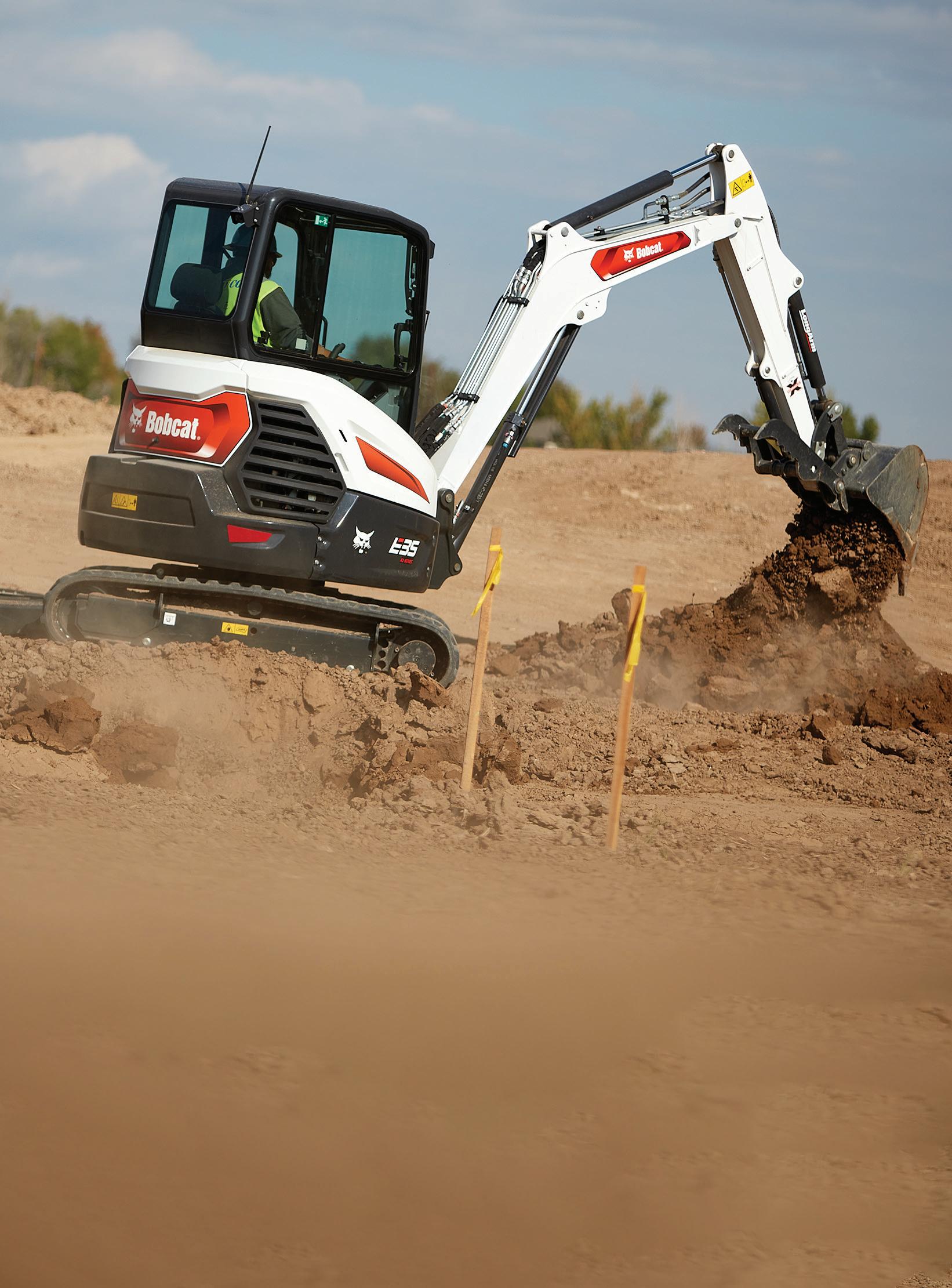





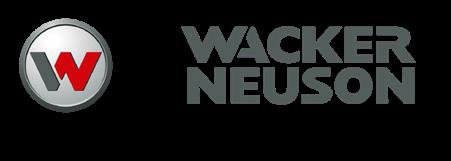





This year’s winners were selected through a nomination process that looked at their relevancy, innovation and utility for the rental market to help determine which products have made the biggest impact on the industry.
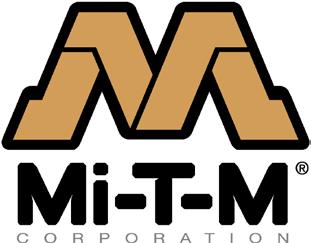



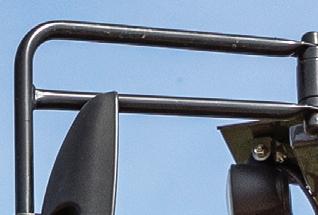
Sometimes you want the latest tech. Sometimes you just want the essentials done exceptionally well. That’s why we offer distinct levels of innovation, comfort, and performance so you can get done faster, more efficiently, and on budget.


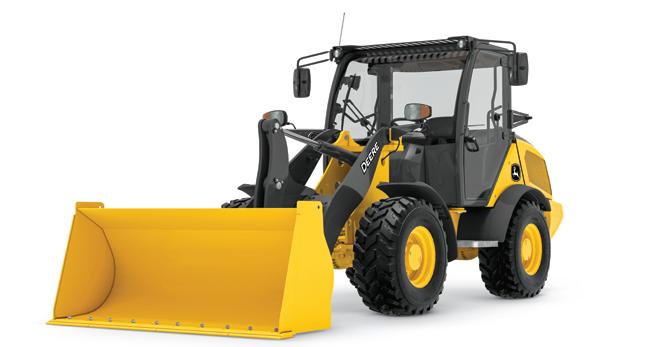


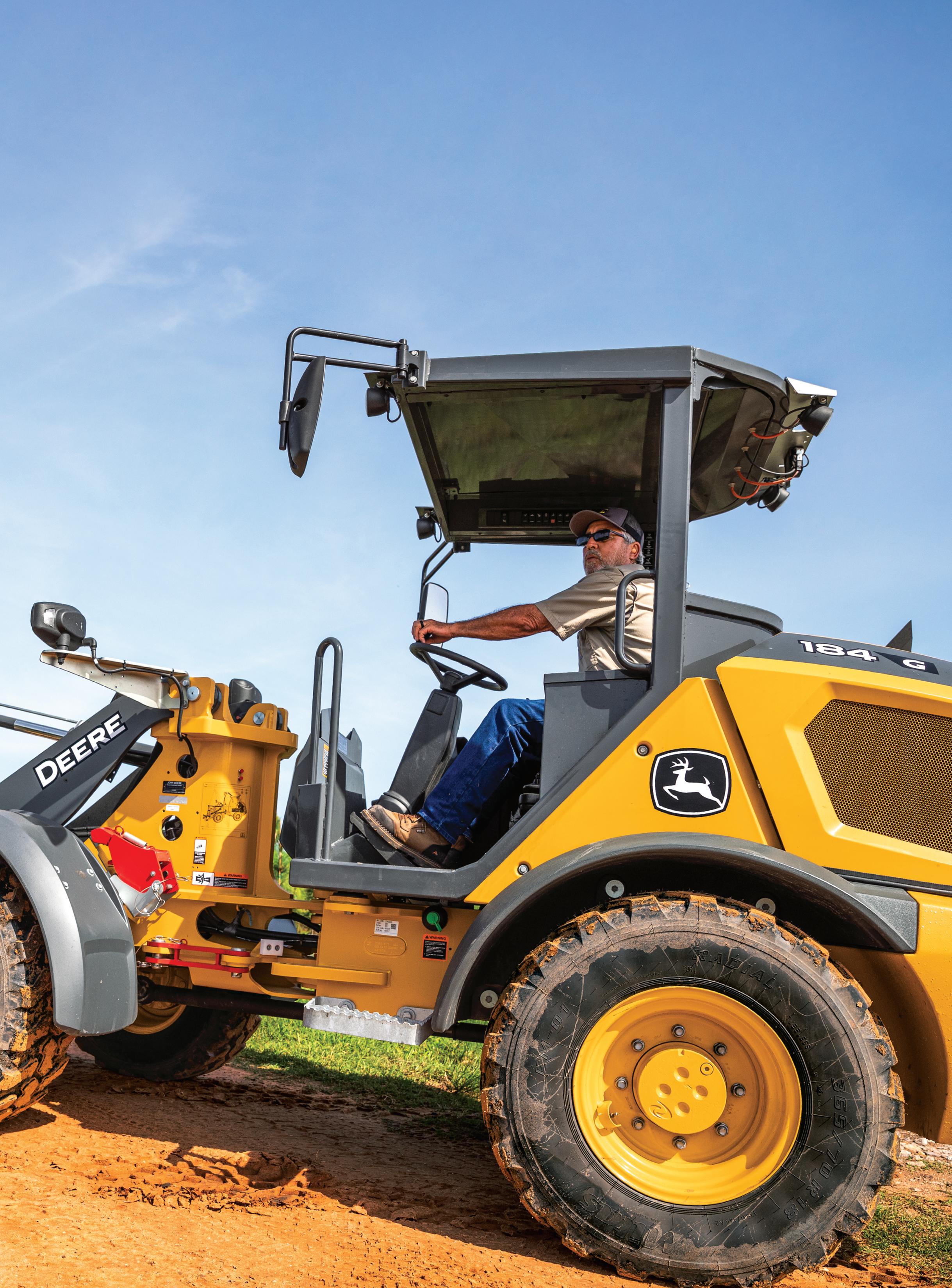


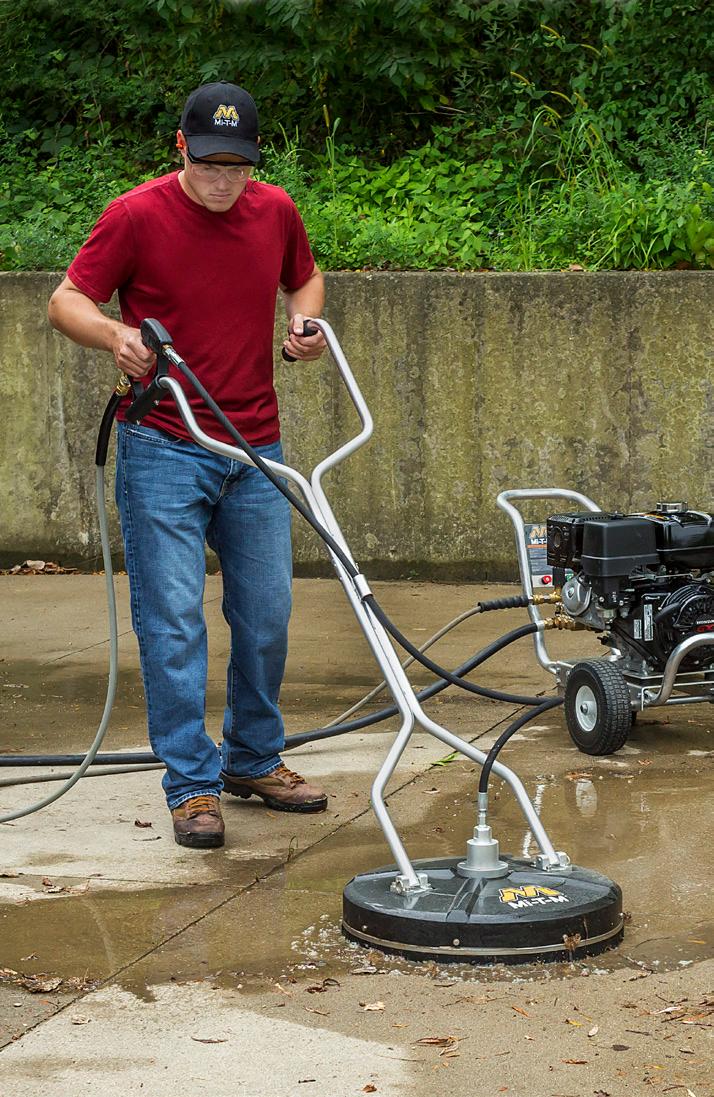

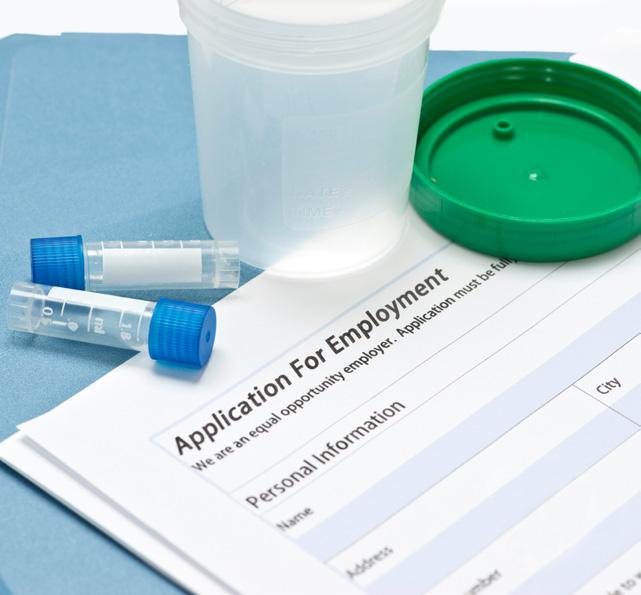
Welcome to the Editor’s Choice Award edition of Rental magazine!
The Rental staff and I have been busy parsing through nominations for our annual Editor’s Choice Awards, which zero in on the hottest, most cutting-edge new and enhanced products within the rental equipment space.
Especially with supply chain issues and labor shortages plaguing the industry, we wanted to know what products are making rental stores and their customers more efficient. Instead of compiling this list by online page views like in past years, winners were based on a submissions process. We changed the process in order to add credibility, assurance and uniformity for all nominees.

Be sure to check that story out on p. 10. And, if after reading it, you’re in the mood to learn about more products making a splash in the marketplace, be on the lookout for our December issue, which will feature our 2023 Equipment
& Tool Showcase.
As for the rest of this issue, we cover a wide variety of topics that we hope you’ll find useful in your business: On p. 26, pressure washer manufacturers provide tips on how to winterize your pressure washer; on p. 28, we delve into how rental companies handle testing employees for unsafe substances; and on p. 34, we look at tips to ensure operator safety when operating boom lifts.
And, as always, columnist Dick Detmer shares a few pieces of wisdom, this time on how rental companies can deal with inflation and price increases (p. 44), and in our Rental Snapshot, we talk with Brian Walter of WBC Lumber and Tool Rental about his company’s challenges, successes and overall philosophy (p. 38).
What tools or products has your company adopted to boost your bottom line? I’d love to hear them— and I’m sure your fellow readers would too. Email me or connect with me on LinkedIn using the QR code below.
Editor Sarah Webb swebb@acbusinessmedia.com
Managing Editor Gigi Wood gwood@acbusinessmedia.com
Technology Editor Charles Rathmann crathmann@acbusinessmedia.com
Audience Development Manager Angela Franks
PRODUCTION
Senior Production Manger Cindy Rusch crusch@acbusinessmedia.com
Art Director Willard Kill
Brand Director Sean Dunphy sdunphy@acbusinessmedia.com
Sales Representative Megan Perleberg mperleberg@acbusinessmedia.com
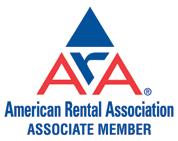
Sales Representative Nikki Lawson nlawson@acbusinessmedia.com
Sales Representative Kris Flitcroft kflitcroft@acbusinessmedia.com
Sales Representative Tadashi Soma tsoma@acbusinessmedia.com

Sales Representative Kristin Pride kpride@acbusinessmedia.com.
Chief Executive Officer Ron Spink
Chief Financial Officer JoAnn Breuchel
Chief Revenue Officer Amy Schwandt
Chief Digital Officer Kris Heineman
VP, Audience Development Ronda Hughes
VP, Operations & IT Nick Raether
Content Director Marina Mayer
GM, Online & Marketing Services Bethany Chambers
Content Director, Marketing Services Jess Lombardo

Director, Demand Generation & Education Jim Bagan Director, Enterprise Sales Kay Ross-Baker
PO Box 3605, | Northbrook, IL 60065-3605, Phone: (877) 201-3915 | Fax: (847) 291-4816 circ.rpn@omeda.com
Sr. Account Manager Bart Piccirillo | Data Axle (518) 339 4511 | bart.piccirillo@infogroup.com
Megan Perleberg, mperleberg@ACBusinessMedia.com
Rental (ISSN 2375-9925, Print | ISSN 2471-7657, online |
USPS 686-370) is published eight times per year: January/February, March, April, May, June/July, August/September, October/ November and December by AC Business Media, 201 N. Main Street, 5th Fl., Fort Atkinson, WI 53538. Periodicals postage paid at Fort Atkinson, WI and additional entry offices. POSTMASTER: Please send change of address to Rental, PO Box 3605, Northbrook, IL 60065-3605. Printed in the USA.
SUBSCRIPTION POLICY: Individual subscriptions are available without charge in the U.S. to rental centers, equipment distributors, and other businesses with rental departments. To subscribe please visit www.ForConstructionPros.com. Publisher reserves the right to reject nonqualified subscribers.
One year subscriptions for nonqualified individuals: U.S. $35.00; Canada and Mexico $60.00; and $85.00 all other countries (payable in U.S. funds, drawn on U.S. bank). Single issues available (prepaid only) $10.00 each.
Published and copyrighted 2022 by AC Business Media. All rights reserved. No part of this publication may be reproduced or transmitted in any form or by any means, electronic or mechanical, including photocopy, recording or any information storage or retrieval system, without written permission from the publisher.




















The soul of General drain cleaners is our time tested tough Flexicore® cable. We wrap heavy gauge wire around 49-strand aircraft-type wire rope to get the right balance of strength and flexibility, so you get fewer returns with kinked or broken cables.
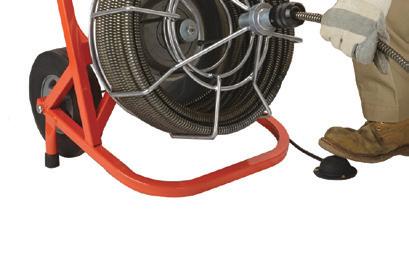
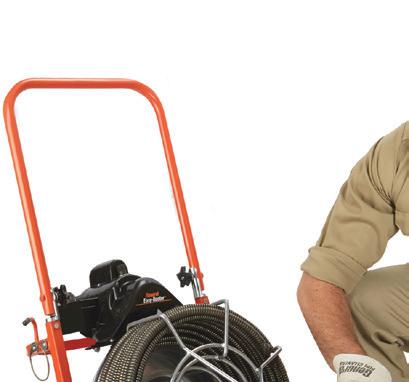


Flexicore construction is low maintenance, kink-resistant, and durable. It comes back intact—and that strength goes straight to your bottom line.
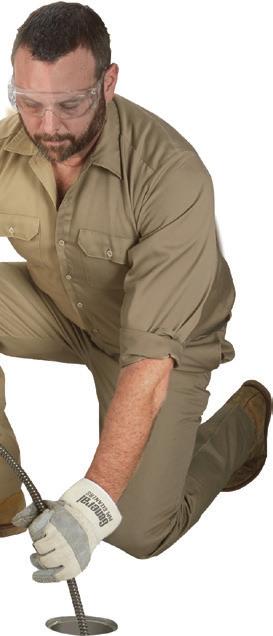
To learn more, call the Drain Brains at 800-245-6200, or visit www.drainbrain.com/rental

magazine
to highlight your rental company, digging into your successes, challenges you’ve faced along the way and how you’ve overcome them. What are you most proud of? What would you do differently? What advice would you give to other rental company owners or those just starting out in the industry? We want to hear it all and feature you in an upcoming Rental
article. If you would like to share your story with the readers of Rental and your professional peers, please reach out to Editor Sarah Webb at swebb@ acbusinessmedia.com.

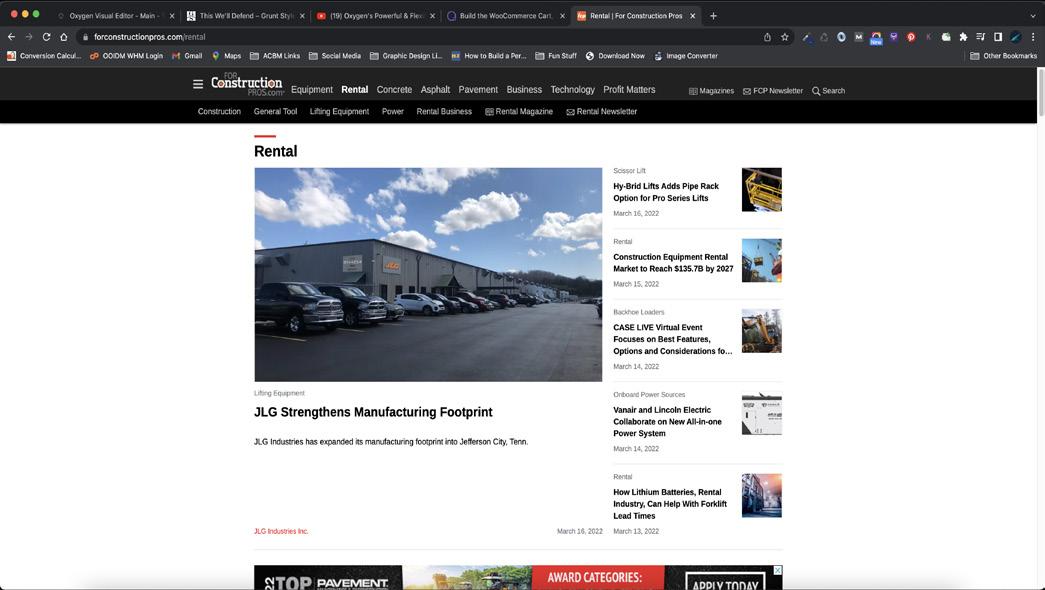

you like to stay up to date on the latest happenings across
rental industry but can’t wait for the next print issue of Rental
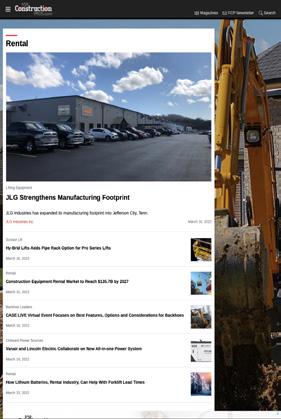
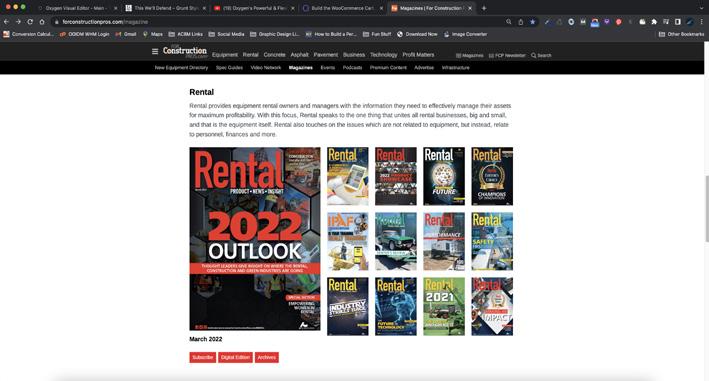
to come out? Be sure to subscribe to our e-newsletters—
Rental Watch, Rental Market Watch and Power
name a few—using the QR code, so you can

to
latest
around the rental industry,
sure to fol
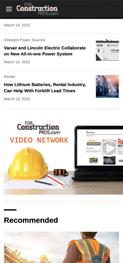
When it absolutely has to be done right, turn to the equipment that’s built for it. The Kubota construction lineup. Reliable, comfortable track loaders. Productivity-boosting skid steers. Powerful wheel loaders. Heavy-duty utility vehicles.* All built around dependable Kubota engines and ready to take on big jobs. Kubota is the world’s #1 selling compact excavator for 18 years.
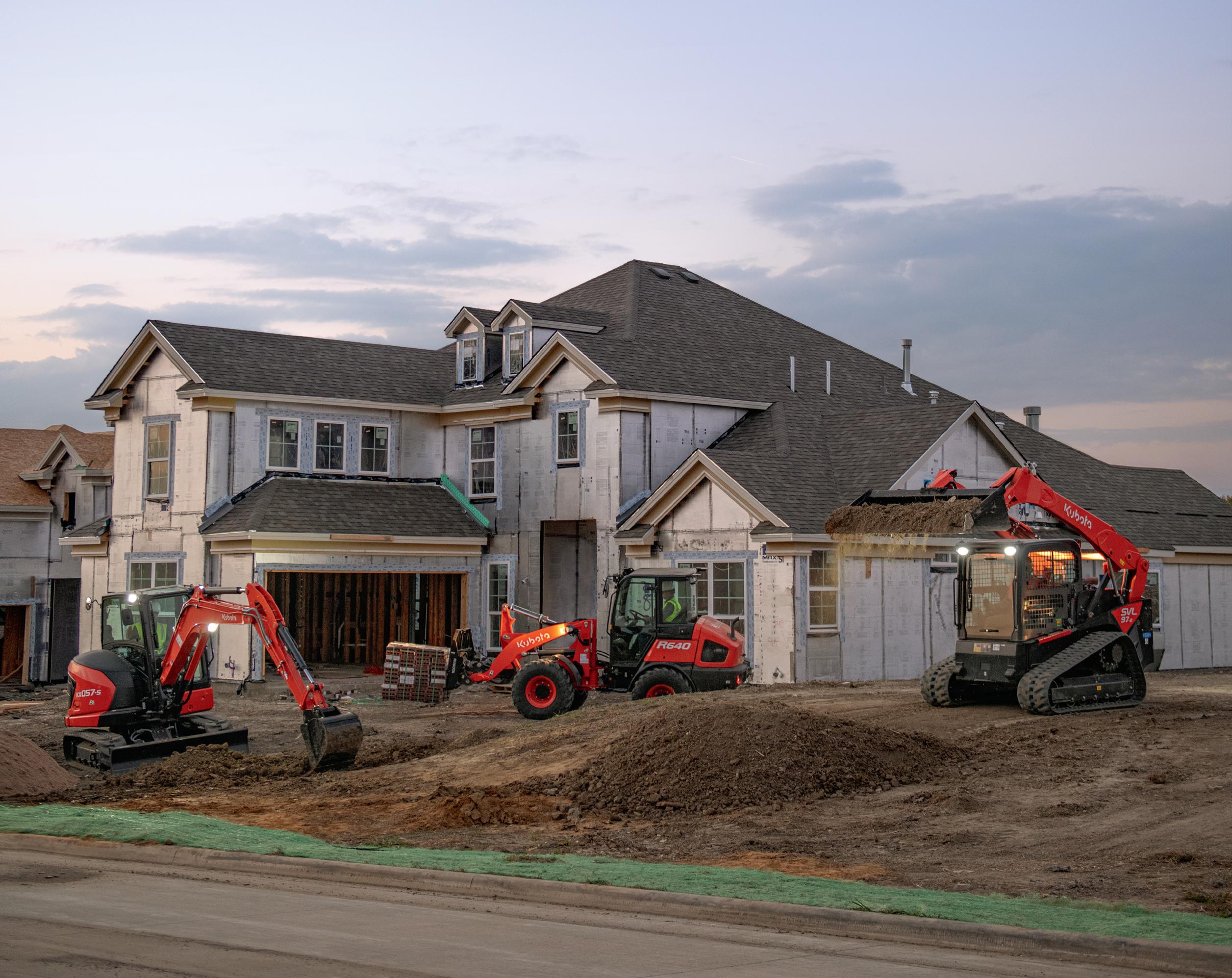
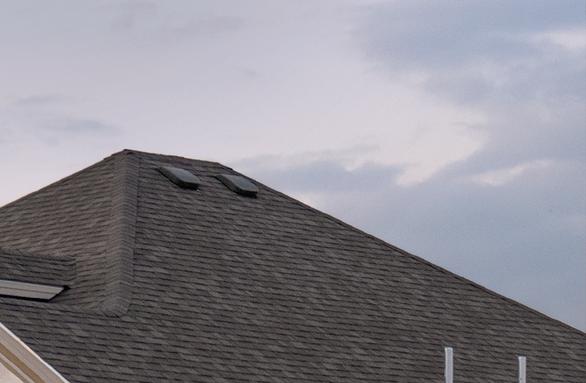





With great power comes great big subdivisions.
United Rentals released its annual Environmental Stewardship, Social Impact and Governance and Ethics report, which highlighted successes from 2021 and new
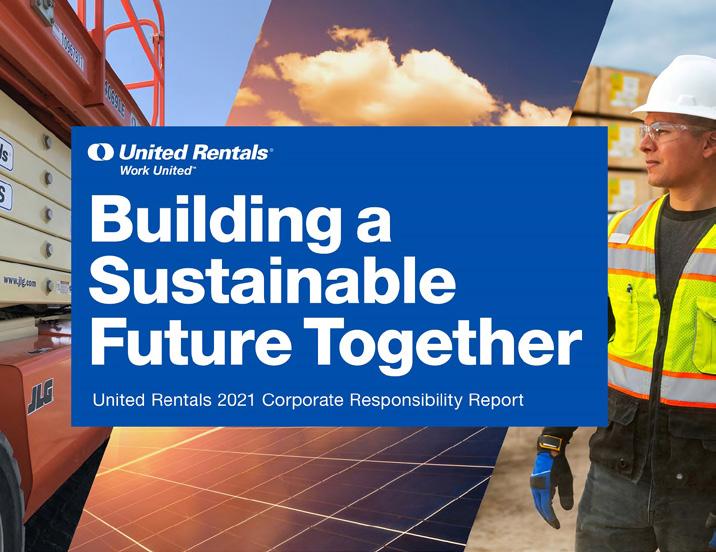
goals for 2022.
Early in 2022, United Rentals set six new corporate goals, which address reducing greenhouse gas emissions,
Current economic indicators, while mixed and uncertain, point toward significant growth for equipment rental revenue in the U.S., according to the latest quarterly update released by the American Rental Association (ARA).
The update included the following projections:
• Equipment rental revenue will grow 11.2 percent to reach nearly $55.9 billion in 2022. ARA expects growth of 6.2 percent in 2023, 2.5 percent in 2024, 3.3 percent in 2025 and 3.7 percent in 2026 to total more than $65.1 billion.
• Construction equipment rental revenue will increase by 12.5 percent in 2022 to surpass $41.6 billion, with growth slowing to 7 percent in 2023, 2 percent in 2024, 3 percent in

Sunbelt Rentals and United Rentals recently incorporated F-150 Lightning Trucks into their fleets.
Sunbelt Rentals released its plans in April to add 700 electric trucks as a way for the company to reduce its greenhouse gas emissions (GHG) by 35 percent by 2030.
United Rentals will incorporate 500 F-150 Lightning trucks and 30 E-Transit vans into its North American fleets, with 120 trucks and all 30 vans to be

diverting waste from landfills, retrofitting interior lighting, hiring diverse workers, reducing the number of workplace injuries, making positive contributions to communities and conducting ethical conduct training.
2021 highlights include:
• A 17 percent year-over-year reduction in United Rentals’ U.S. OSHA recordable incident rate
• 31.3 percent of sales and management roles held by diverse employees
• About $1 billion spent with diverse suppliers
• 9 percent reduction in the intensity of greenhouse gas emissions from direct operations https://rnt.news/e098jb
2025 and 3 percent in 2026.
• General tool growth is expected to be 7.4 percent in 2022 and then remain fairly steady with 5 percent growth in 2023, 3 percent in 2024, 5 percent in 2025 and 5 percent in 2026.
https://rnt.news/aocdco
delivered in 2022.
Both rental companies purchased the electric vehicles to become more sustainable organizations.
“Sunbelt Rentals has a carbon intensity reduction target that comes with a commitment to lead the movement toward electrifying our fleets and to strive for environmental stewardship,” said Eric Jahnsen, director of transportation fleet, Sunbelt Rentals. “This investment will also benefit our total cost of ownership for our fleets since electric vehicles are less expensive to maintain in the long term.”
United Rentals noted that it has set a GHG goal to reduce its scope 1, 2 and 3 emissions from outside hauling by 35 percent by 2030 from a 2018 baseline.
“Our largest scope 1 emission source is from our sales, service and delivery fleet. Having a fleet turnover plan for these vehicles will assist us in achieving our goal,” said Grant Zoldowski, director of environmental management at United Rentals.
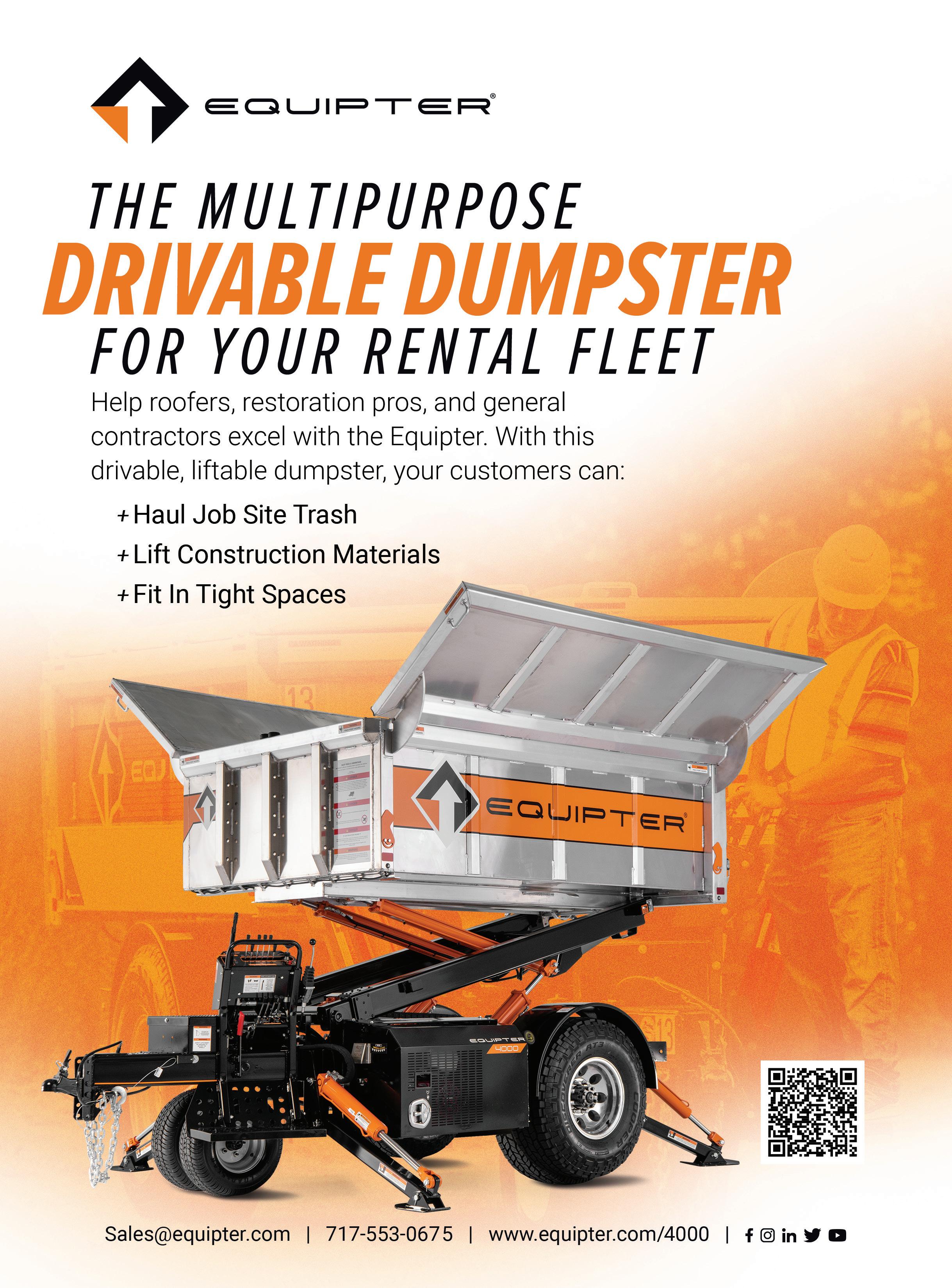 BY SARAH WEBB
BY SARAH WEBB

For this year’s Editor’s Choice Awards, the Rental magazine staff decided to round up the products that make rental companies and their customers more efficient while boosting their bottom lines.
Instead of compiling this list by online page views like in years’ past, the winners were chosen based on a selection process by the Rental editorial staff. We changed the process in order to add credibility, assurance and uniformity for all nominees.
You’ll notice that this year’s winners cover many facets of the rental industry.
With supply chain issues, labor woes and rising fuel costs, things in the rental industry are changing and changing fast. With that in mind, we wanted to call out those products that are making rental companies’ lives a little easier.
Without further ado, check out this year’s award winners.

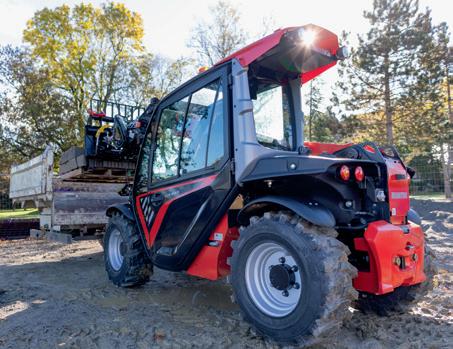
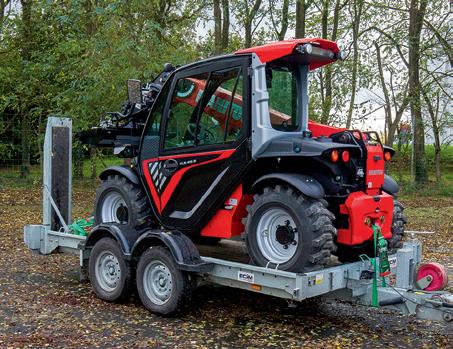
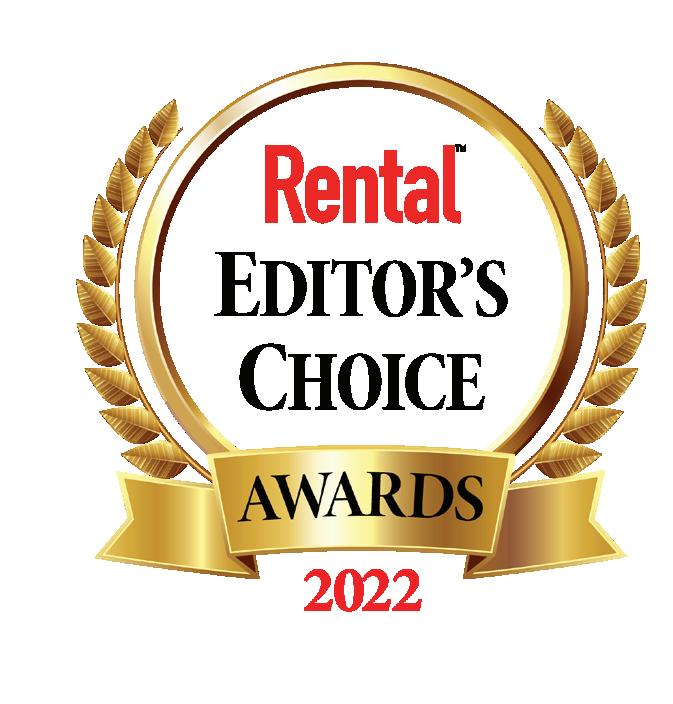
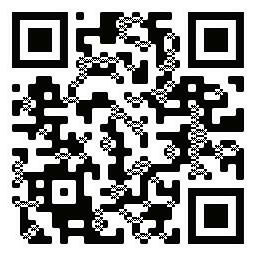

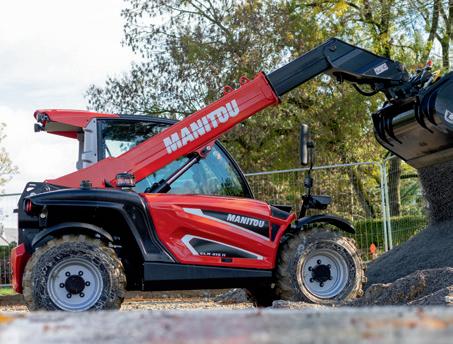
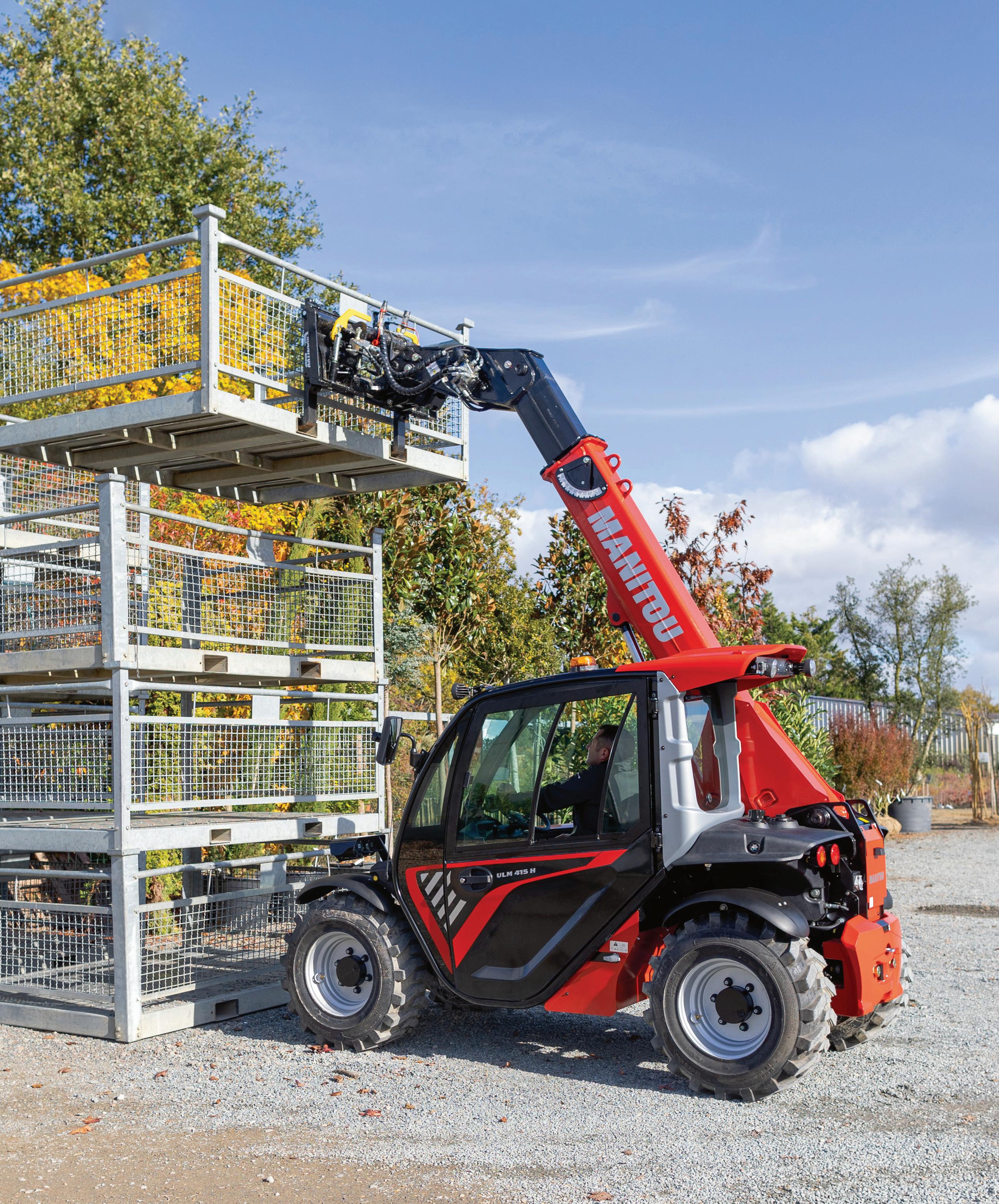
The repowered RT-40 has a 38.2hp Yanmar three-cylinder, Tier 4 diesel engine. It also:
• Offers a 48.3-inch width, 8.4foot lift height, 931-pound rated operating capacity and 7.1-mph top speed
• An idler wheels full-metal-face seal package, increasing the rated operating capacity to 1,008 pounds
• Standard variable auxiliary hydraulic flow with a 13.3gpm pump capacity and 3,000 psi
• Tall, pressurized cab that offers easier entry/exit, a singlesided lap bar, partially adjustable armrests, a 4.3-inch color display, standard hydraulic joystick controls
• A 10.8-inch ground clearance
Case Construction Equipment’s 114-hp TV620B has a 6,200pound rated operating capacity, a bucket breakout force of 12,084 pounds and 74 inches of track on the ground. It also includes:
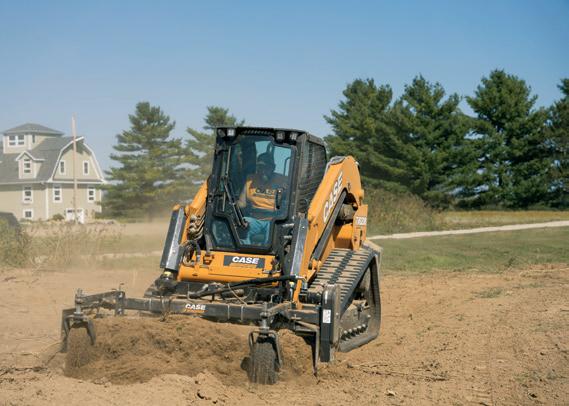
• A heavy-duty undercarriage and 17.7-inch rubber tracks that allow for 6.1 psi ground pressure

• Standard adjustable electrohydraulic controls, high-flow hydraulics, autoride control, one-way self-leveling, hydraulic coupler, autoreversing fan and LED light
• Cab that features a redesigned operator interface, 360-degree visibility and 8-inch LCD multifunction display
Rearview camera visible in a split-screen
with machine data
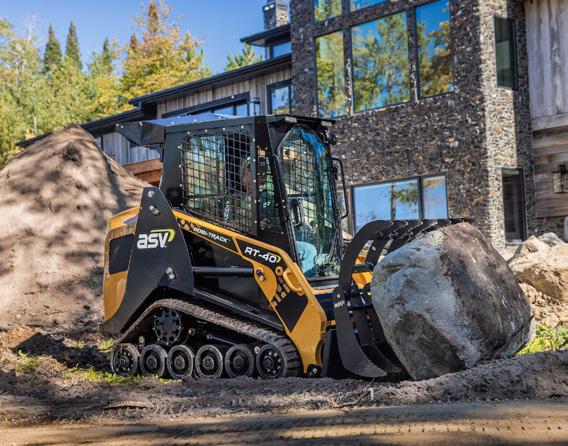
The Bobcat T7X is powered by lithium-ion batteries. The T7X
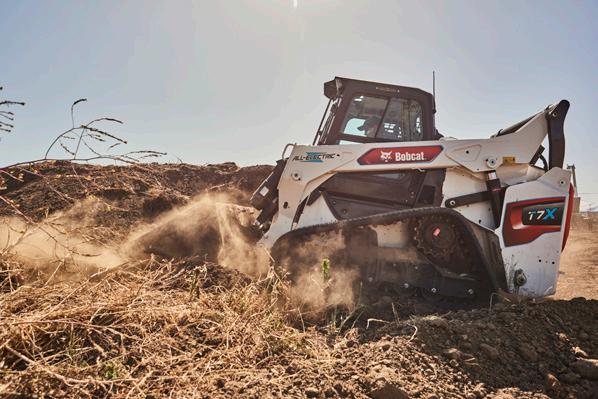
features a fully electric drive system in place of a traditional hydraulic work group. It’s built with about half the parts and components required for a diesel-engine loader—driving down maintenance and overall ownership costs. Producing zero emissions, the all-electric platform offers instantaneous power with no need for a hydraulic system to build up power. The T7X offers an exceptional operator experience with drastically reduced noise and vibration and significantly less fluids, ideal for urban areas where noise restrictions can limit work hours.
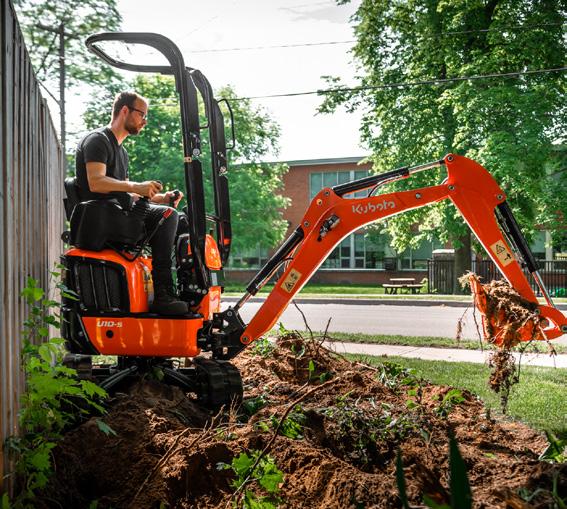
The new U10-5 minimal tail swing excavator takes an in-demand spot in the U Series minimal tail swing lineup. The U10-5 is Kubota’s
to the rental or professional customer who requires a compact excavator in the 0–1-ton range. With a more compact frame and minimal tail swing, the U10-5 provides superior flexibility when working in tight spaces with very minimal overhang at 0.6 inch over the tracks, ensuring excellent balance, stability and fast operation for both residential and commercial work.
John Deere Antivibration Undercarriage System for the 333G Compact Track Loader
The antivibration undercarriage system on zig-zag bar tracks on John Deere’s 333G compact track loader models
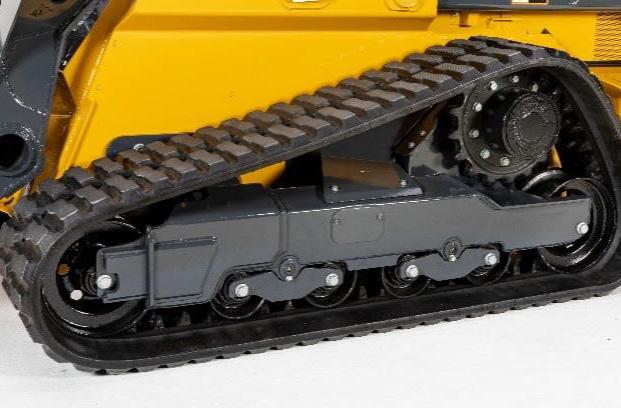
• An isolated undercarriage, bogie rollers, updated grease points, hydrostatic hose protection shield and rubber isolators
A smoother ride for the operators
• A bogie roller system that allows for oscillating movement
• An oscillating bogie arm that includes only four new, easyto-access grease points
• An angled steel shield, which protects hydrostatic hoses from exposure to debris
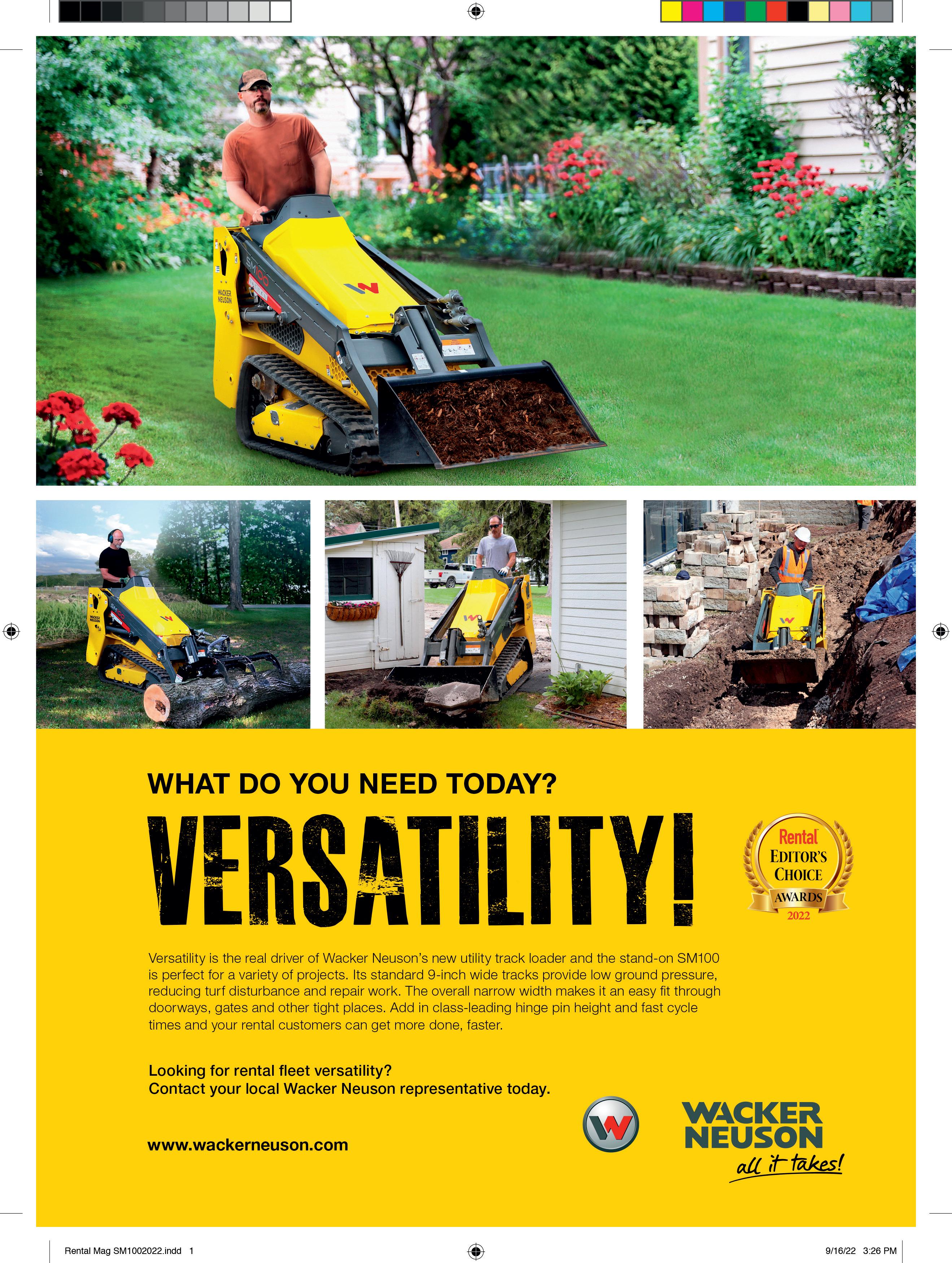
The 4,261-pound 17V-5 zerotailswing compact excavator is powered by a 14-hp Yanmar engine and features a maximum dig depth of 7 feet, 2 inches and a maximum digging height of 11 feet, 10 inches. It also offers a gradeability of 30 degrees and 7-gpm auxiliary hydraulic flow. It includes an easy-entry ROPS canopy design. Its hydraulic expandable tracks and folding push blade extend and retract from 39 to 51 inches wide. The standard pattern change valve is conveniently located under the operator’s floor mat. Wide-swinging access doors allow for easier maintenance work. Other notable features include:
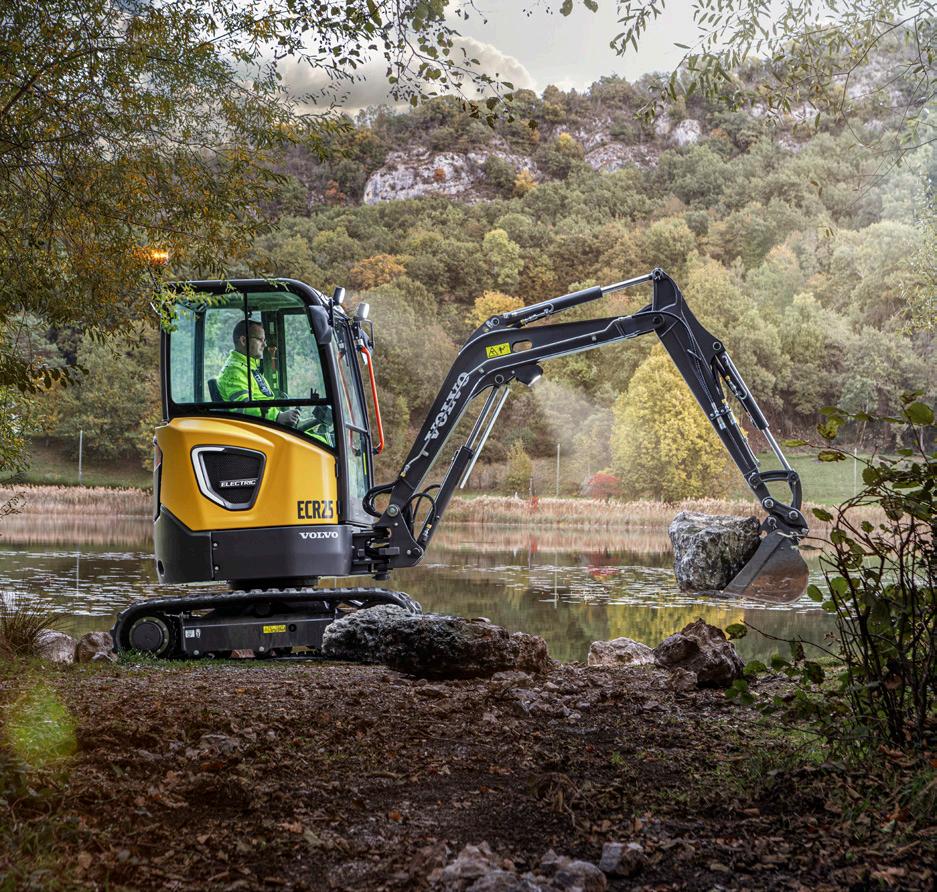
• Easily visible monitor
• Centralized switches
• Spare power port
• All-lever lock
• Neutral engine start

• Autoparking brake in swing and traction motors
• Digging force increased by 10 percent
• Quickly responsive four-pump system
• Low fuel consumption
The TB20e is Takeuchi’s first designed-and-built, batterypowered compact excavator. When fully charged, the TB20e offers a continuous working time ranging from four to eight hours, depending on the application and environment. It boasts zero exhaust emissions and reduced noise and vibration levels. The excavator has an operating weight of 4,255 pounds, a bucket capacity of 1.34 cubic feet and a primary auxiliary flow of 9.0 gpm. The maximum reach is 13 feet, 4 inches and maximum digging depth is 7 feet, 10.1 inches. A spacious and comfortable operator’s station features a high-definition, multiinformational color display.
Volvo Construction Equipment ECR25
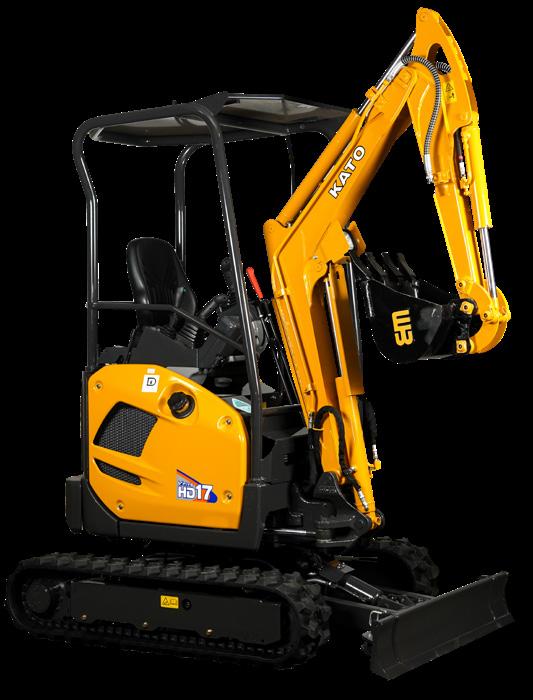
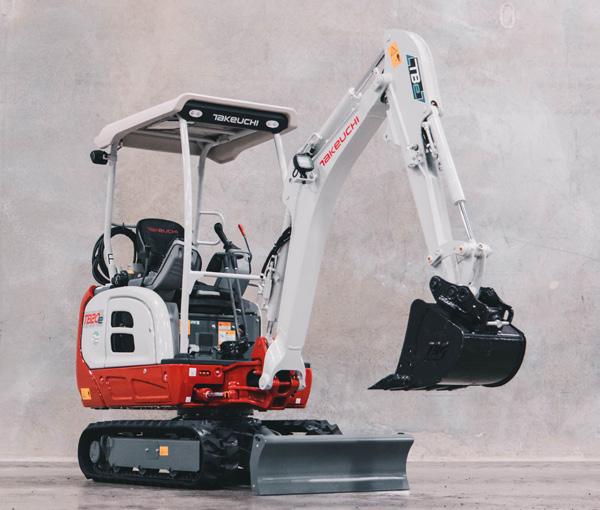
Volvo Construction Equipment’s ECR25 Electric compact excavator offers zero exhaust emissions, as well as significantly lower noise levels, reduced energy costs and fewer maintenance requirements. Its batteries store enough energy to power the machine for up to eight hours in common applications. Including indoor work and nighttime projects, renters can work on jobsites where other machines aren’t welcome. The Volvo ECR25 Electric is ready to bring rental centers into a more sustainable future.
The Lynx Screed System helps complete flatwork in widths from 3 to 22 feet. It offers reliability through its quick and secure field assembly design.
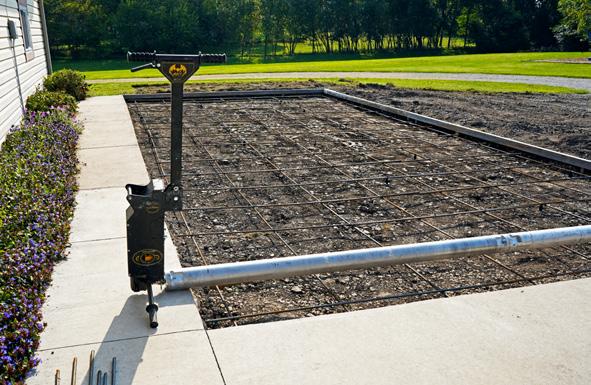
Lynx pipes
be combined in any sequence and easily aligned and connected without special tools or the need to retighten.
Introducing the MBE, Generac Mobile’s Battery Energy Storage Solution. Featuring built-in telematics and a clever battery that knows when and where to pull energy from to provide a continuous power supply. Built for versatility and durability with two ways to cleaner energy: as a stand-alone solution or hybrid power system when paired with a diesel generator. In a hybrid system, the MBE is designed to work with a generator that results in significant cost savings, reduction of fuel consumption and noise, all while drastically cutting CO2 emissions without sacrificing performance. This state-of-the-art technology provides power system flexibility to construction, events, utilities, urban and remote job site applications.
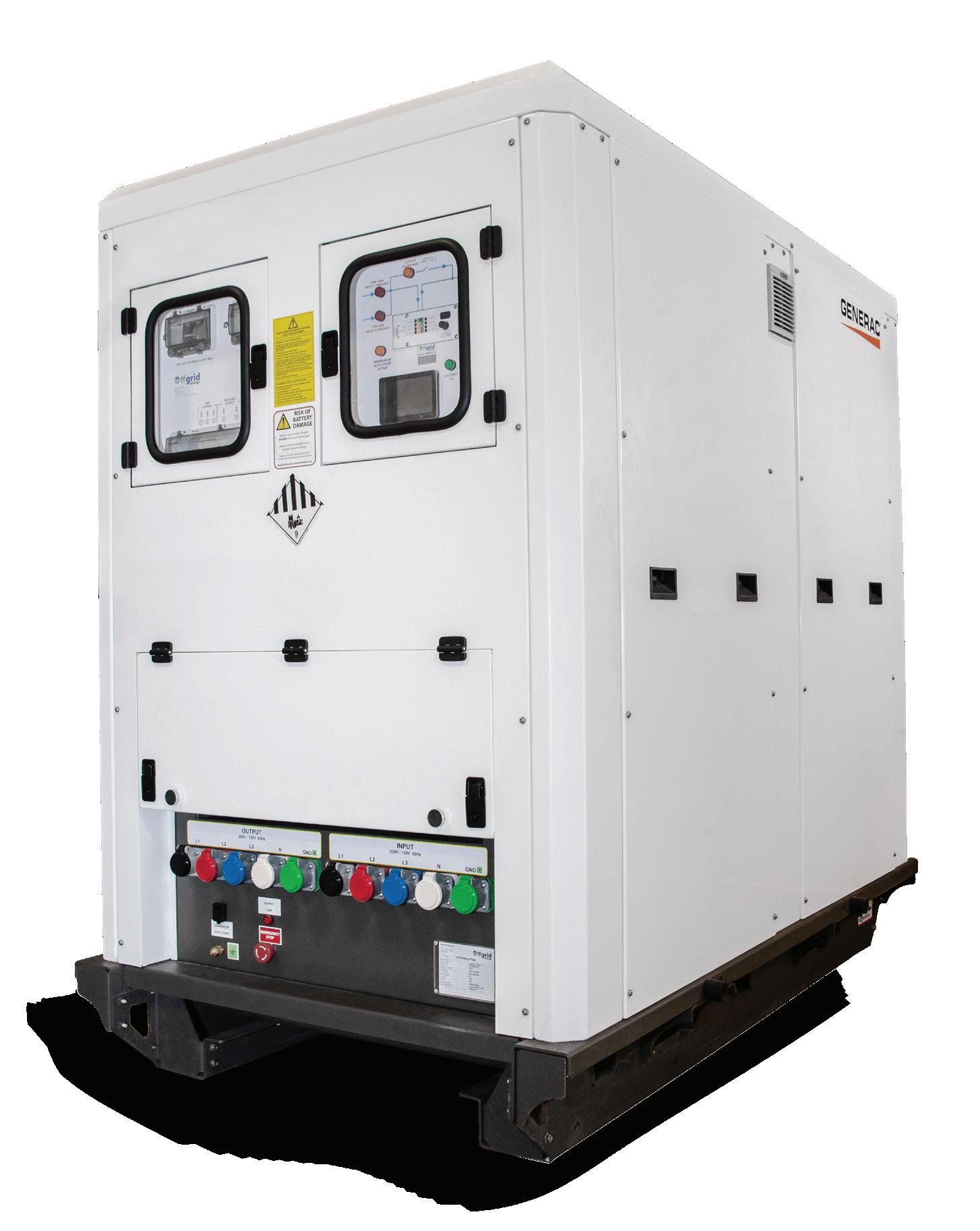


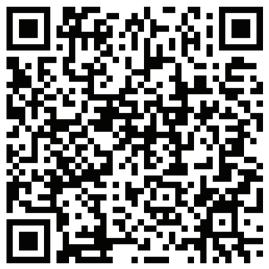
The excavator drum mulcher is offered in 30 inches and 50 inches to accommodate excavator carriers from 4.5 to 10 metric tons. It comes with a Rexroth 63-cc adjustable displacement hydraulic motor that provides heavy-duty torque to power through material up to 8 inches in diameter. Severe-duty bearings, rated to 77,000 pounds, and a labyrinth design with triple steel ring seals ensure durability, while an abrasion-resistant AR 400 liner minimizes wear from debris.
The SM100 is comfortable for operators with ergonomic joysticks and reference handles, plush padding and wide spring-suspension platform for added stability. The strong lift capacity and high hinge pin allow for easy loading into high-sided trucks and dumpsters. Additional features include:
• A cup holder, 12-volt charging port and storage
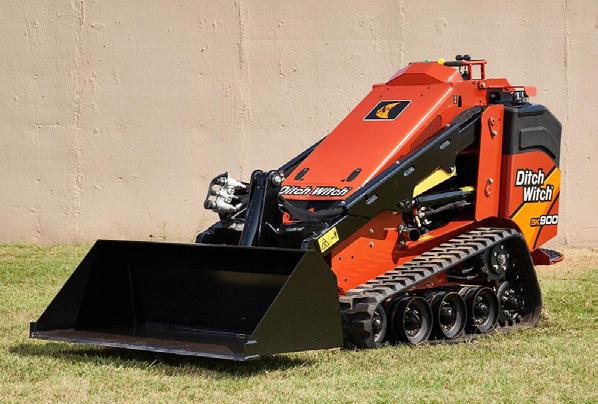
The Ditch Witch SK900 mini stand-on skid-steer was designed to provide long-lasting performance, durability on tough jobsites and operator comfort. The SK900 was built with an ergonomic operator station that provides a large, comfortable platform and excellent visibility. Attachments available with the SK900 include trenchers, buckets, augers and forks.
https://rnt.news/21jr2y
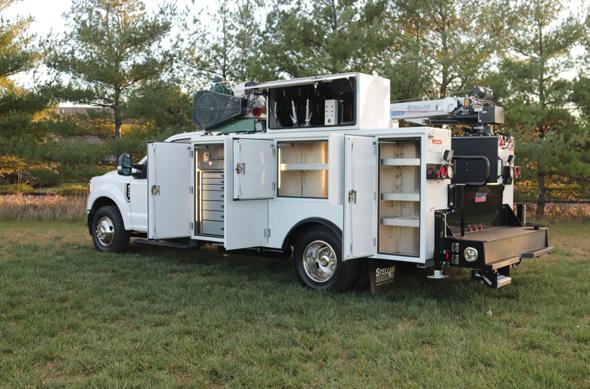
Stellar’s TMAX 16K is designed for use with 4,000-pound cranes and smaller. Features include:
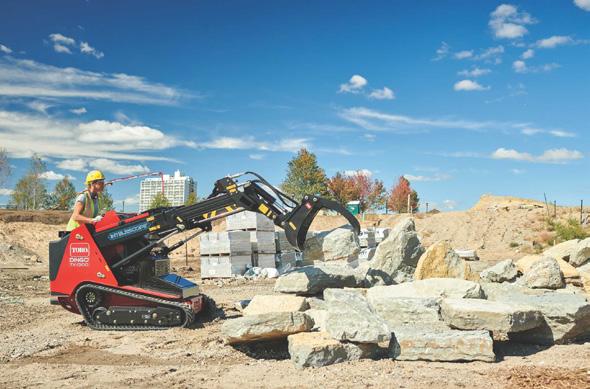
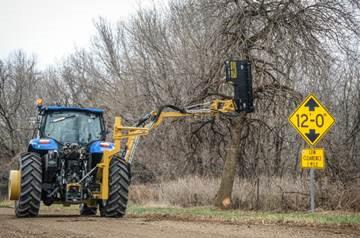
• The aluminum extrusion top and crane mounting kit to eliminate welding or tube reinforcement in the compartment below the crane
• Aluminum extrusion tops with built in, drill-free accessory mounting rails provide weather-resistant compartments
• Aluminum design means lighter weight for more payload and corrosion resistance
• Stainless-steel billet-style hinges and double spring-over-center door closures
• A machine width of 35.5 inches that fits through tight spaces, allowing the machine to access urban areas and smaller yards, while the light weight (3,300 pounds) makes it easy to transport
• The durable undercarriage reduces maintenance costs and total cost of ownership

• Sealed idlers and triple flanged rollers that provide added surface area and engagement to reduce wear and detracking
• Optimal track tension becomes quick and painless with an integrated grease cylinder track tensioner
The Toro Dingo TX 1300 brings a new combination of power, reach and convenient control to the Toro Dingo
lineup. When users have a lot of material to move, the Dingo TX 1300 provides the power to do it efficiently. It’s ideal for landscape, hardscape and tree care jobs, though its versatility allows it to be used for much more. The Dingo TX 1300 features an exclusive Intelliscope loader arm with SmartLoad technology, giving the operator an additional 26 inches of reach. A hinge pin height of 109 inches allows for loads to be lifted up and over the side of a dumpster or truck. The goal of these features is to help users reach maximum productivity.
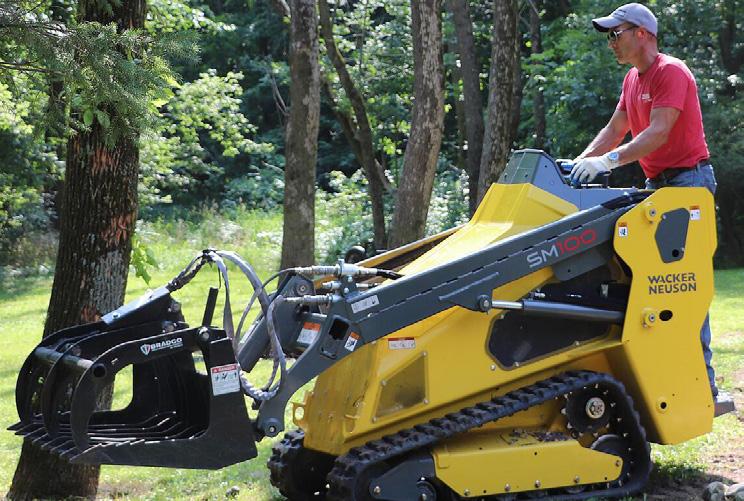

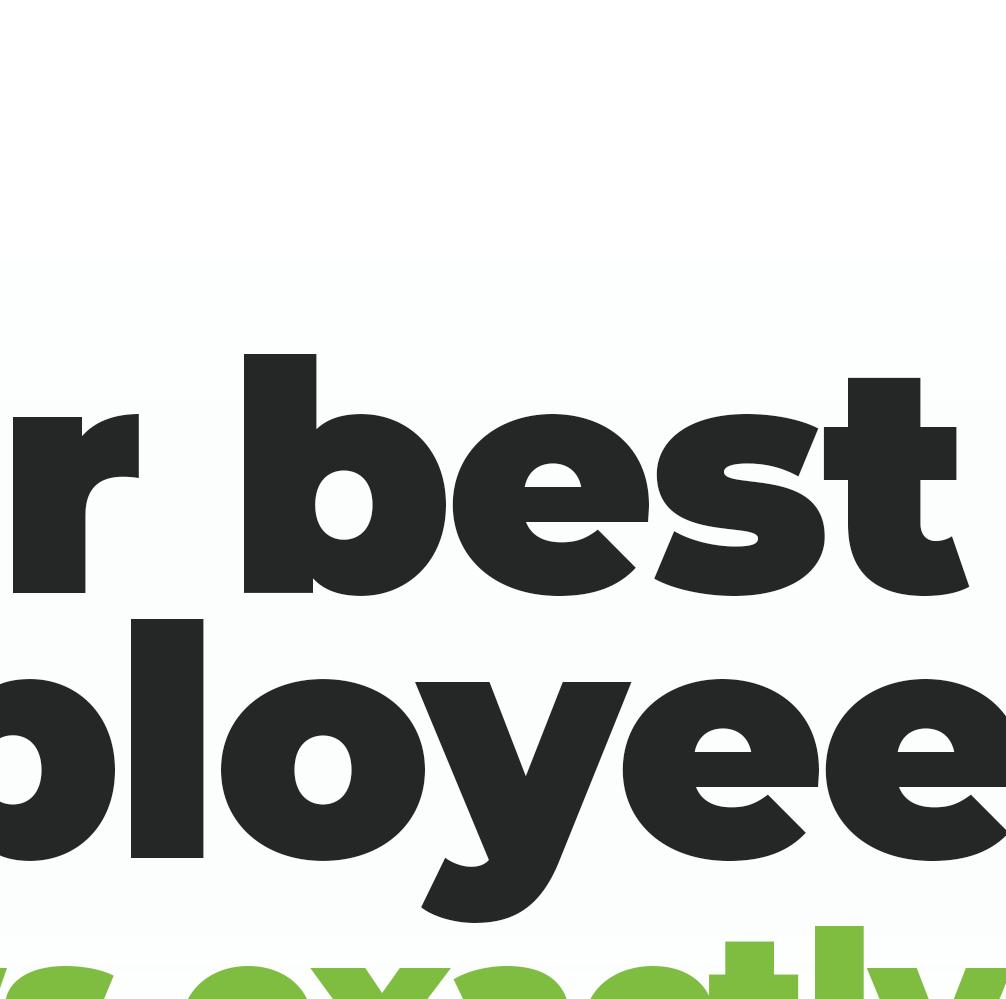

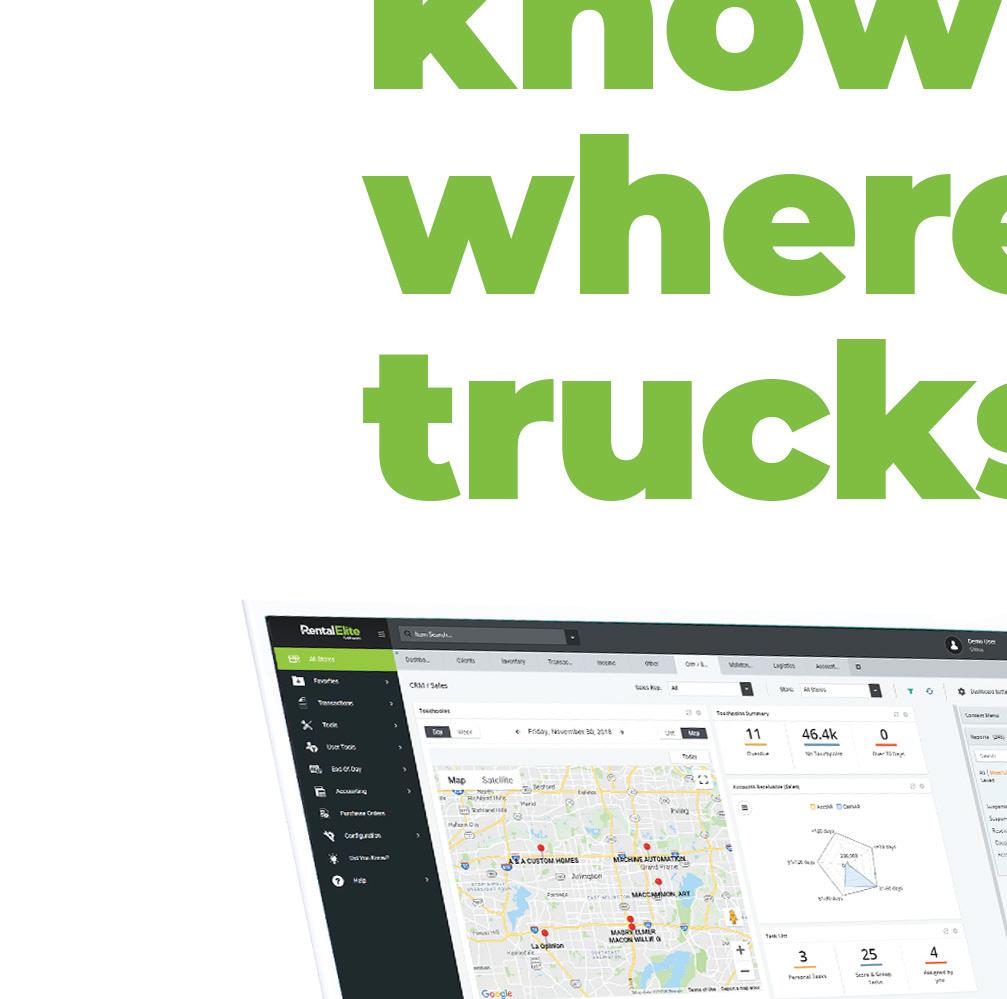

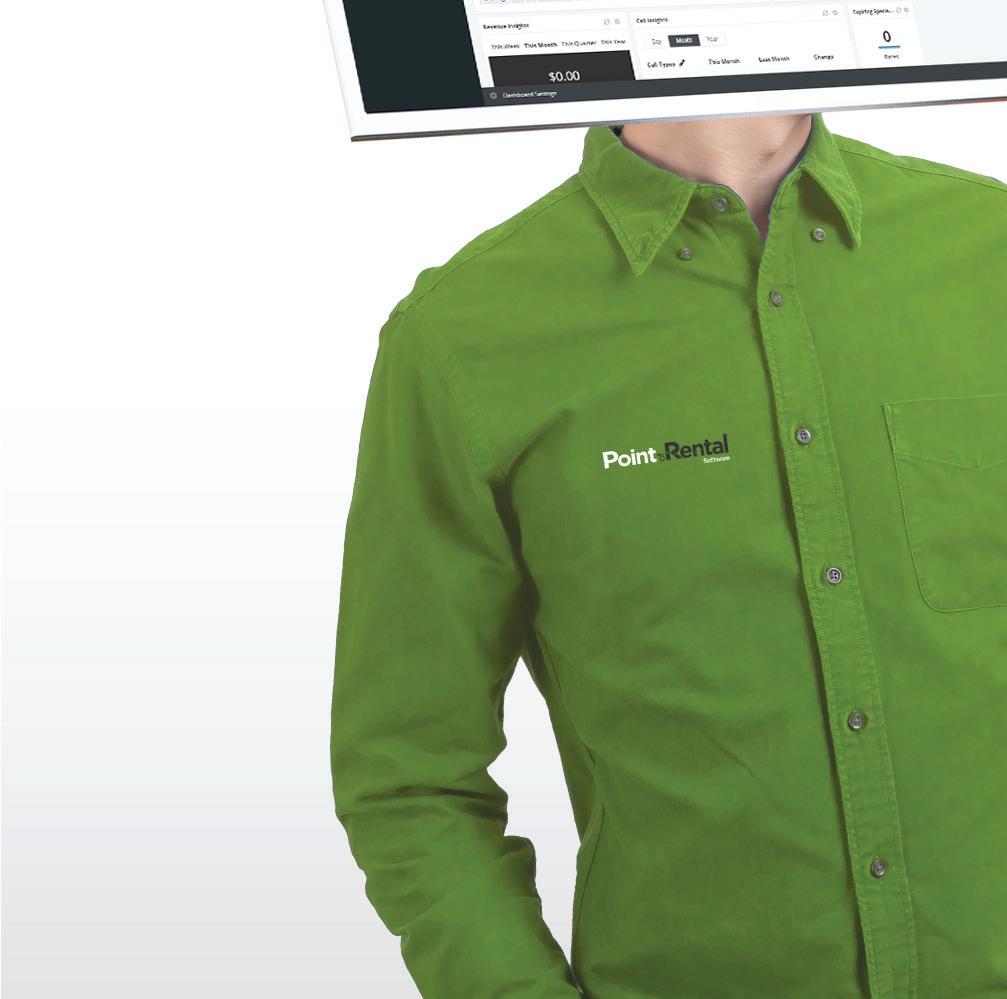
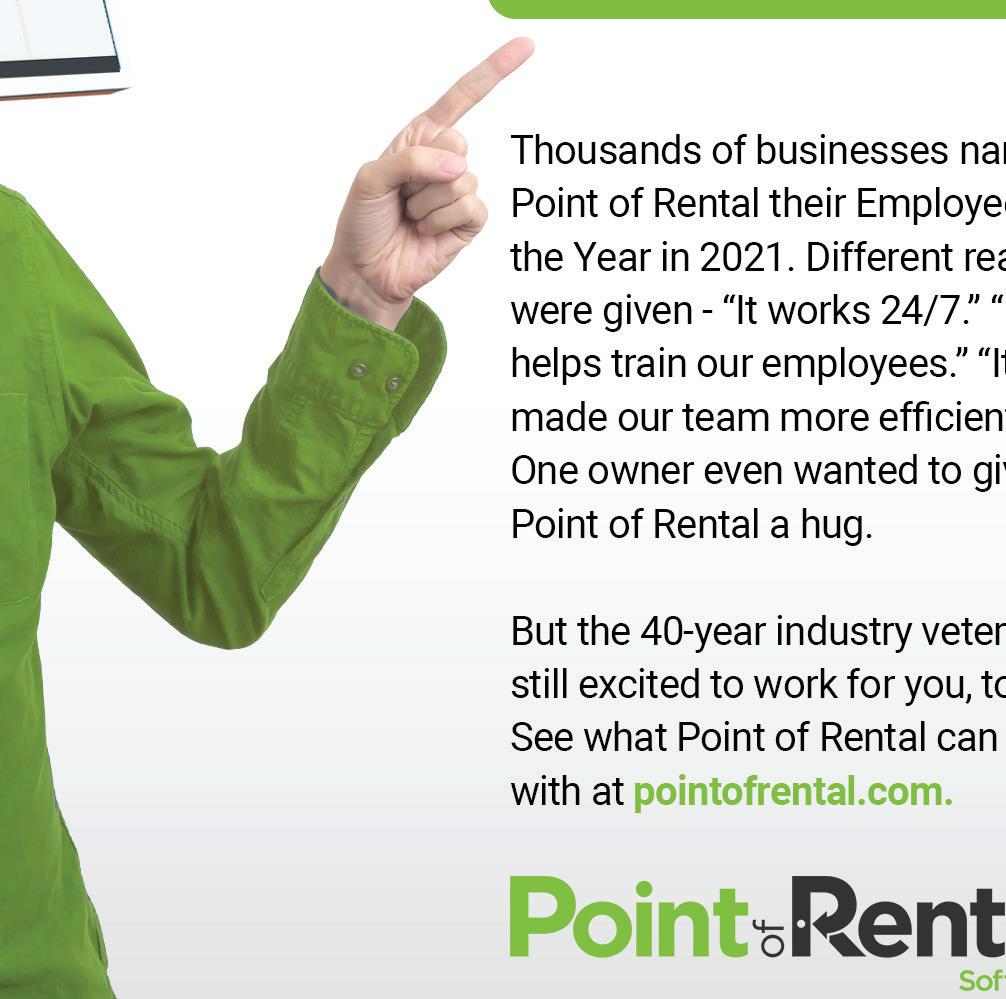






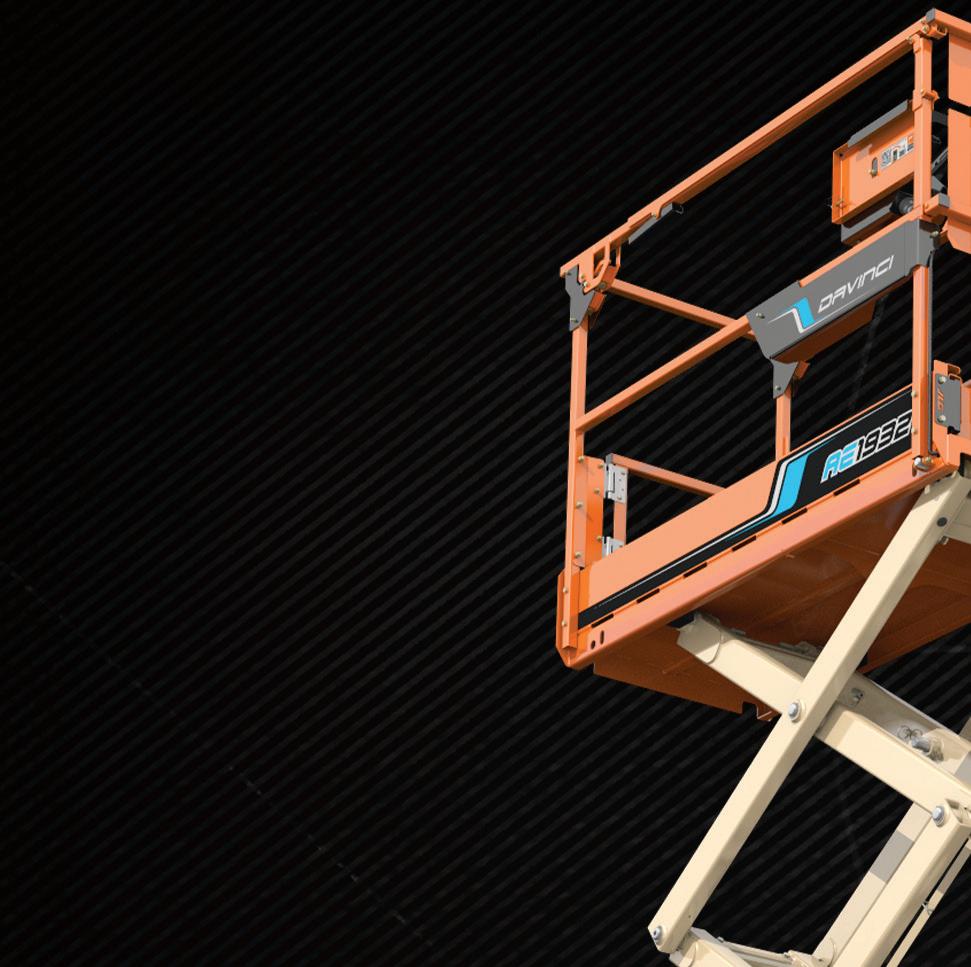
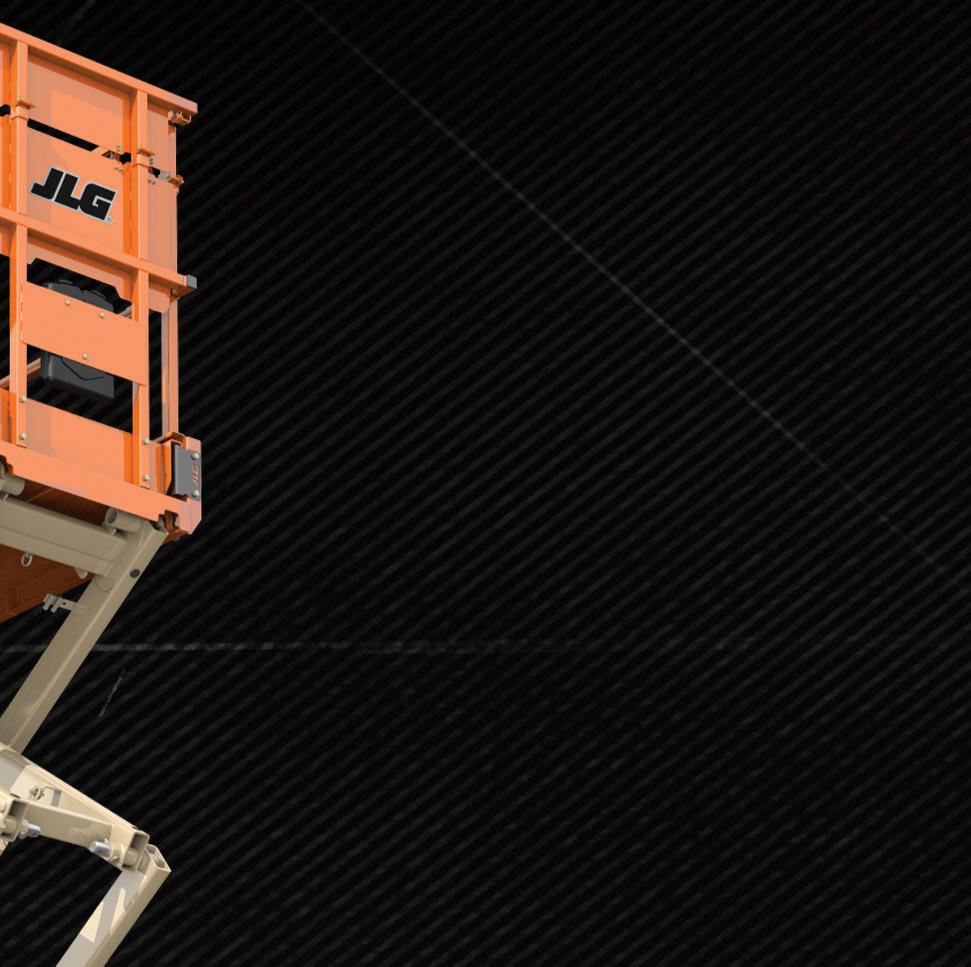
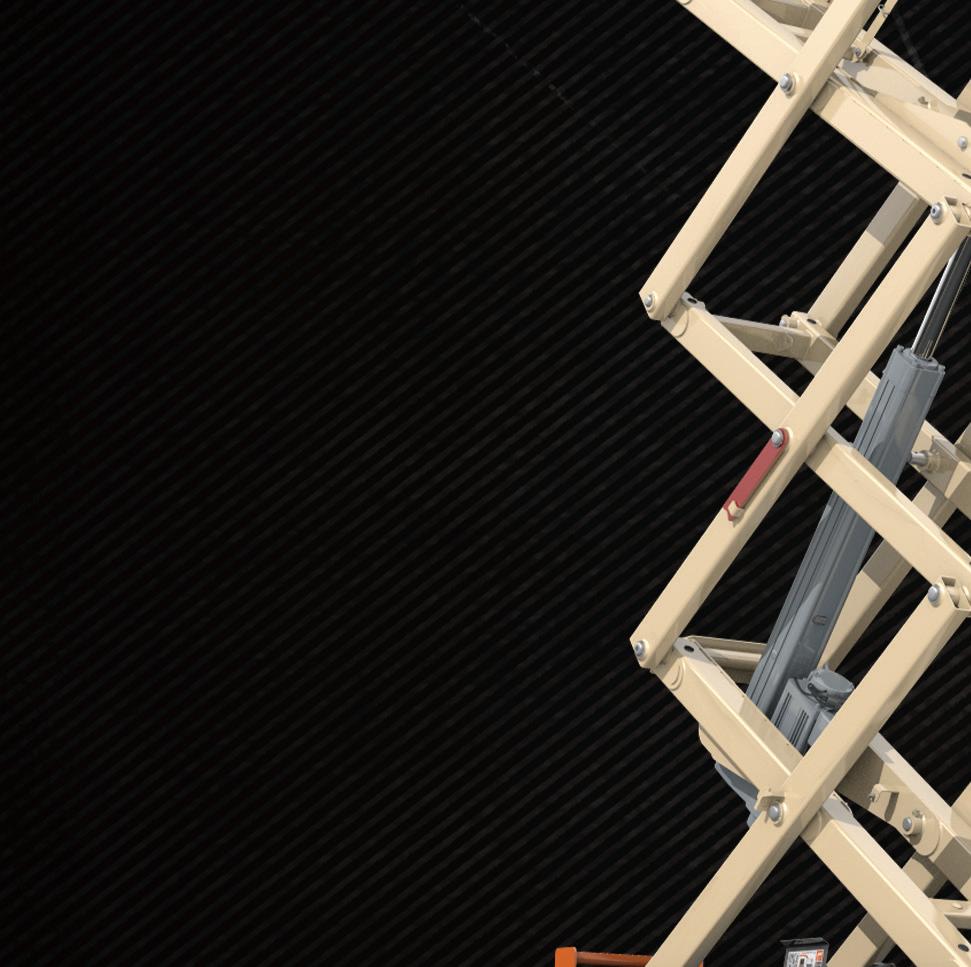
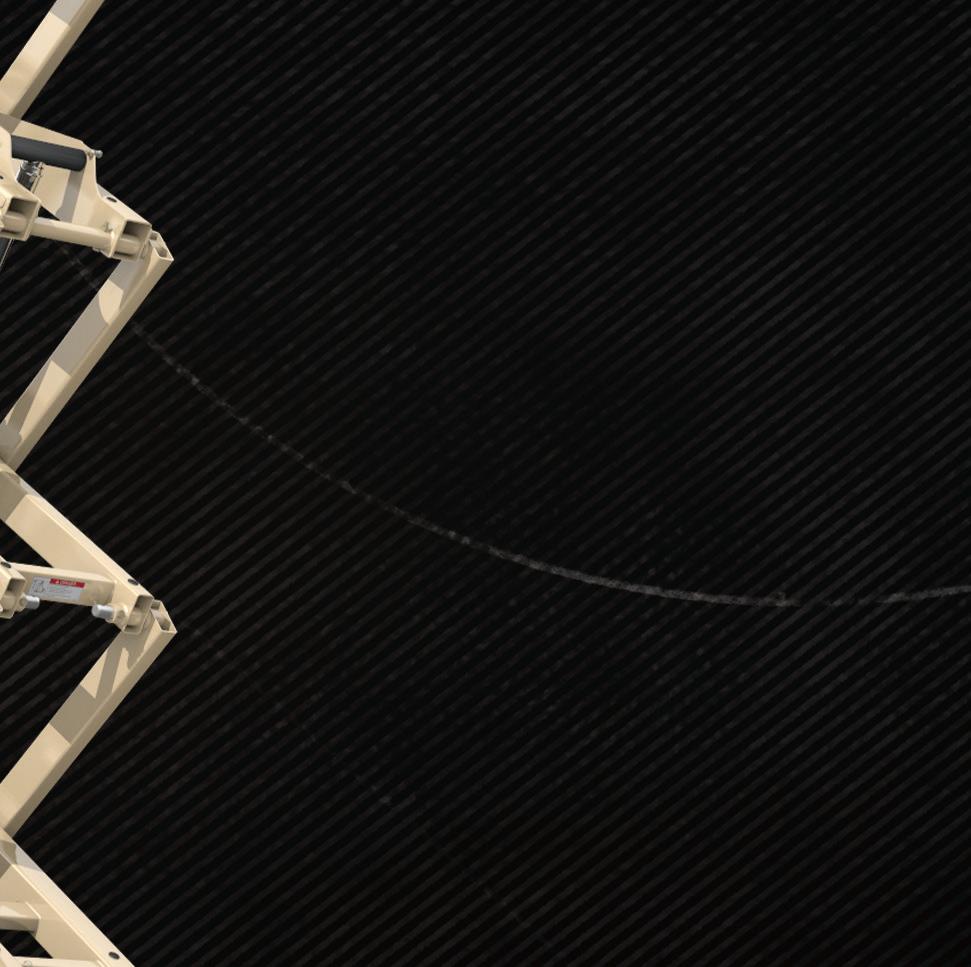







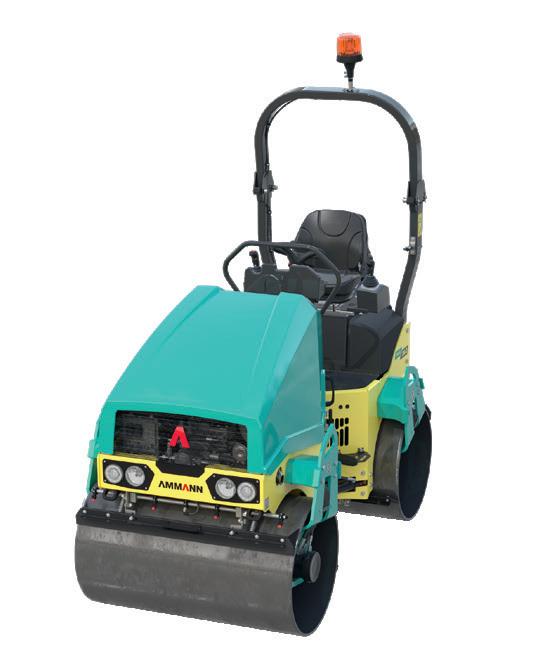
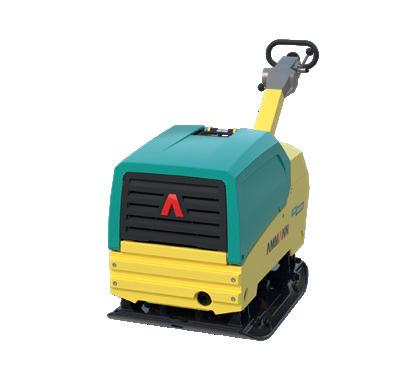
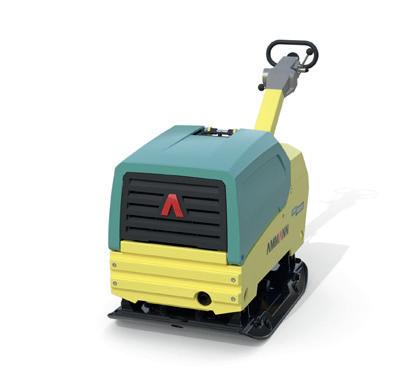
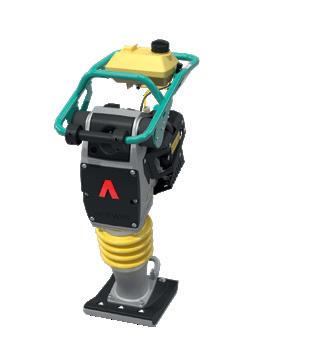
Skyjack’s XStep enables operators to gain additional work height in tight spaces while maximizing productivity. The XStep is mounted on the midrail of the scissor lift and creates an additional 19 inches of working height. The top railing design and height provide operators with the same degree of security as a conventional platform. Other notable features
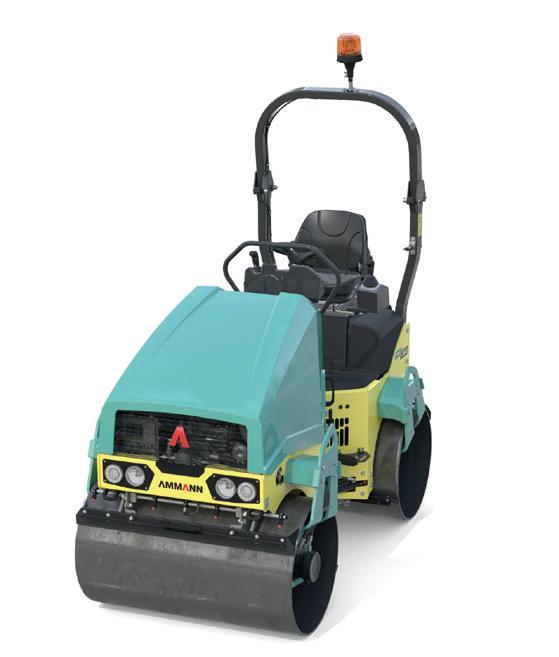
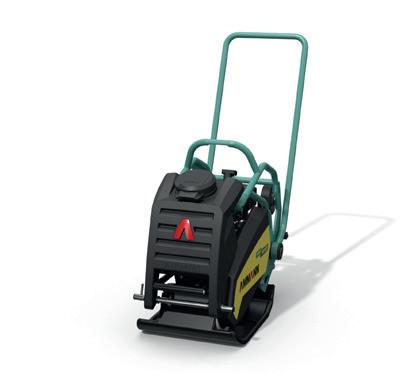
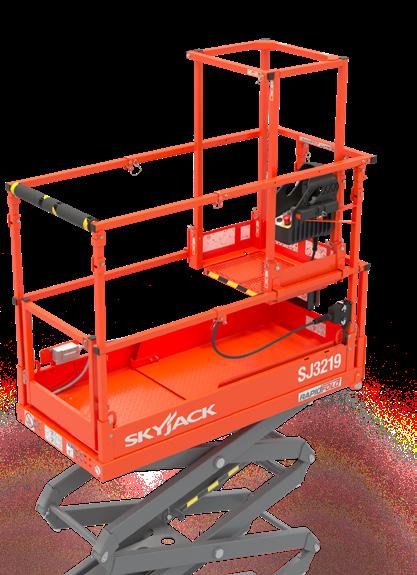
ability to be moved from machine to machine
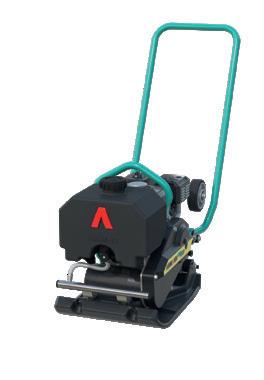
One-person installation process
swing down base
tools
machine

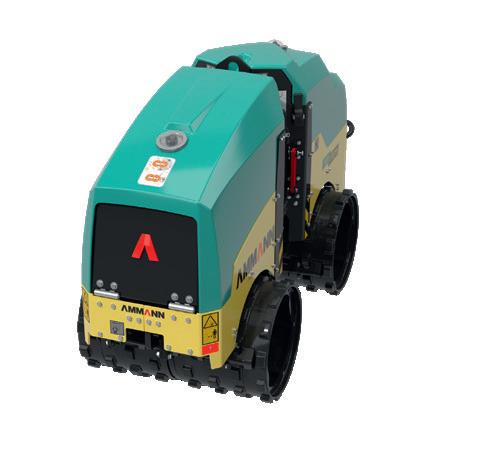
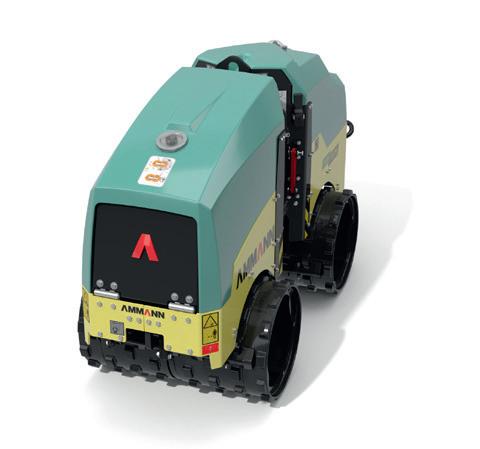
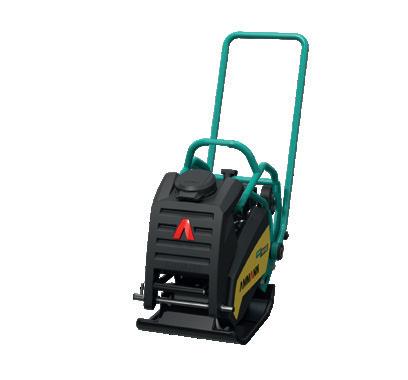
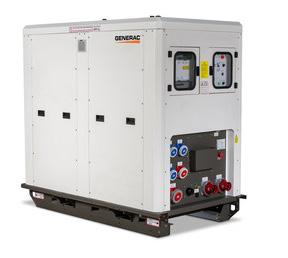
Generac’s Mobile Battery Energy Storage Solution (BESS) provides three-phase and single-phase power output for mobile power applications with the advantage of zero sound and zero emissions. When connected to a compatible generator, it creates a hybrid power system. The BESS automatically turns the generator on to recharge the batteries and provide peak power output and turn off when not needed. The MBE30 assists the diesel generator during short bursts of high-power demand, allowing for the possibility of a smaller, more costeffective generator to power the same load. When the load is reduced, the generator is turned off, and energy stored in the battery is then used. The result is less fuel consumed, fewer service trips and lower maintenance expenses. https://rnt.news/ p26wew

Lind Equipment
XP970LED and XP980LED Lind Equipment’s Beacon explosion-
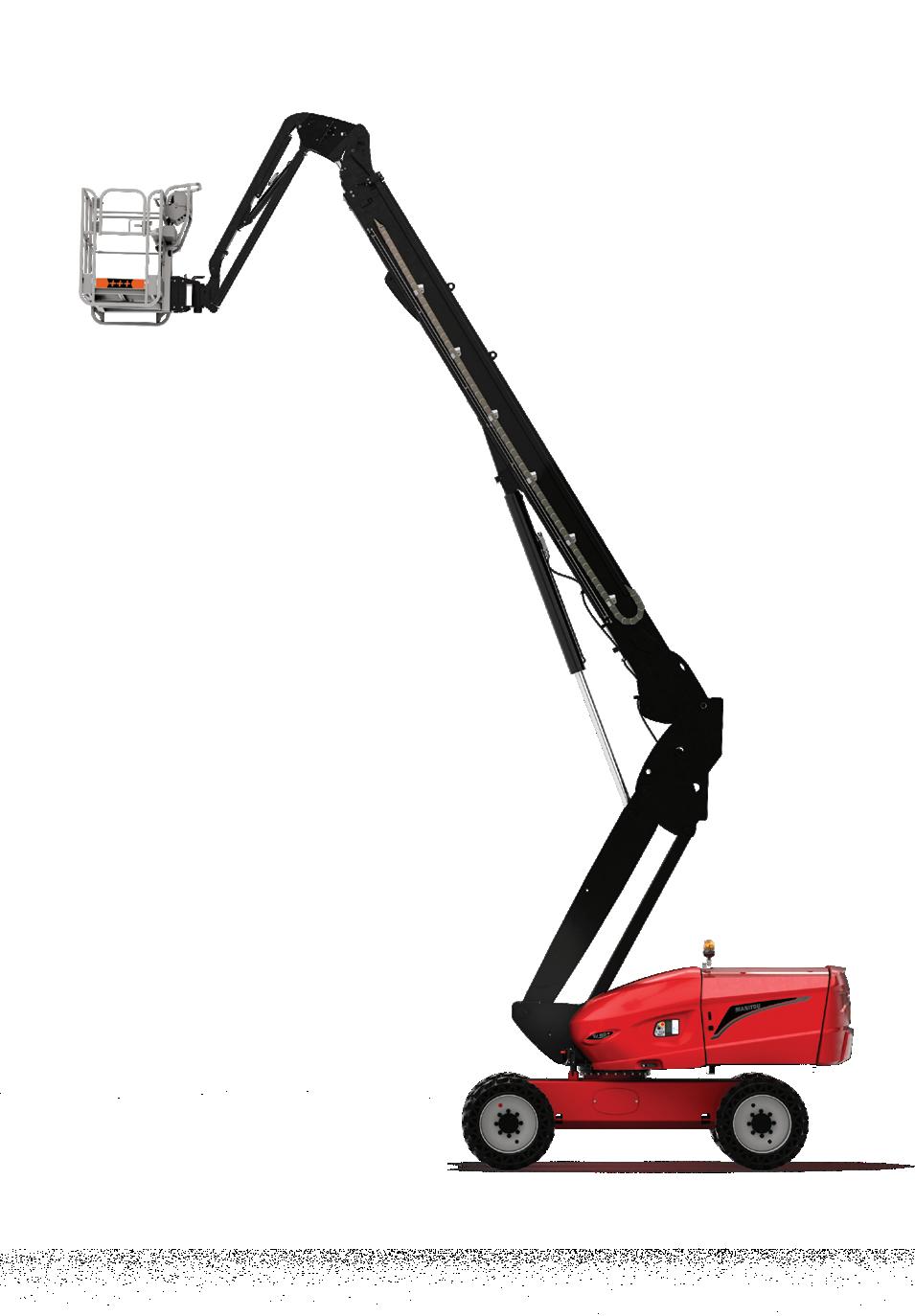
proof LED lights (XP970LED and XP980LED) have been designed to replace existing portable hazardous location lights.

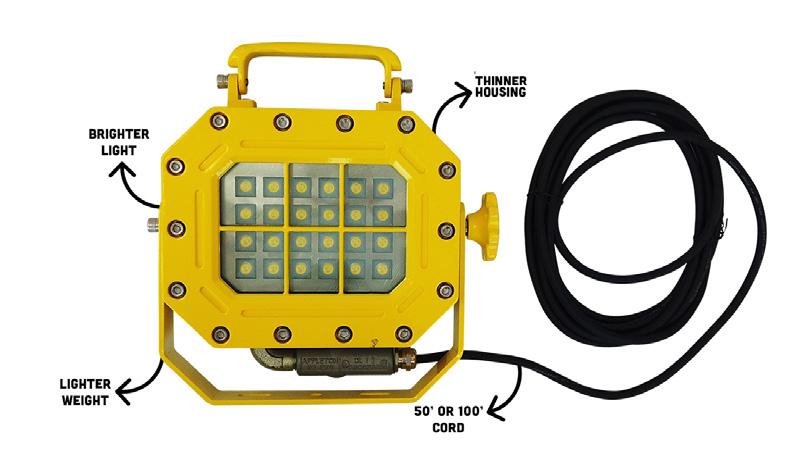

The LED panel is slim, lightweight and emits a significant amount of light. The thin housing and sleek design not only look good, but also allow it to produce these lights at a fraction of the cost. The smaller, lighter lights also allow one to use many different mounting accessories, including tripods, floor stands, magnet mounts and scaffold mounts.
The XP970LED boasts a bright 5,660 lumens only using 40W and weighing 17 pounds, while the XP980LED puts out 24,000 lumens, using 160W and weighing 35 pounds.
https://rnt.news/ixotcz

Mi-T-M Corp.’s range of inverter generators is equipped with a carbon monoxide (CO) detector and auto shutdown if CO levels become unsafe. Each model ranges from 2000 to 8000 watts. The 2000- and 2500-watt inverter generator models feature GFCI-protected receptacles, and their frames are lightweight and designed for easy hand-carrying. The 3500-watt inverter generator has an open frame design. The 4000- and 8000-watt options include recoil and electric start with a sealed battery, as well as handles and wheels for portability. Both models include digital displays with LED lighting for voltage, hertz, run hours and total hours.
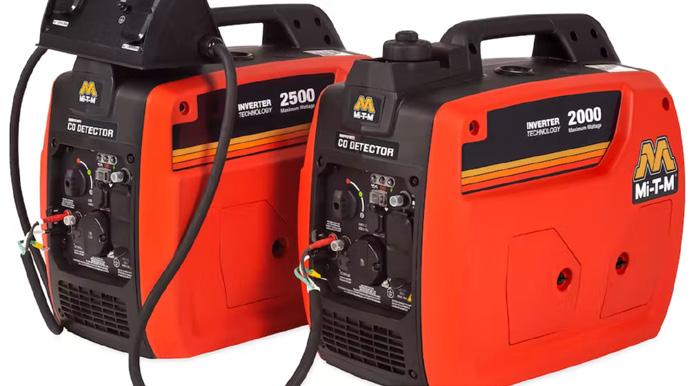
https://rnt.news/wsjhgs
The POWRBANK MAX is a rental-ready, emission-free energy storage solution. It can power high-power loads like tower cranes, hoists and large pumps. The POWRBANK MAX significantly reduces
fuel costs and CO2 emissions. It is completely silent and maintenance free. POWR2 POWRBANKs have traditionally been used for temporary power loads like office trailers, security systems, AV equipment and refrigeration. Customers requested energy storage for larger equipment like tower cranes. Diesel generators are sized to handle the peak load when equipment of this size is powered on. The POWRBANK MAX can handle both low load periods and the peak, eliminating generator oversizing.
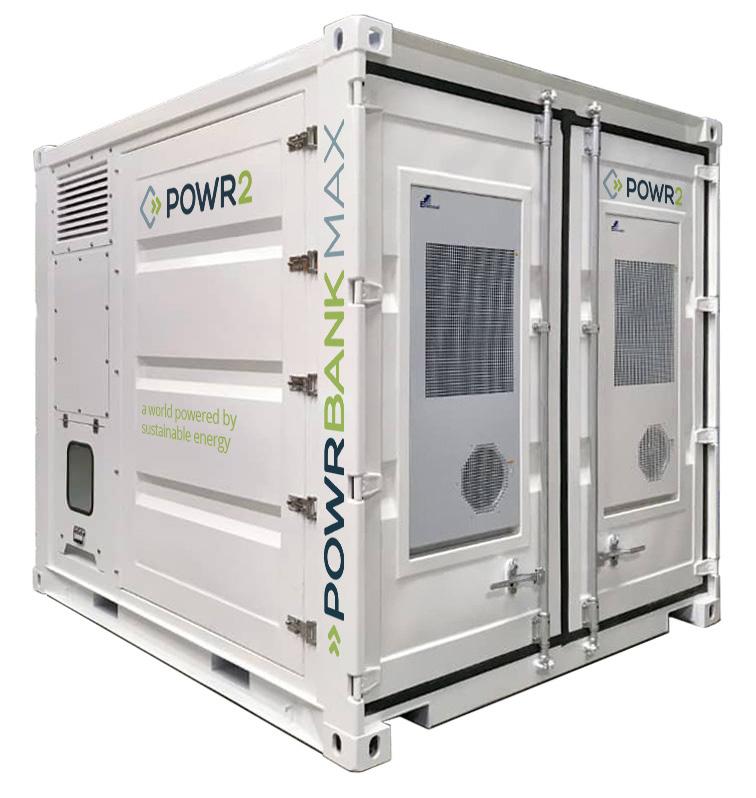
With Rover and Alert Rental’s software

Revision 22, users will be able to use their phones or tablets to find tickets, assign fixed assets, change quantities, update meter readings, add rental and sales items and more. From there, users can easily email the updated ticket to the customer with the tap of one button.

Cojali’s Jaltest 22.2 helps serve the day-to-day needs of repair shops and fleets.
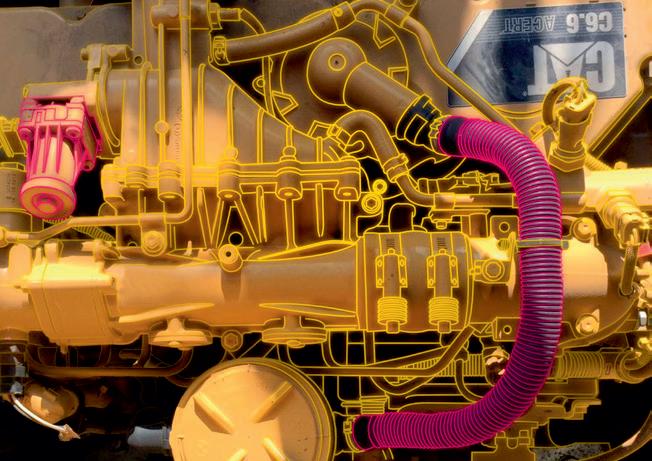


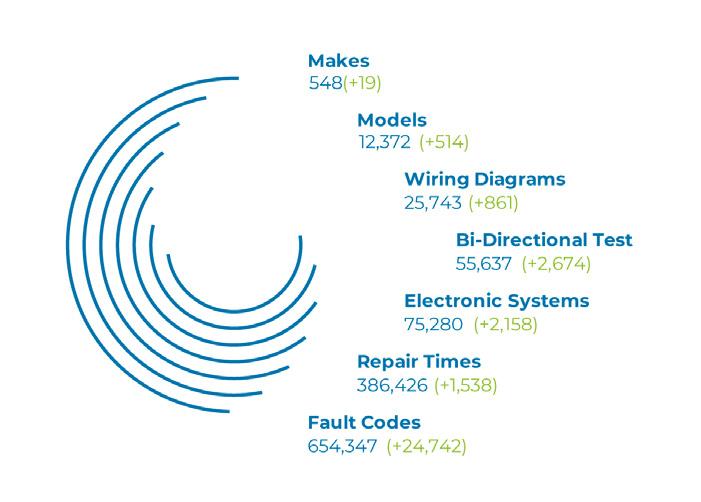

Jaltest OHW for off-road equipment and machinery includes Jaltest Download Manager for downloading Jaltest versions; image zoom; GRP analytics; a gateway system for Bobcat compact excavators; check-ins of the exhaust gas aftertreatment system in Caterpillar C-9.3 (Tier 4F/Stage V) engines; a new Mitsubishi brand in stationary engines; and parameter modification of the implement control solenoid valves in the V2ECU system for Volvo CE Series (XY F) wheel loaders.
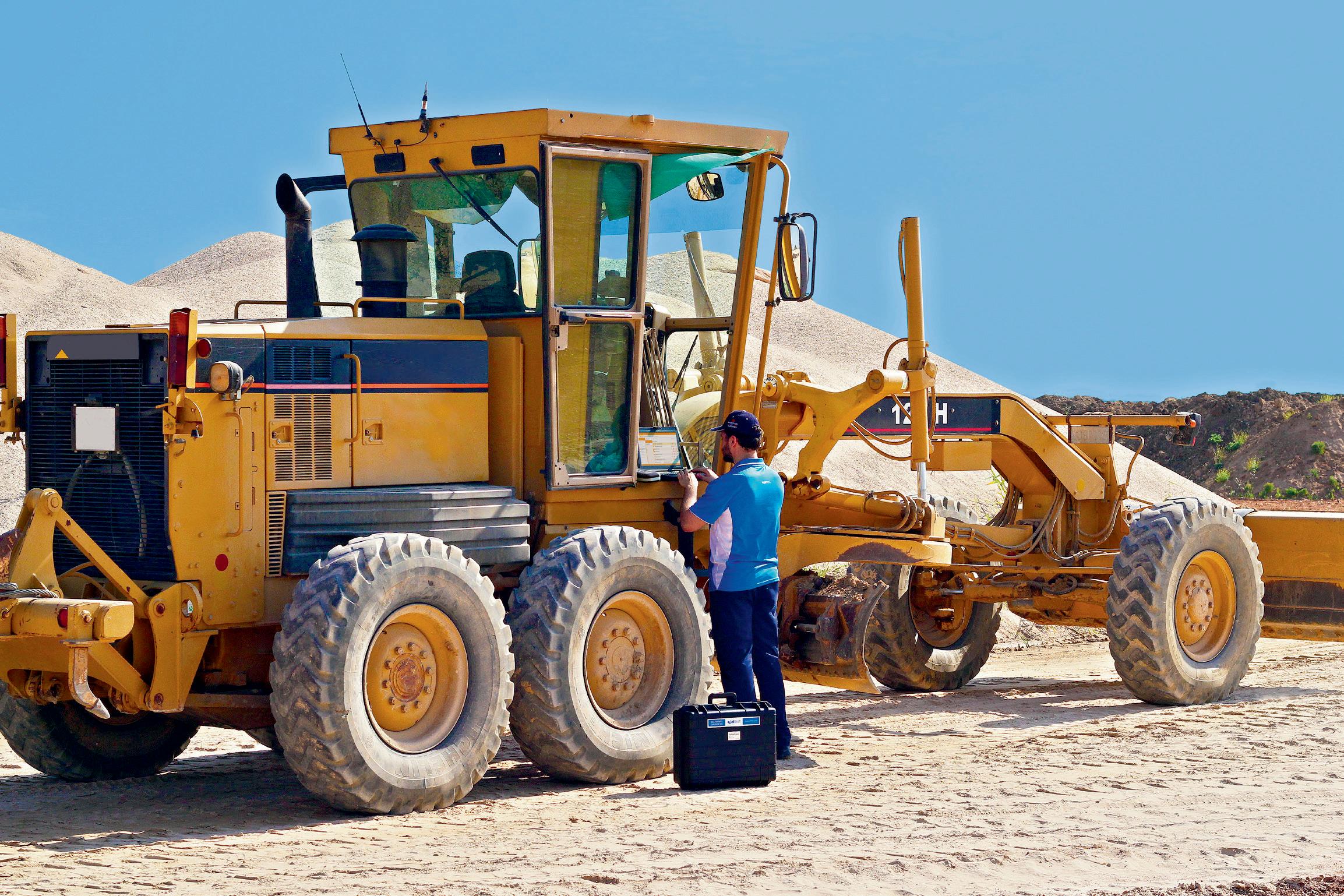
Jaltest MHE for material handling equipment features Jaltest Download Manager for downloading Jaltest versions; image zoom; GRP analytics; a new central computer in Caterpillar forklift; for Genie, reset of the shoot content in the DPF; a new Kohler engine Final Tier V; new models available in Liugong; and a new system for Zapi power module.
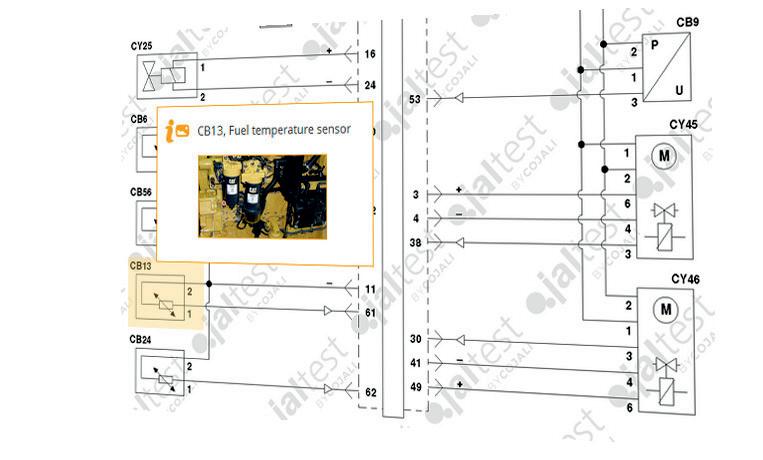

monitoring of any asset to improve logistics, manage inventory and curb theft. The innovative, self-contained GPS tracking solution installs in seconds, requires no external power and can last years on “off the shelf” batteries. Its proprietary Adaptive Tracking delivers long battery life while actively alerting on curfew violation, movement or geofence breaches as well as allowing the user to switch to “Recovery Mode” over the air. The AssetView is waterproof and has no long-term contract so customers can deactivate and reactivate without penalty.
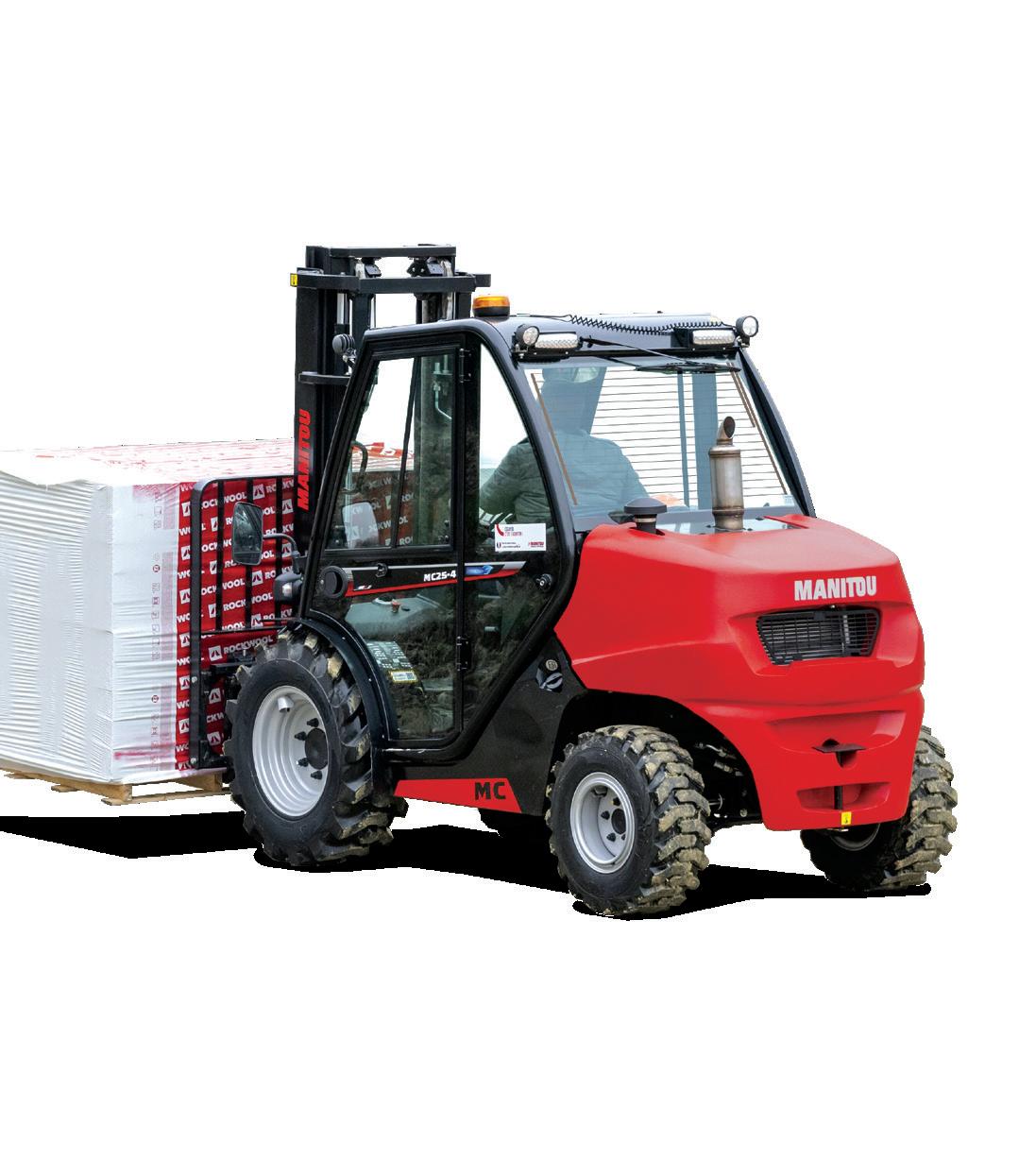
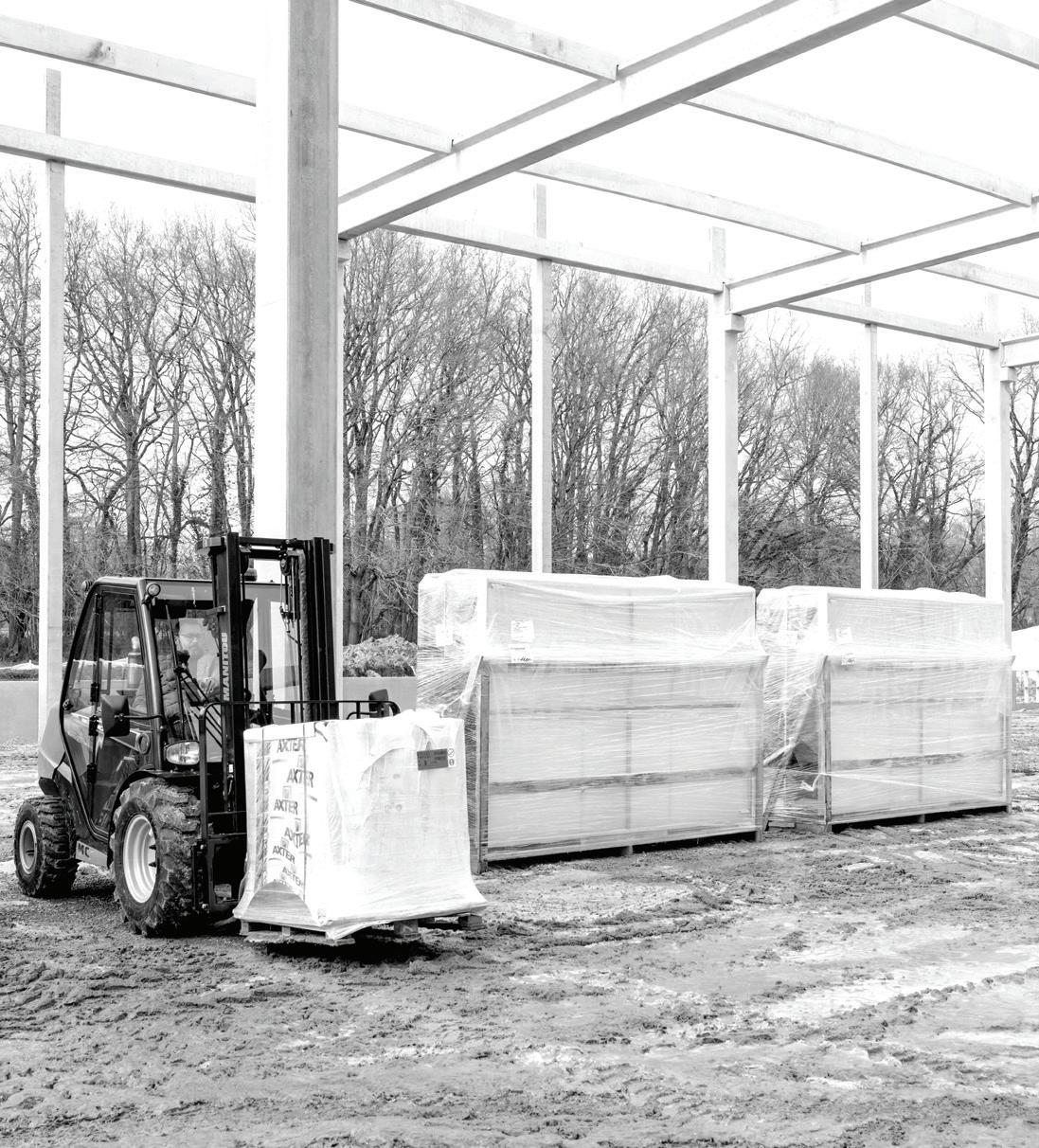
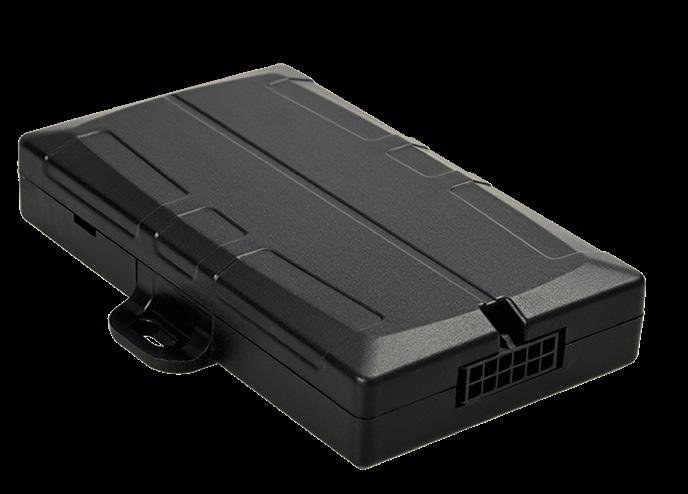
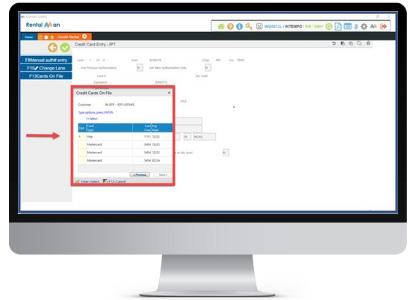
InTempo Software’s newest offering, a real-time payment processing module for InTempo Enterprise, allows users to securely process credit and debit cards without leaving their rental software. With Curbstone, rental companies can keep cards on file, reduce their PCI compliance obligations and save money on their payment processing fees. Full support for rental-specific transactions—such as cash customers and cycle billing—make payment processing simple.
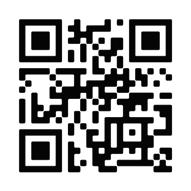
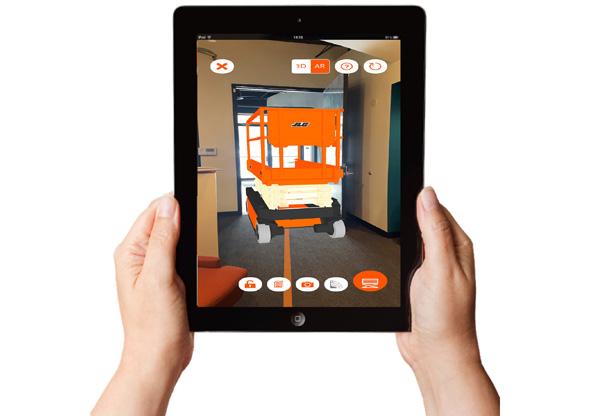
The JLG Augmented Reality (AR) app next-generation upgrades include an all-new interface and experience, new content, cloud-based and offline use, expanded machine inspection functionality and a new “Fleet” feature. The JLG AR app continues to provide the following five functions for increasing safety, productivity and efficiency on jobsites: 1) machine visualization, 2) accessory visualization, 3) operation guidance, 4) decal viewer and 5) inspection assistant. Upgrades to the app include several performanceenhancing capabilities to these functions, such as a refreshed mobile application interface and experience that starts at the machine level, allowing users to select a product and go directly into its content module from either the menu guide or through the app’s search functionality. New machines and content have also been added to the equipment modules, offering users more than 60 models to
and manipulate
3D.
machine location and observe data points such as engine hours, fuel rate and usage, diesel exhaust fluid level, battery voltage and more.
ability for users to access data and generate
using the online X-Command dashboard
their computer or mobile
and simple remote diagnosis of a telematicsequipped machine.
comes standard for two years on new telehandlers
also available as a retrofit for existing X-Series models

the field. It is optional on new Cary-Lift
handlers and Speed Swing
Smart
items tend to get rented together and makes relevant
a customer rents an item online. This
in fewer additional trips from customers, increases
average contract value and makes the in-person
process
Additional features include:
Inventory reports show utilization, maintenance due, damage, inventory losses,
reports show ROI, inactive inventory items and
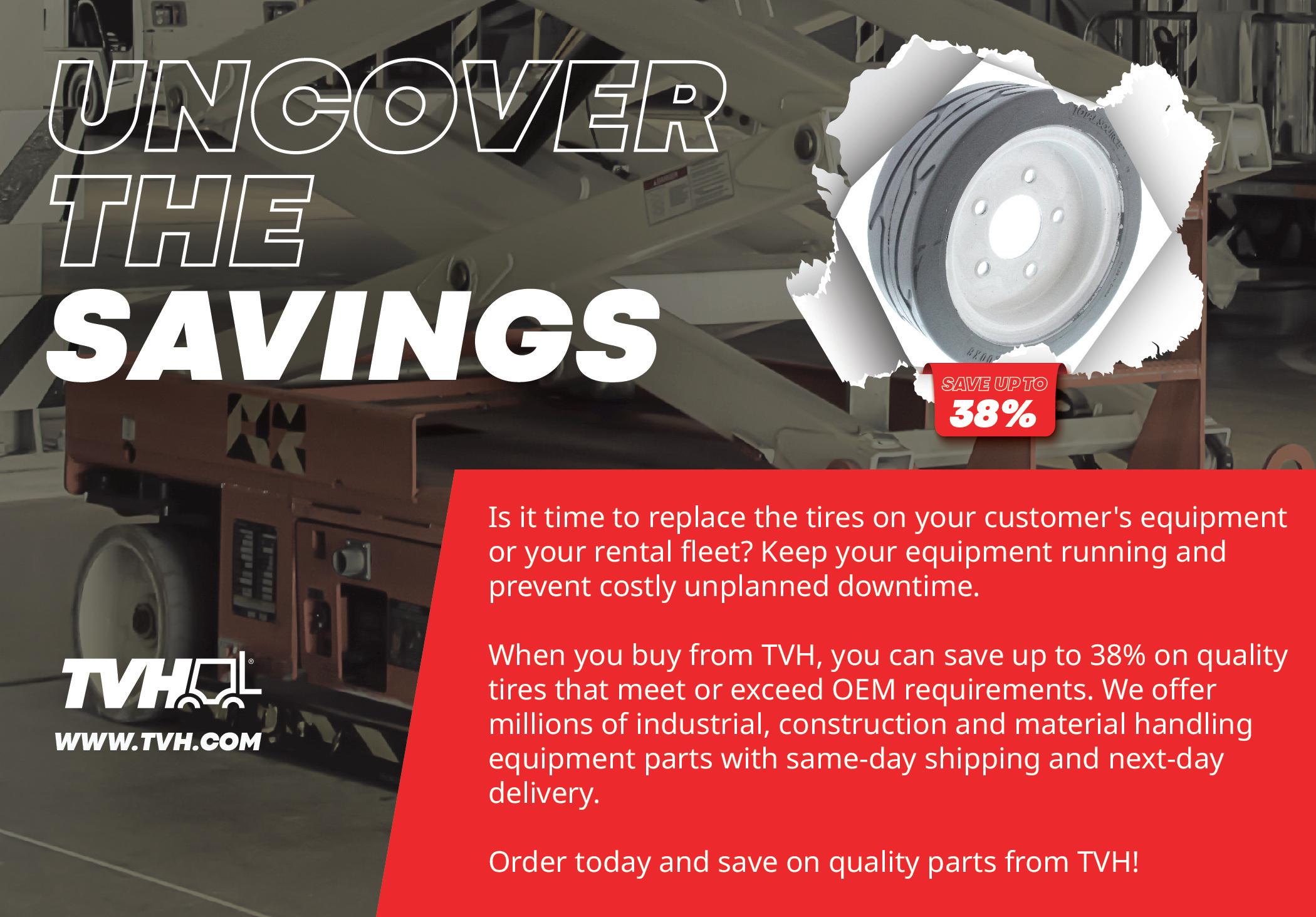
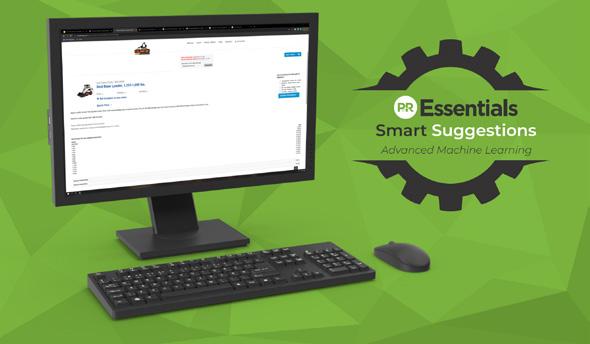
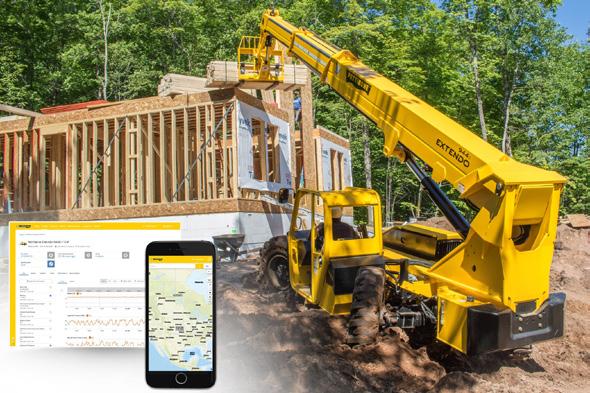
day, stock and category.
reports
pull picklists,
daily deliveries
ledger entries
of which are now telematics-ready.
Powered by Trackunit, Snorkel
is a fullservice telematics
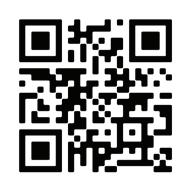

available on most of the company’s current MEWPs and telehandlers,
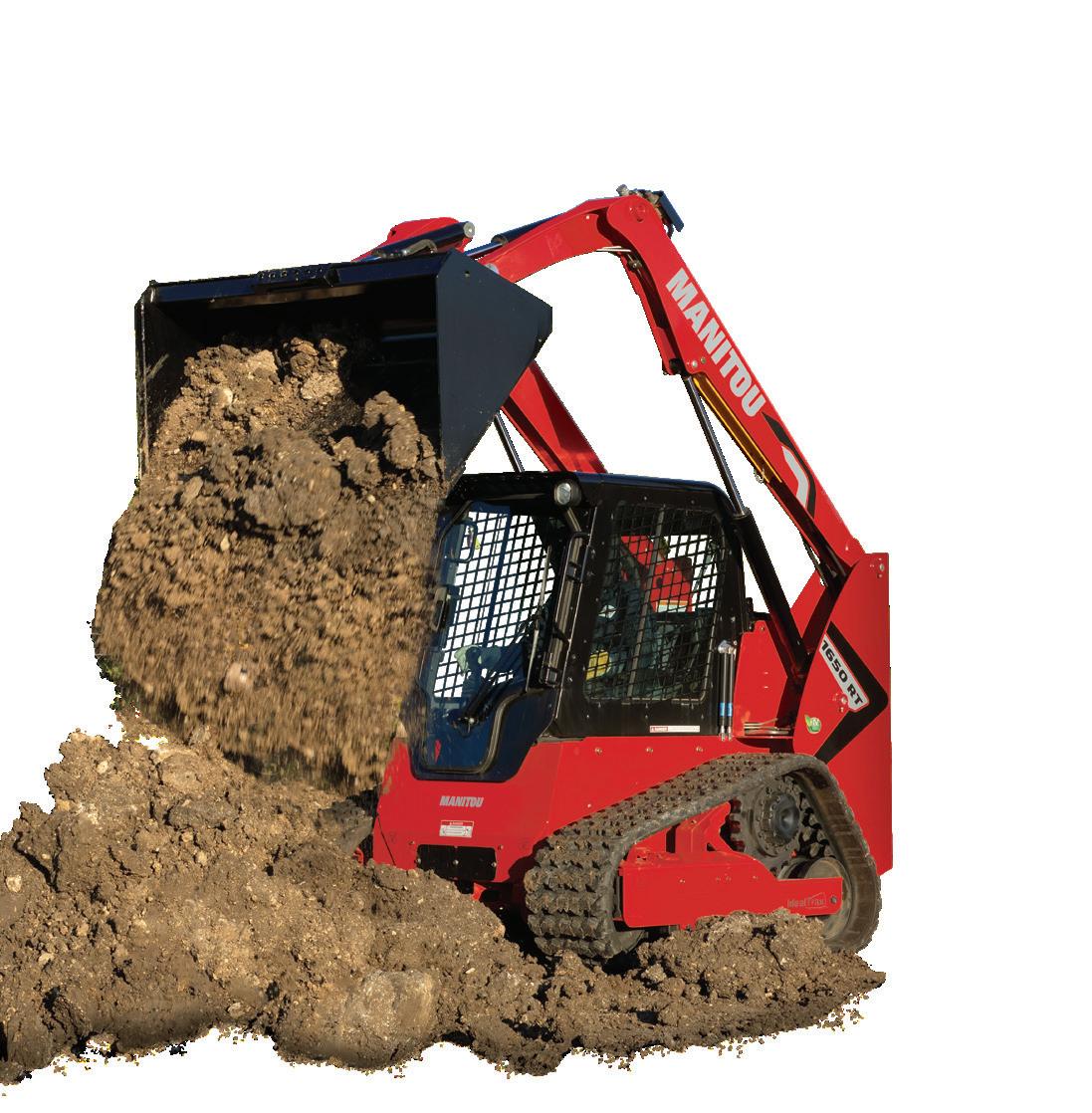
include:
Can be optioned at the time of ordering for factory install or for field installation by an authorized dealer or service center
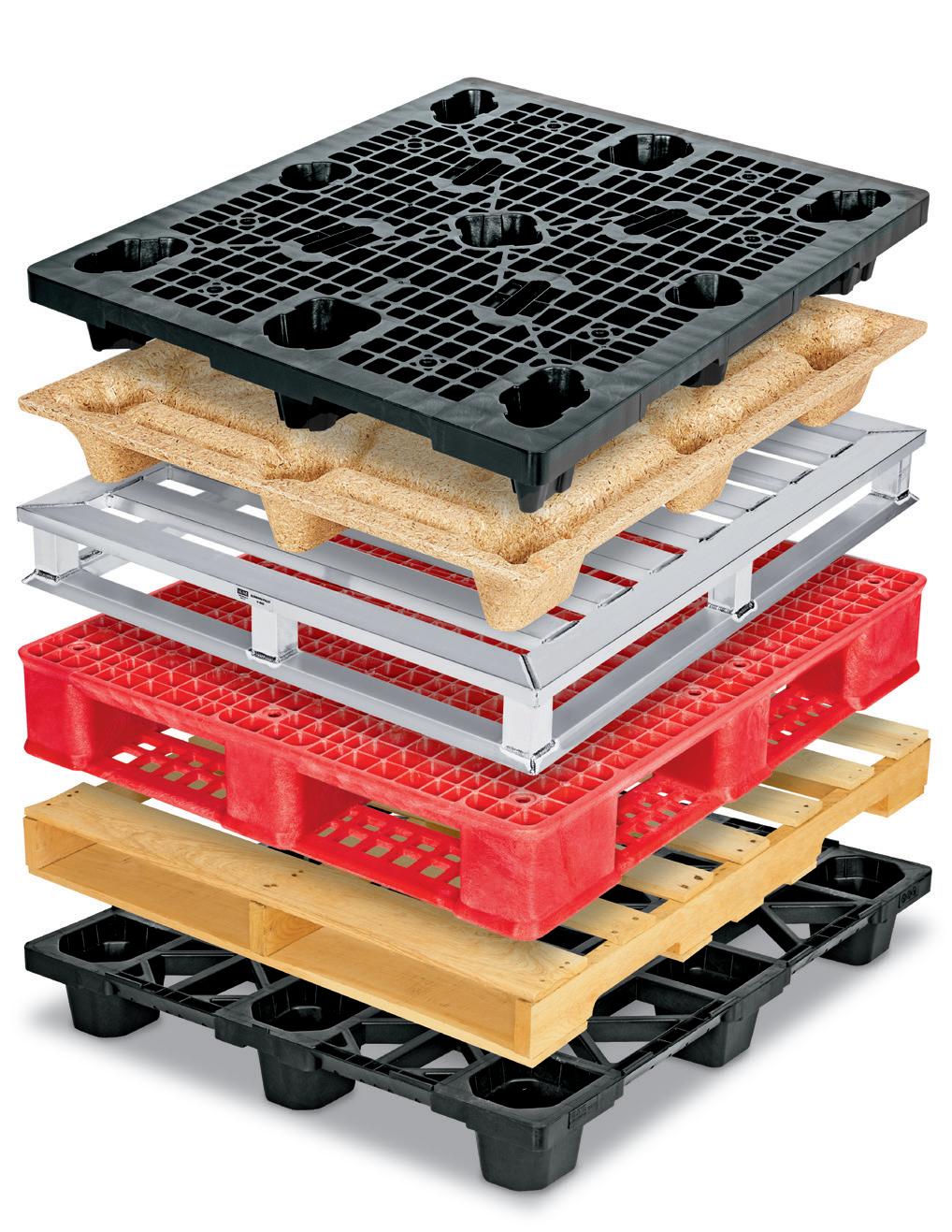
Direct data and API package that can feed data from lifts directly into a customer’s existing telematics
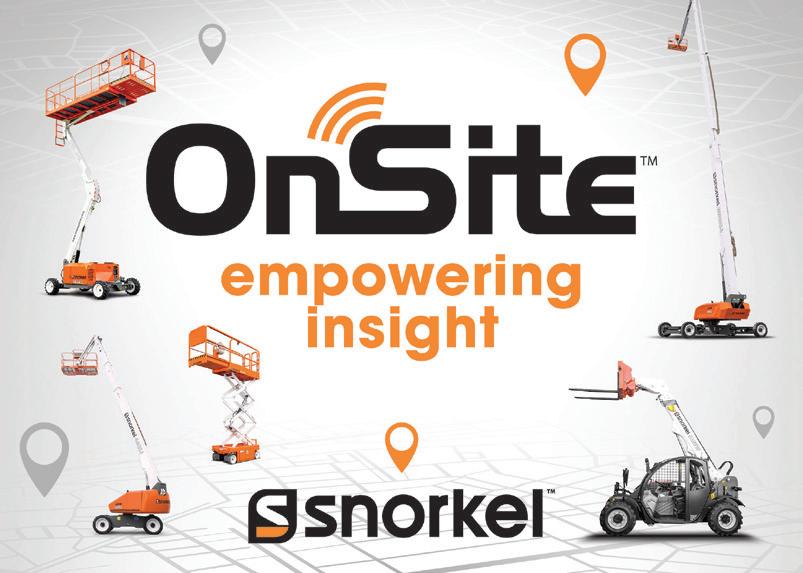
Data and dashboard package, which includes access to a Trackunit-branded dashboard where a customer can access machine data and feed in products from other
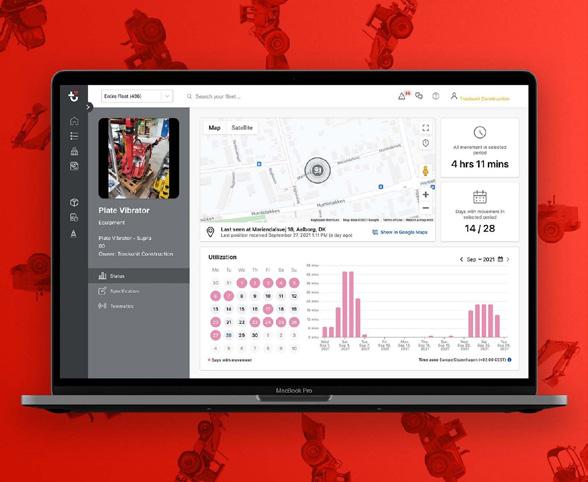
The Asset Utilization capability of the Bluetooth tag Trackunit Kin enables transparency in the
of tagged equipment. Kin can detect utilization of tools and attachments through the built-in accelerometer. It combines utilization and location data to find equipment, check how it is being used and determine jobsites it could be relocated to, bypassing the need to make timeconsuming calls to site managers. The Kin tags are
a minute and leverage

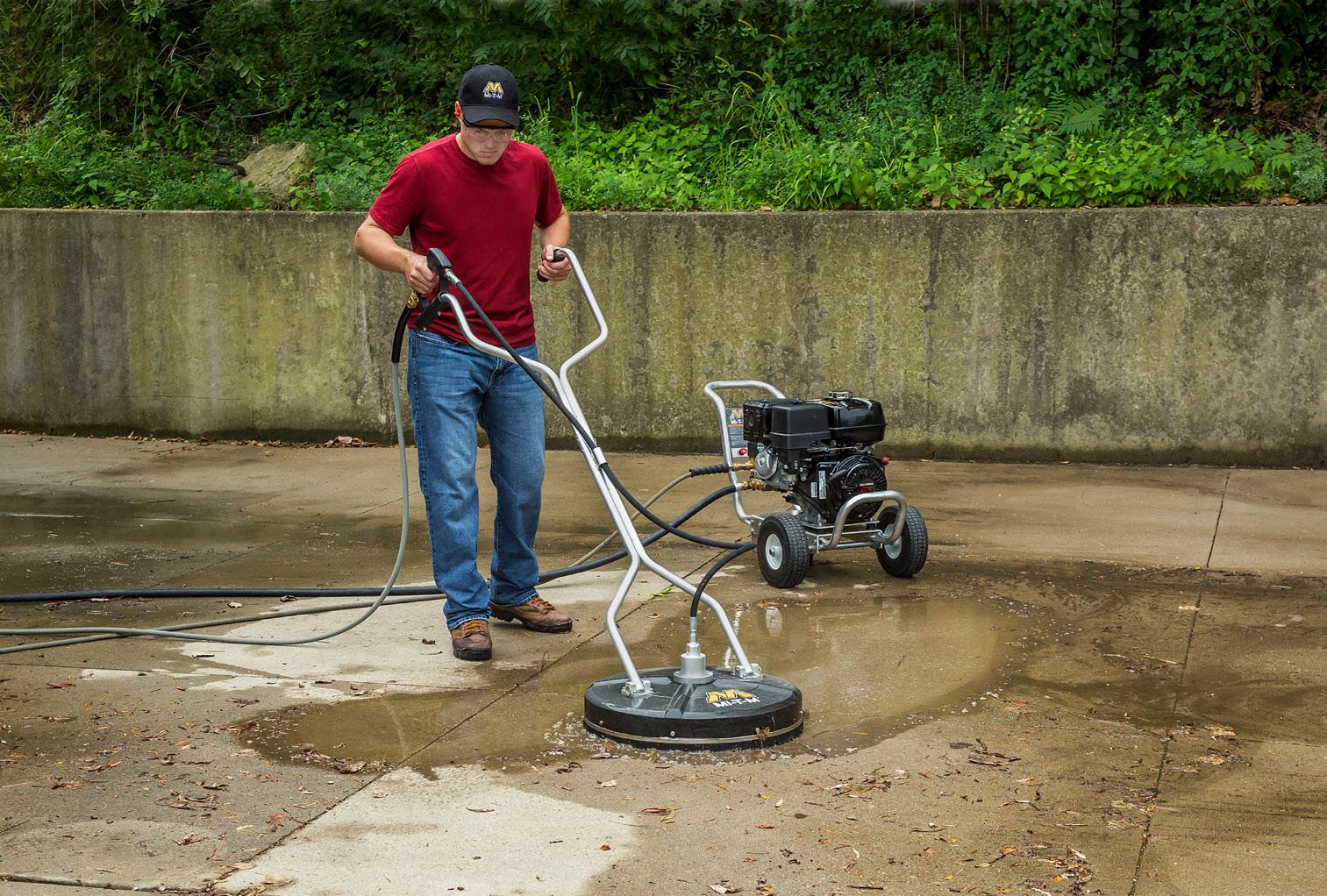
As winter approaches, it’s important to remember to winterize pressure washers before freezing temperatures hit.
“It’s a thing that’s overlooked too often in the industry. People forget about it, but it is critical,” says Nate Abrahams, senior sales trainer at Karcher. “You put a pressure washer in the back of a truck, and it’s 30 degrees out and you’re going down the highway: It’s going to freeze in a matter of minutes. Winterizing pressure washers is really easy to do once you’ve done it once or twice. People just need to make sure they remember, or they could have a $7,000 machine that needs $3,000 worth of work when it freezes.”
Abrahams and Kevin Anstoetter, national rental division manager at Mi-T-M, discuss what rental companies need to know about winterizing pressure washers.
There are several different techniques professionals can use to winterize their pressure washers.
“Whether it be a cold or hot water pressure washer, they should be winterized. The fear of a hot water pressure washer freezing is the heating coil,” says Anstoetter. “That's an expensive mistake if it does freeze. If that freezes, they normally will burst; the coil itself will expand enough where it’ll actually rupture. If you have a cold water pressure washer, there’s a chance you can bust the pressure washer head, crack the aligner or mess up the packing.”
One technique involves users blowing all the water out of the pressure washer.
“While blowing it out, some people will actually start the pressure washer to run it for a few minutes, but if they do that, there’s always that residual water that’s sitting in that pressure washer, so before you start it, you have to bring it into a warm environment and make sure all that leftover water is through before you start it,” Anstoetter says.
Another method is to introduce an antifreeze product into the machine.
If using an antifreeze product, it needs to be introduced in every place water would touch, including the pump, bypass loop, accessories, hose and trigger gun.
“That means you’re going to introduce antifreeze where you would normally have the water hookup, and that would then replace all of the water in the system and make it completely protected. If it’s a trailer system, that would include the water tank itself,” Abrahams says. “I would recommend that they stick with either RV antifreeze or automotive antifreeze. Some people use windshield washer fluid, and that can work, but it’s not great for the seals inside of that pump. I prefer automotive because RV antifreeze tends to turn into a slush and you have to let it basically unclog before you can pump it out, whereas automotive antifreeze is always liquid.”
Many manufacturers also provide winterizing kits that introduce a product into the system to keep it from freezing.
Some people who live in warmer areas choose not to winterize their pressure washers and simply store them in a warm location. However, professionals should keep an eye on the weather to make sure freezing weather is not ahead.
“Now, for example, in Texas, they typically don’t have to
worry about winterizing, but if you remember last year, they got that severe storm,” Abrahams says. “There were hundreds and hundreds of machines that were frozen last year during that power outage and deep freeze they got. So, a lot of service work had to be done for a lot of customers.”
For people who live in colder areas, Abrahams says winterizing the machines around Halloween is usually a safe bet.
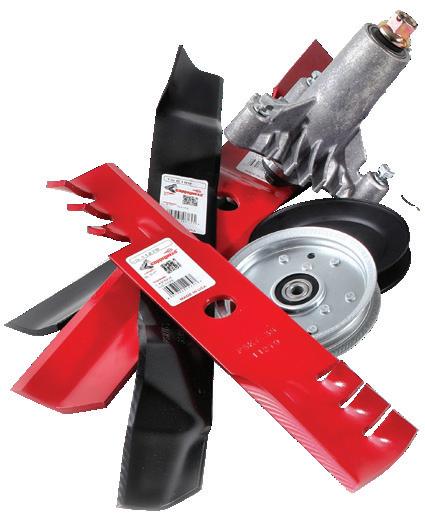
All in all, the process doesn’t take very long.
“If it’s your first time, it will take maybe 15 minutes. If you’ve done it before on a traditional machine, like the mobile unit that I train on every day, I can have that machine done in less than five minutes, probably closer to two,” Abrahams says.
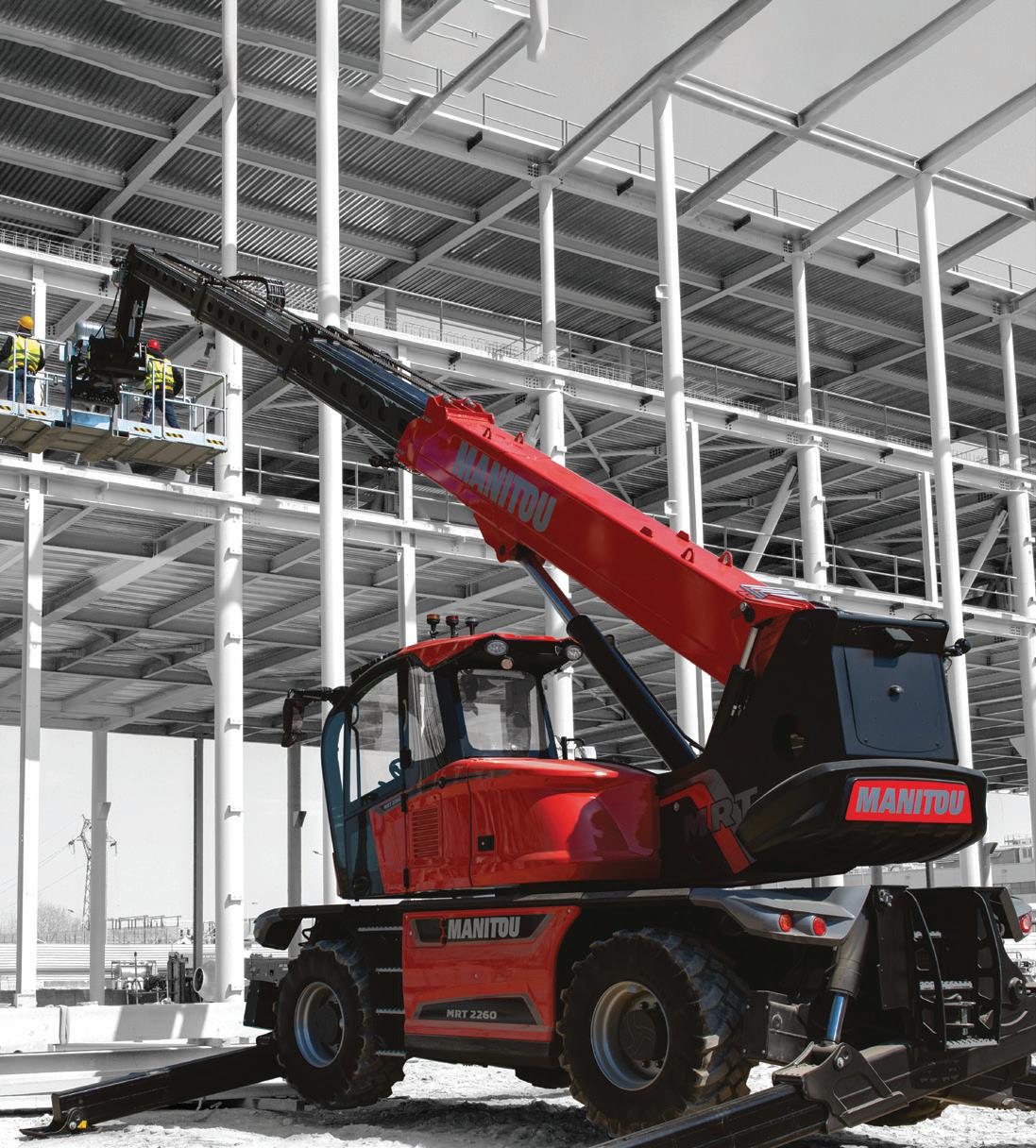
Anstoetter recommends that people winterizing pressure
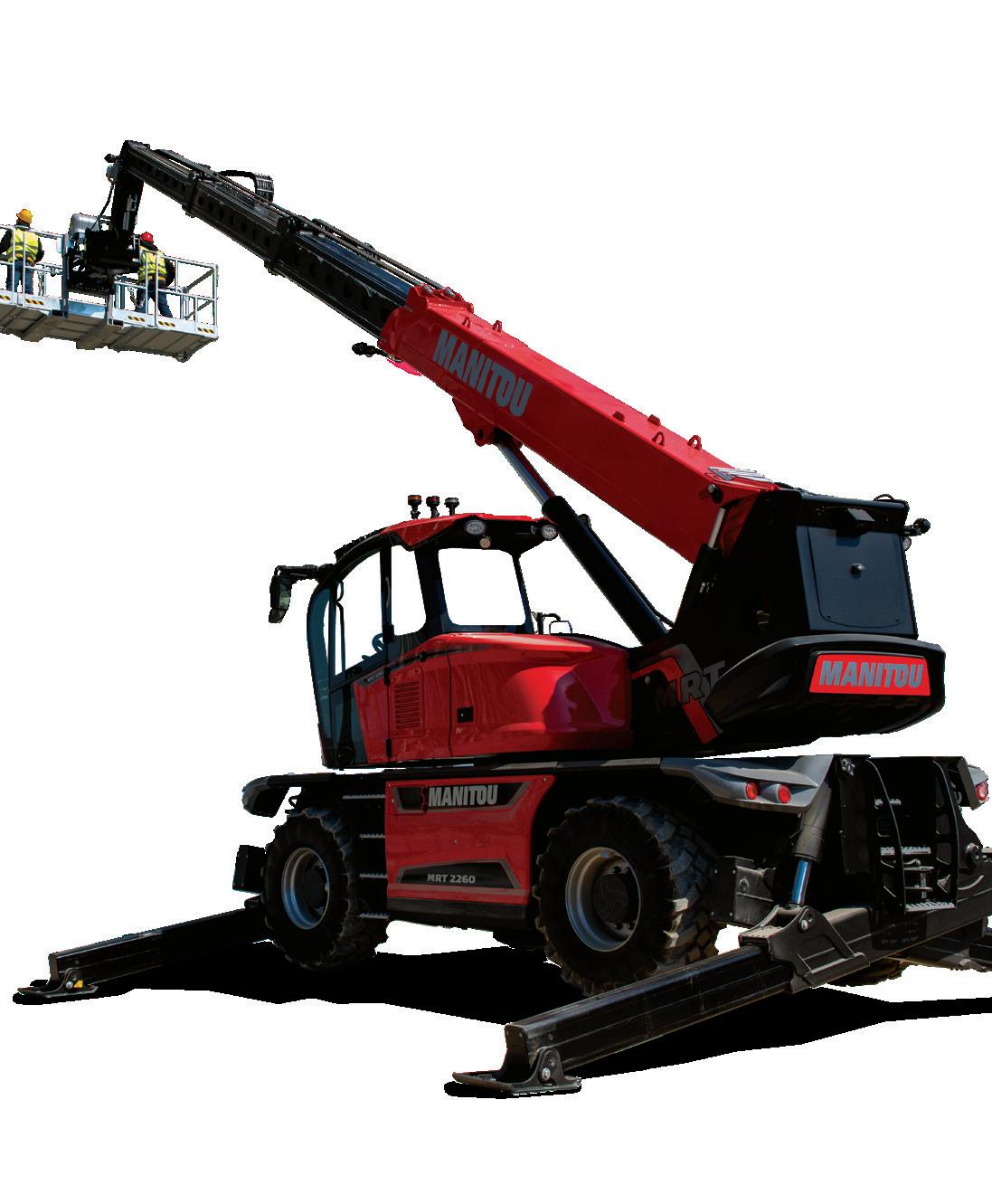
washers lean on the manual if in doubt about the process.
• Watch the oil levels and the oil in the pump itself. If you see the oil turning a milky color, change it immediately.
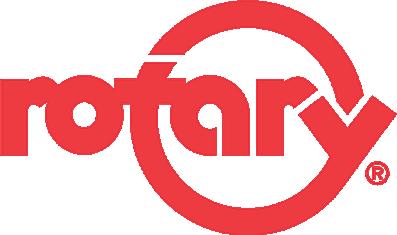
• If you happen to see any water leaking from underneath the head of the pump, that’s an indication that there’s possibly a cracked liner or that maybe the packings are going bad.
• Check pumps, valves and ceramic liners.

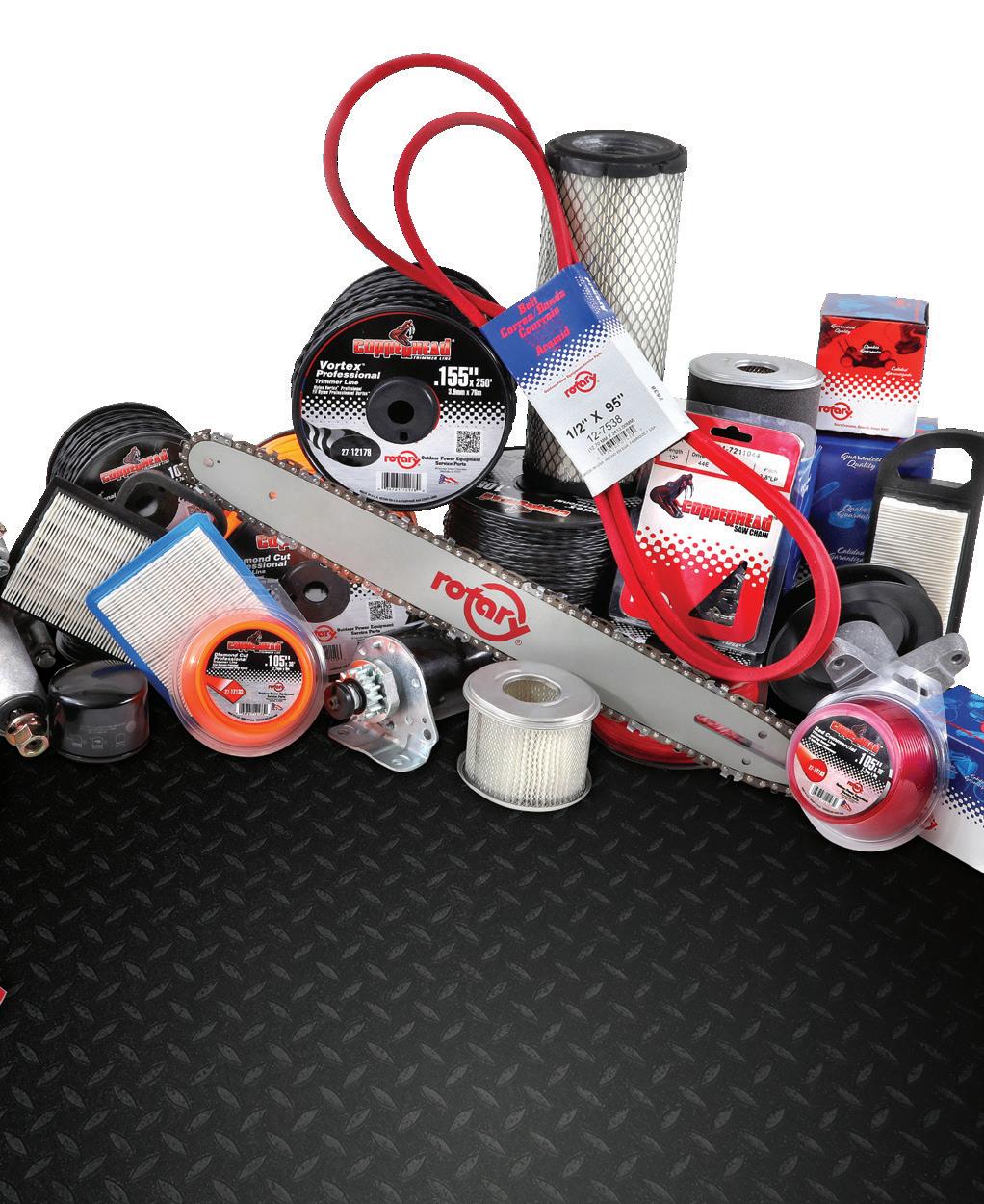
• Make sure the correct nozzles are being used and that the gun isn’t leaking anywhere.
• Check the pressure washer hoses to ensure there are no leaks or scrapes. If you start to see damage, take it out of service and replace it.
One rental company discusses how it handles drug and alcohol tests for its employees.
It can be a fine line between ensuring employees’ safety while at work and invading their privacy by digging into what they do outside of work. Rosie Ricca, human resources manager at A Tool Shed, and Robert Pedersen, president and CEO at A Tool Shed, lay out how their Californiabased company deals with substance testing.
Rental: Have positive drug tests among workers at your company increased in recent years? If so, when did the increase start?

Ricca: Yes, I have seen an increase in California since marijuana became legal for recreational use. Other substances did not seem to change in frequency. By 2020, it was definitely typical to see someone with THC still in their system. Our current commercial drivers have been consistent with having clean drug tests, however. A precedent has been set within the training of Class A drivers for sobriety.
We used to test all employees. Before hiring, one of the tests was marijuana, and if they had marijuana in their system, they wouldn't be hired. All that has changed now because it was an illegal drug at the time.
We make sure that they do the tests within 24 hours of the job offer, so they
have to pass it contingent upon the job offer within a day because some of the harder drugs leave your body quicker. If someone has some illegal substance in their system when they’re applying for a new job, it’s probably not a good idea to have them work on heavy equipment.
The commercial drivers are tested randomly, and that is done through a third-party administrator, so we don’t even know when our drivers will be tested.
Editor’s Note: California Gov. Gavin Newsom signed into law a bill that does not allow employers to discriminate against workers who smoke weed “off the job and away from the workplace.” The new law goes into effect Jan. 1, 2024.
The law prohibits employers from making hiring, firing or other employment decisions based on a drug test that finds “nonpsychoactive cannabis metabolites” in someone’ s
hair or urine, which do not indicate current impairment, but that someone consumed cannabis recently, up to weeks prior.
Ricca: It depends on the substance. THC could be in someone’s system from last month, and alcohol is about four to six hours. If you suspect someone is intoxicated while working, taking them to get tested and terminating if positive for anything except THC would be fair. I think if an employee is a driver, they should have random tests even if they are non-CDL, and their tests should be 100 percent clean. Regular tests I feel would be invasive. Random testing I feel would be the best way to administer tests.
Rental: How can rental companies prevent employees from engaging in such activities while at work?
Ricca: We cannot control people outside of work. We offer a lot of tickets to events in the surrounding counties, and I think that certainly boosts morale and gives people some leisure time when they are off work. Supporting a work-life balance can help people be more content and hopefully draw habits away from substance abuse.
Rental: What kind of policies and procedures can companies put in place to ensure employees follow safe work practices?
Ricca: Setting the expectation that safety procedures need to be followed and encouraging employees to communicate with their manager if they are feeling unable to do certain tasks safely that day. Perhaps they didn’t get any sleep, took an over-the-counter or prescribed drug that is inhibiting their abilities and should be on other duties.
Companies have to know their staff and their team, or at least the yard supervisor has to know them in order to see if there’s something different going on with how they’re working and how they’re behaving. Our managers actually have gone through a class so they recognize the issues if somebody is under the influence of either drugs or alcohol or something along those lines. It was 120 minutes, and it’s based on the Department of Transportation guidelines. It’s a training that’s done later on at the management level. We’ve done it about every five years or if a new manager comes on into that position.
Rewarding those who show active use of safety procedures is a good practice. For example, “I really
appreciate how you always use the safety belt” and “Good idea, you’ll need those safety goggles,” etc. Support from a supervisor goes a long way.
Ricca: If it is positive at onboarding, you may want to consider whether this person is to be hired. However, this is a difficult decision in the current job market. If someone is positive for THC and not driving for us, then I may consider continuing to hire. A discussion with them about how you expect them to be present and prepared at work would be in order. If someone is a current employee, and you find they are intoxicated at work, the consequences are termination. Potentially they could hurt themselves or someone else just being around the equipment, so adding drugs and alcohol to the situation makes the probability of that even higher. It must be addressed.
Pedersen: Safety is a primary concern in our industry when you’re working with equipment and other people around it and customers who aren’t always familiar with the equipment. I can’t stress safety enough, and we push it all the time. Drug awareness is just part of that program.
Ricca: Managers must use their knowledge of equipment to observe how an employee is handling that equipment and use their expertise to gauge if that employee is behaving safely. We are not police officers or medical professionals or here to judge anyone. We should be able to know who we can trust with a potentially dangerous piece of equipment, just by observing them. Retraining or evaluation of their state of mind may be in order. The other piece is that unless the test is random, a urine five-panel test is easily manipulated; a physical exam at the time of onboarding with the drug test may be more telling than the drug screening alone.
Employers also need to be aware that laws are changing about giving employees access to recovery and to be rehabilitated if they have an addiction, so it will be treated more as a medical condition.
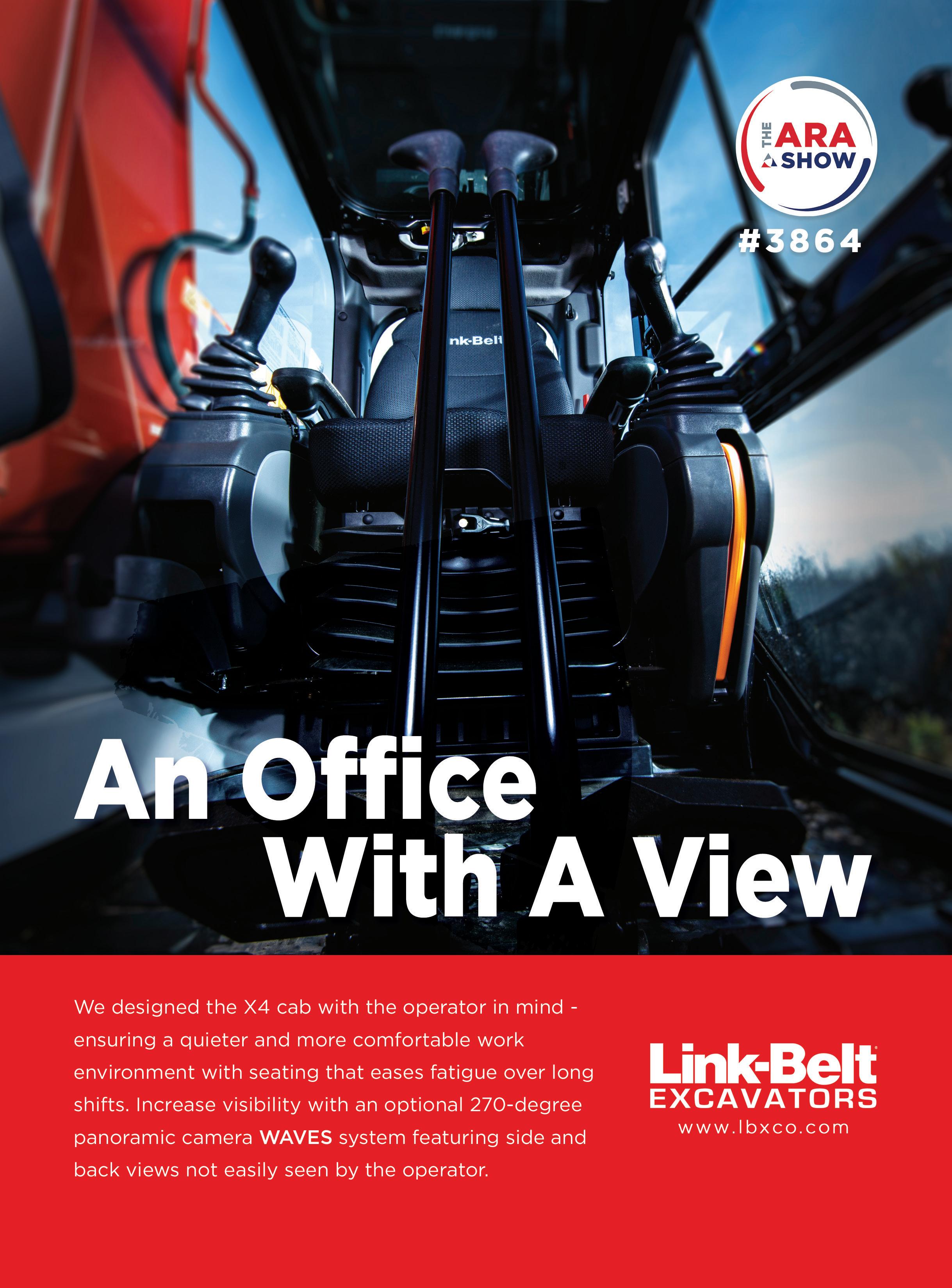
The key to reducing machine emissions is burning less fossil fuel. Operators can do that in multiple ways.
What’s your guess as to how much the building and construction industry contributes to global carbon emissions? 5 percent? 10 percent? 20 percent?
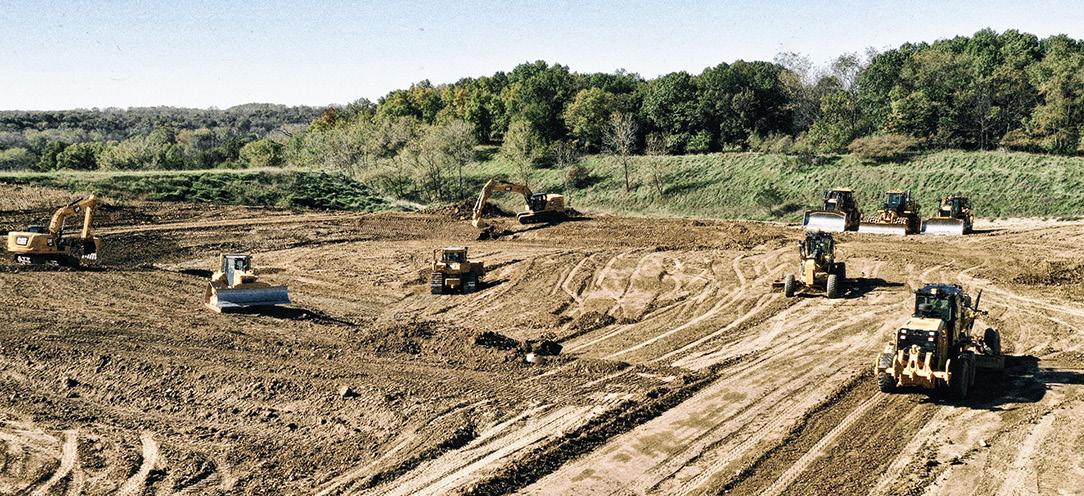
According to the 2019 Global Status Report for Buildings and Construction, it’s 39 percent. That’s a huge number. Granted, most of these CO2 emissions (28 percent) come from keeping buildings operational once they’re constructed, but that leaves 11 percent attributed directly to the construction process.
The key to reducing machine emissions is burning less fossil fuel. You can do that in multiple ways: Choosing equipment that operates on renewable fuels, electric power or technologies like electric drive, leveraging onboard technology that helps reduce fuel consumption and training operators to work more efficiently.
However, one of the simplest ways to burn less is to idle less. Idle time increases emissions because you’re consuming fuel even when you’re not working. It also racks up unproductive hours on equipment, which means you could be changing your fluids and filters less if you reduce idle time.
Follow these five simple steps to reduce idle time, and you can shrink your carbon emissions, generate less waste and cut your operating costs all at the same time.
1. Limit warmup and cool down time. According to the U.S Environmental Protection Agency, three to five minutes is all that’s needed at the start of a shift, and two minutes is plenty for most machines to reach optimum shutdown temperatures at shift’s end. Newer equipment, with automatic shutdown features, can help operators control this process.
2. Shut off equipment during lunch and breaks. Some operators like to keep machines running to maintain an ideal cab temperature, but that can be a big fuel waster. If keeping

Reducing idle time is one of the easiest steps you can take on your journey toward more sustainable operation—and it’s one that can have a significant effect on both your bottom line and your carbon footprint.
the cab warm or cool is essential in your location, consider investing in systems like engine-off cab heaters and coolers instead.
3. Follow the five-minute rule. If your machine is going to idle for more than five minutes, it’s best to shut it down. At that point, restarting equipment actually uses less fuel than idling. This rule applies to trucks waiting to load or unload, as well.
4. Take advantage of idle management systems. Newer construction equipment often feature auto-idle or engine idle management systems. This technology monitors equipment parameters and automatically reduces engine rpm to idle rpm or below.
5. Turn to telematics to monitor idle time. You can use the data to compare working time versus idle time by location, shift, machine or even operator. Then, you’ll have the knowledge to make changes or implement training. Remember to share this data with your team so they can understand the effects of idling on equipment and the correlation with overall operation, environmental stewardship and company profits.
Reducing idle time is one of the easiest steps you can take on your journey toward more sustainable operation—and it’s one that can have a significant effect on both your bottom line and your carbon footprint.
Boom lifts are an important component in the proper deployment and completion of many construction projects. However, given the size, scale and structure of this type of equipment, they can also pose substantial risk and have the potential to cause serious injury if effective safety measures are not followed.

These safety tips are important to consider and implement when operating boom lifts and can help prevent injuries, accidents, damage and liability concerns.
Always make sure that the base and the entire circumference of the boom lift are clear of any personnel while the machine is in use. The circumference of the lift is often significant, and tools can easily fall from the platform and seriously hurt anyone who may be standing below. Keeping the entire area clear minimizes the risk of anyone below being hit by objects that may fall.
Though rare, it is also possible for boom lifts to tip over. Keeping the area under and around the boom lift clear will help ensure that no one is hurt.
Hiring employees who are properly trained to operate boom lifts, and who maintain relevant safety certifications and knowledge, can help keep you and your other employees safe while the machine is in use. Testing potential new hires with hands-on assignments that demonstrate their operational knowledge of the lift can help detect potential problems and address them before any accidents happen on the actual job.
These may seem like common sense, but when it comes to safety, reviewing and following basic safety rules can be the difference between staying safe and an injury.

Meet the world’s largest self-propelled boom lift. With patented design features like static axle transformation and secondary platform controls, the high specification Snorkel 2100SJ features impressive reach and lift height. Exceptional up and over capabilities offer a maximum horizontal reach up to 115 ft. with a 30 ft. jib boom and a best-in-class working envelope, with 770 lbs. unrestricted capacity with the jib boom stowed. Robust 4-wheel drive and five steering modes deliver superb rough terrain performance with a tight inside turning radius for excellent maneuverability.
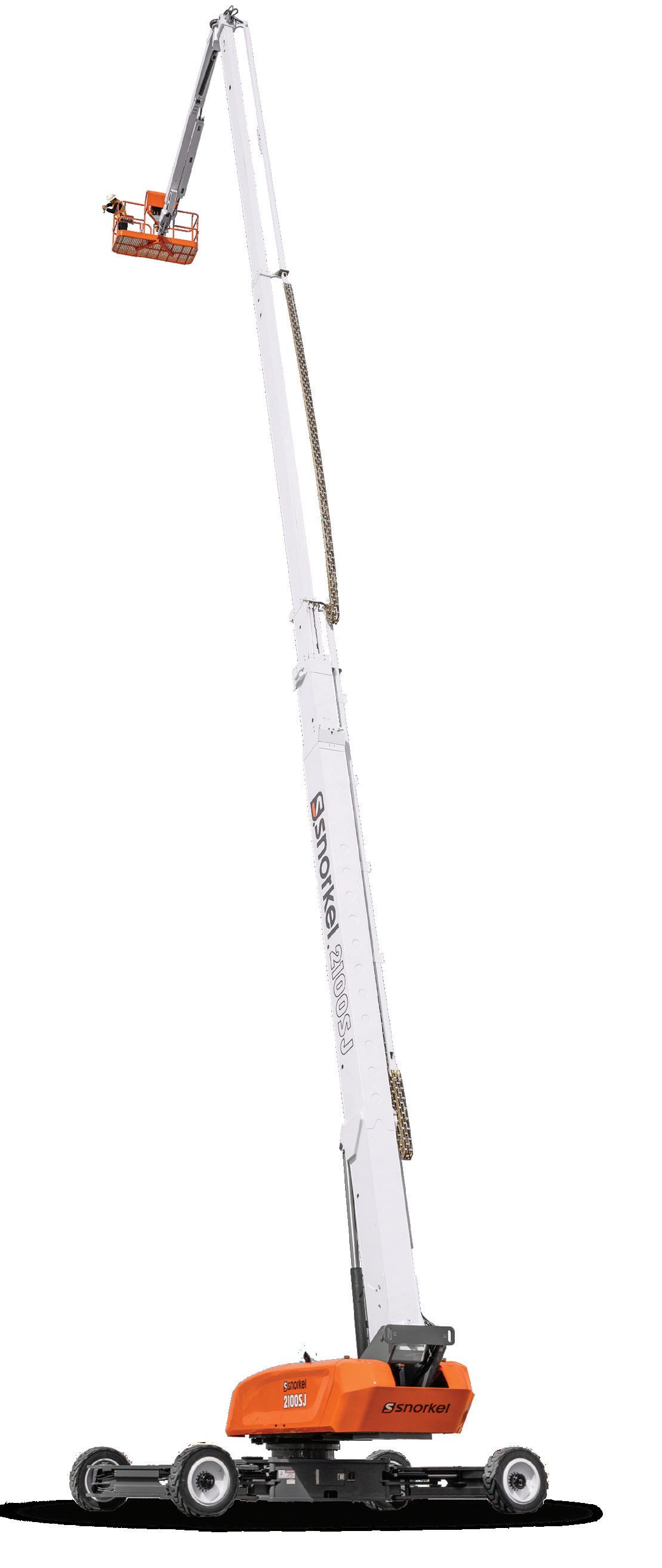
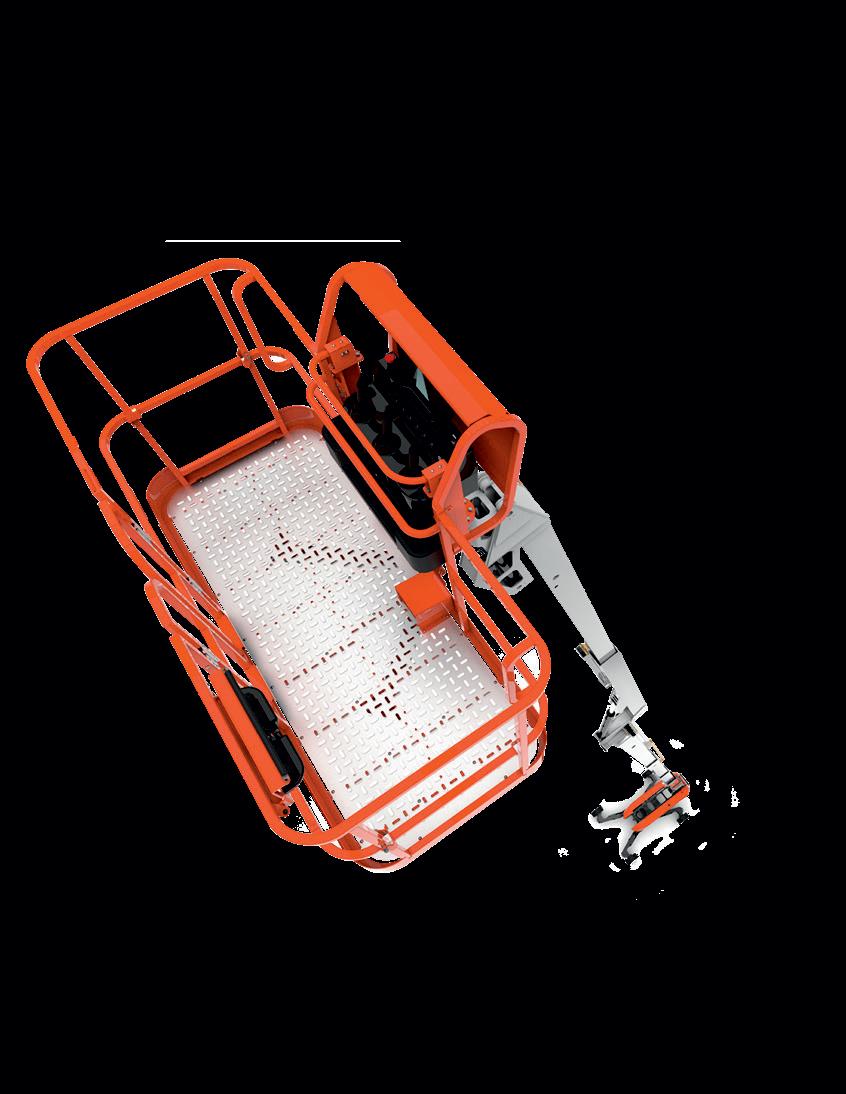
A simple but vital safety measure is wearing a harness and ensuring the lanyard is fully secured to the bucket. While it may seem unlikely that an operator will fall out of the platform, even the slightest bump from another piece of equipment or object can throw operators off balance and put them at risk of falling. Even a strong gust of wind could knock someone down or off of the platform.
Each boom lift has a specific weight capacity. It is important to identify and adhere to these restrictions. Going over this limit even slightly could potentially make the lift top heavy and cause it to tip over.
Prior to operation, always account for the weight of the operator on the lift plus all tools and materials on the
platform to ensure that the combined weight isn’t more than the recommended capacity. It’s also important to remember not to use the boom lift for lifting heavy supplies.
When on the platform of a boom lift, it’s easy to be inclined to climb on the platform edge to reach something instead of moving the entire machine to reach it. This is more dangerous than many realize. Climbing or sitting on the edge of the platform significantly increases the chances of falling off the platform and can result in serious injury.

If there is something that isn’t accessible, communicate with the boom lift operator to help get to a safe position where you can easily reach
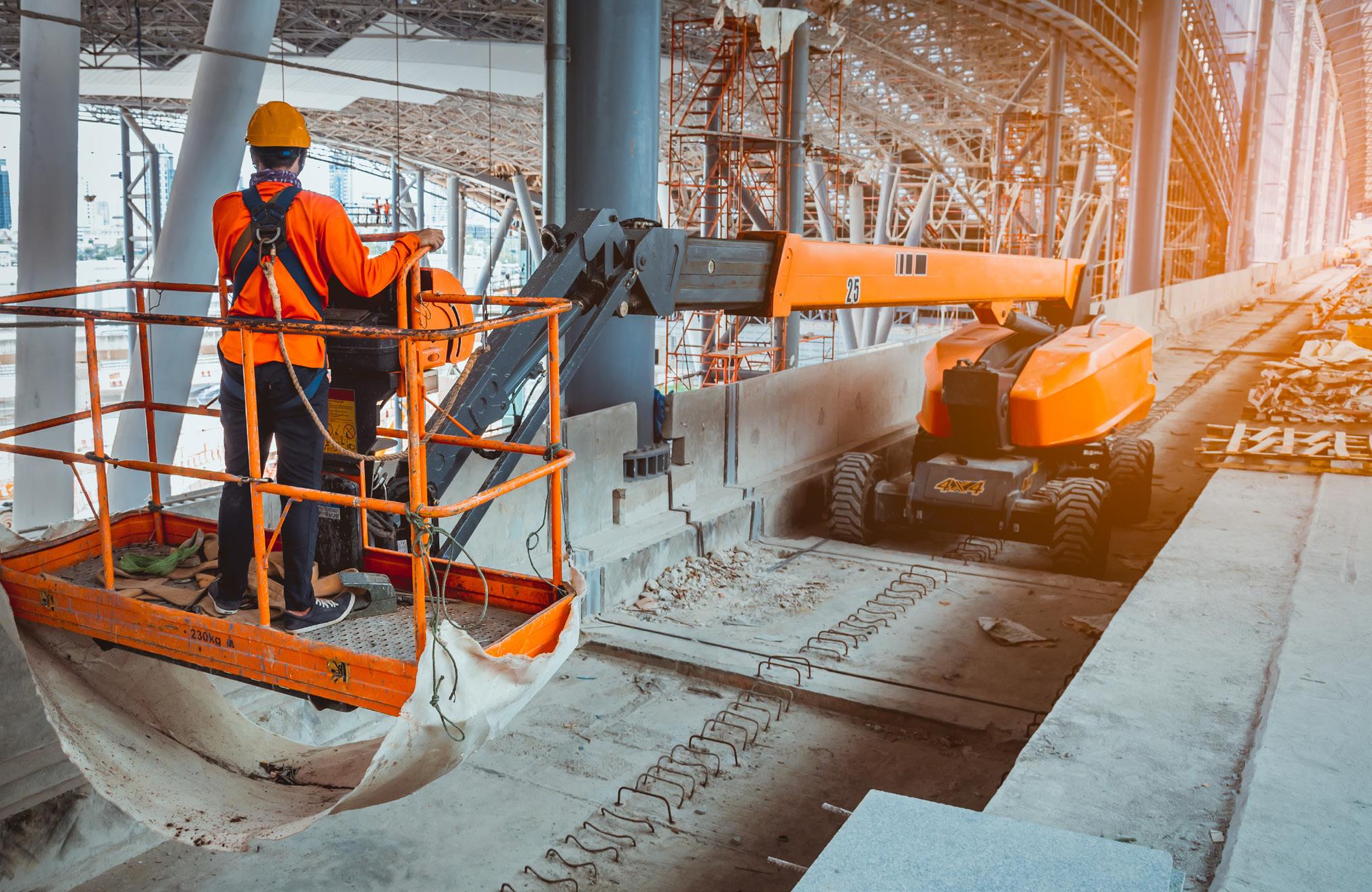
what is needed from the platform.
When a boom lift is extended very high, the wind can pose a substantial safety concern. If it is strong enough, the wind can knock the machine over completely.
Avoid using boom lifts in extremely windy conditions or other adverse weather to avoid the risk of it potentially falling over. Each lift has a limit of how much wind it can withstand. Reviewing the user manual will help an operator understand the specific restrictions of the machine
operating and
The height at which boom lifts can extend makes this equipment particularly vulnerable to tipping over. Ensuring the machine is being operated on even ground and on a stable base will help keep the operator and surrounding workers safe. Using the boom lift brakes correctly is one method that can be implemented.
Properly reviewing the manufacturer’s operator manual will help an operator understand how to effectively maneuver the boom lift and when it is and isn’t safe to move the lift while it is
extended.
As a best practice, avoid moving the lift in this manner. Moving a lift while extended creates opportunity for injury and should only be done when it is necessary and only if the operator’s manual specifically condones it. Otherwise, you should lower the boom lift completely, move it and then extend where needed.
Operating boom lifts can pose challenges and risks, but following these safety tips can help prevent accidents and injury on-site.
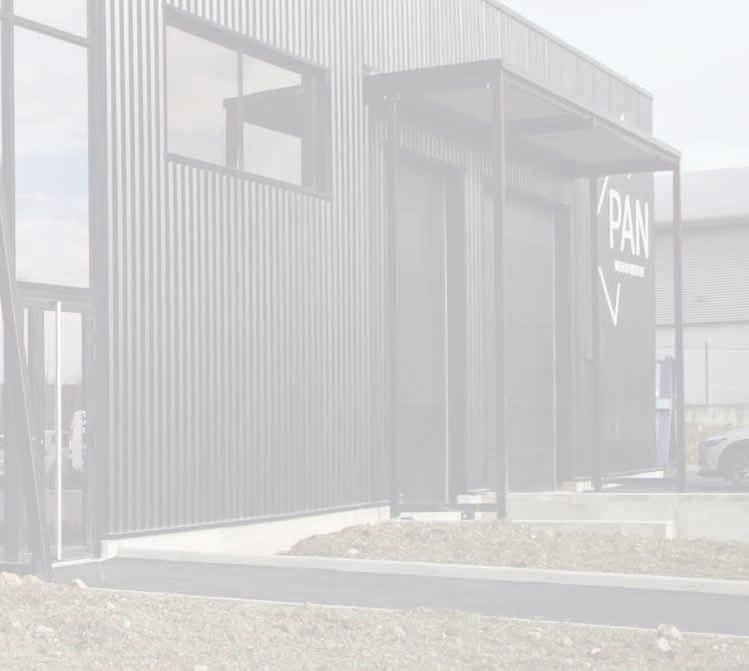
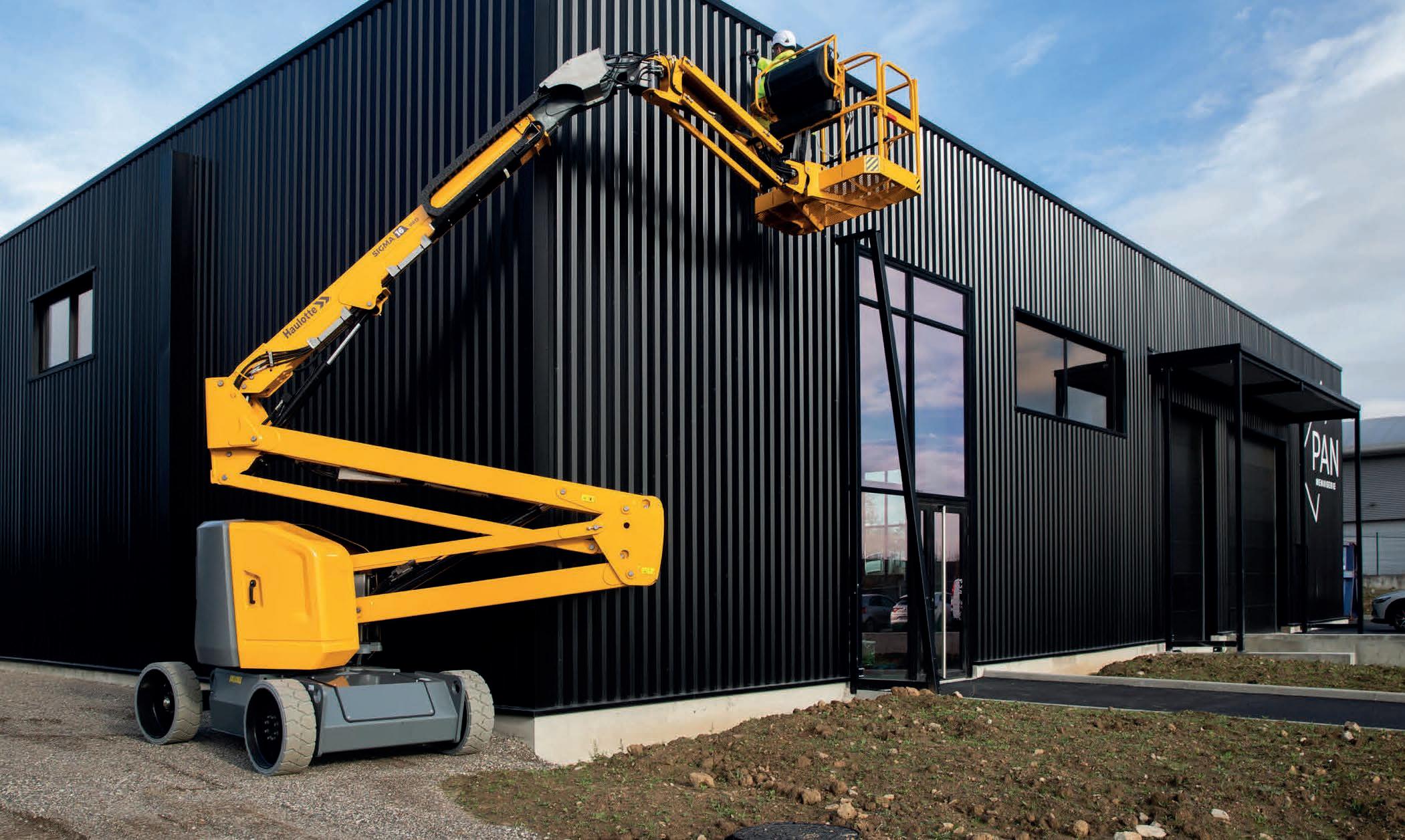
Editor’s Note: This article was originally published in Equipment Today.
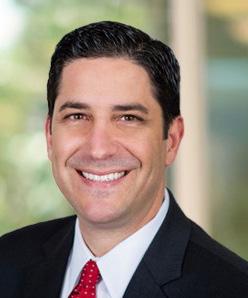
Workplace safety programs protect your employees and empower them to confidently complete tasks without fear of injury or death, but creating a culture of safety can be difficult. Check out five key elements that must be present for a safety and health program to get off the ground.
more at:
Brian Walter, owner of WBC Lumber and Tool Rental in Kingfisher, Okla., and founder of Unity Above Self In America, shares how he has overcome challenges and his nonprofit venture.
Rental: How did you first get your start in the rental industry?
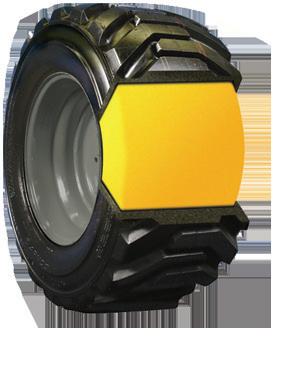

Brian Walter: I found myself in the rental business after 10-plus years of struggling to try to survive in the lumber yard business. My prediction is family-owned lumber yards without a profitable niche, like rental, will also disappear.
Rental: Can you give us some insight on your current company?


Walter: I began the rental company essentially out of necessity. Once I got involved in rental, I fell almost instantly in love with the business model.
When we first started, our lumber sales were 100 percent of our income, and rental was 0 percent. Now, 14 years later,
“Solid
Not

going.
lled.
Solid Shock a major
Whole Body Vibration
operator
other serious
back
rental is approaching 70 percent of our total sales. Even now, we are actively working at increasing rental and further reducing our lumber offering. When it comes to our rental offering, we focus strictly on construction equipment rental. We have a second location in El Reno, Okla., which is rental only, no lumber, and we have a 10-year plan for a third rental-only location in Oklahoma City.

Rental: What have been some of the challenges and successes you’ve had over the years?

Walter: The biggest challenge has been surviving. I started from scratch back in 1995 in a business
model (lumber) that considered a 3 percent net profit to be average. To be honest, we never managed to even make that prior to getting into rental, despite working 16-hour days regularly.


Our sales were lackluster, so we became experts at delivering sheetrock for new homes. It was common for me to work in the retail lumberyard from 7 a.m. to 6 p.m., grab a pizza at the convenience store and then me and a couple of high school boys would go stock sheetrock into new homes until
9 p.m. We often worked by the light of a Coleman lantern suspended from the ceiling joists of the recently framed home.
Being in business is fulfilling a

dream born when my father died when I was just 10, resulting in our family business closing. I always tell people if I had not really wanted to make it, I wouldn’t have.

Walter: The best advice I ever got was to join a peer advisory group. I was near bankruptcy when my banker suggested I join a peer group. It was through the counsel I received in
that group, and I believe God’s divine guidance, that I ended up in the rental business.


Rental: You started a nonprofit organization to incentivize members of Congress to pass the bipartisan No Budget, No Pay Act. Can you tell me more about that?
Walter: I felt called to start the nonprofit Unity above Self in America (UaSiA).
Out of fear of out-of-control federal spending, I decided to do something. I went from a political nobody to a personal friend of the former U.S. Senator of Oklahoma, Dr. Tom Coburn.
Dr. Coburn was a legend in the U.S. Senate due to his straight talk and willingness to fight even his own party members. I attempted to help him in his passion to advance an effort called Convention of the States. Eighteen months later over lunch, Dr. Coburn told me he was dying of prostate cancer and that I needed to take the lead. So, I’m championing a nonpartisan bill called the “No Budget, No Pay” act.
Dr. Coburn gave the first $1,000 donation to our nonprofit and helped me with donations and advice until his death in 2020. The bill is very short and bipartisan and is co-authored by Sen. Mike Braun (R-IN) and Sen. Joe Manchin (D-WV). The bill simply says Congress will pass a budget by Oct. 1 of each year or they will begin to go without pay until they do, with no provision for retroactive pay.

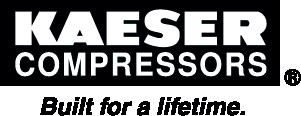
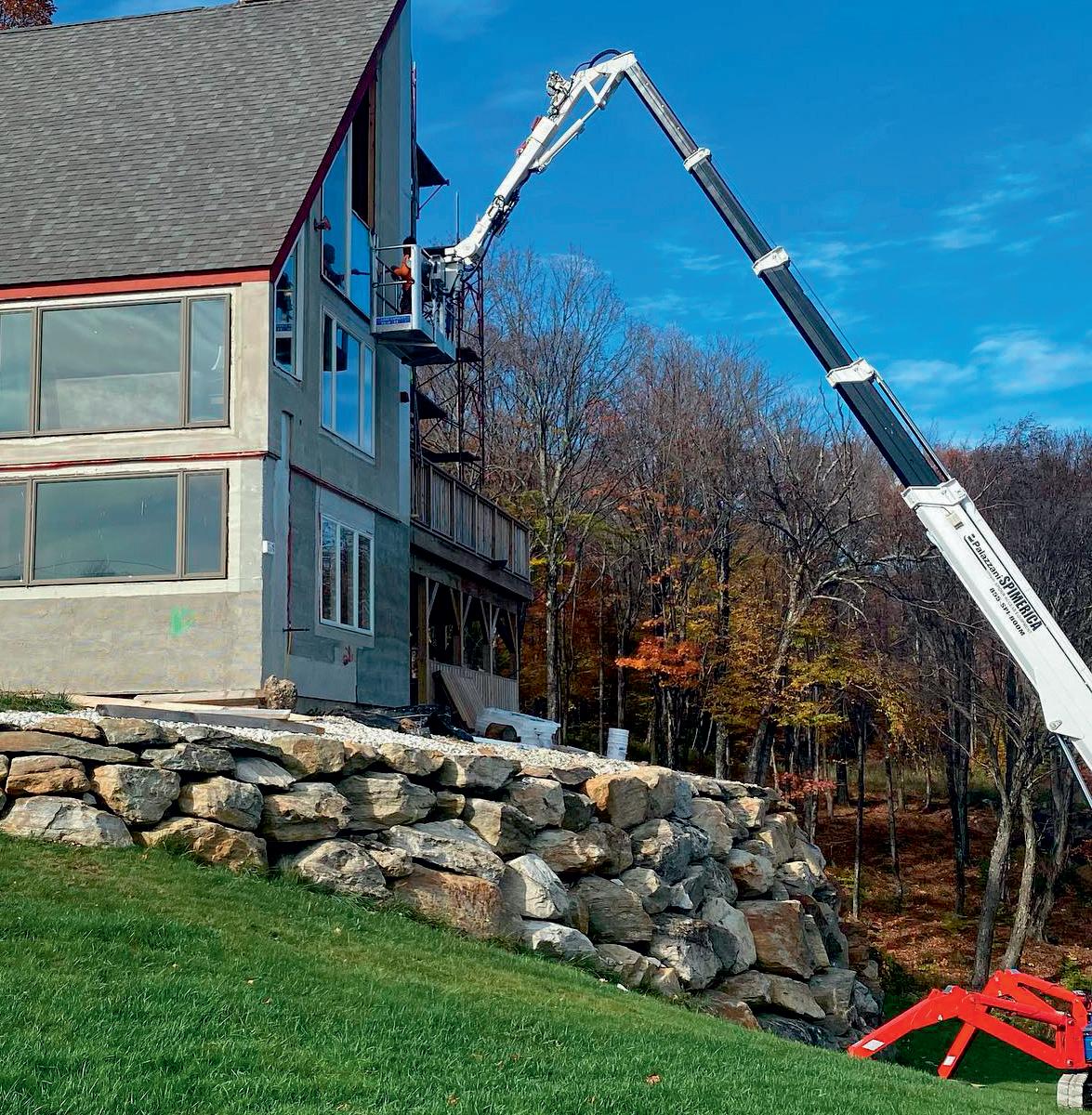
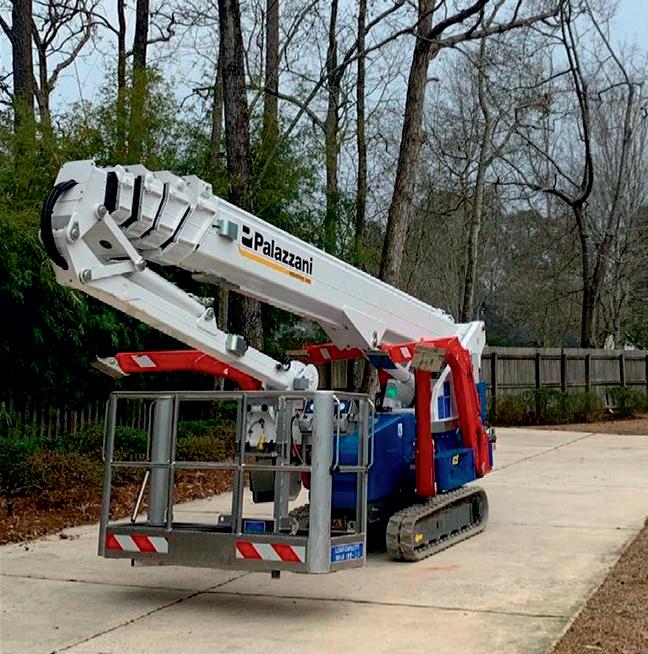
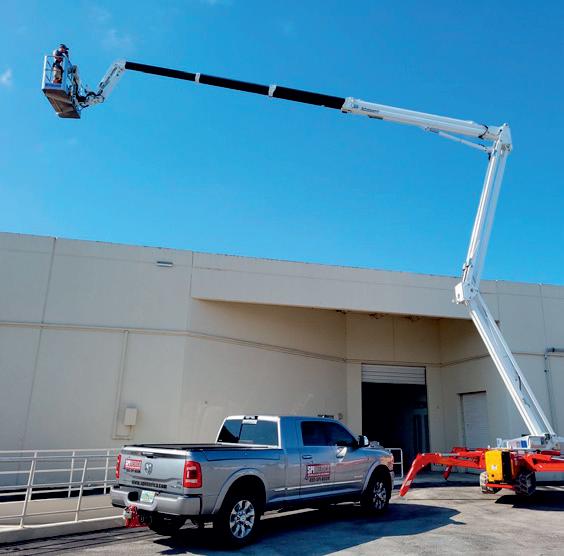
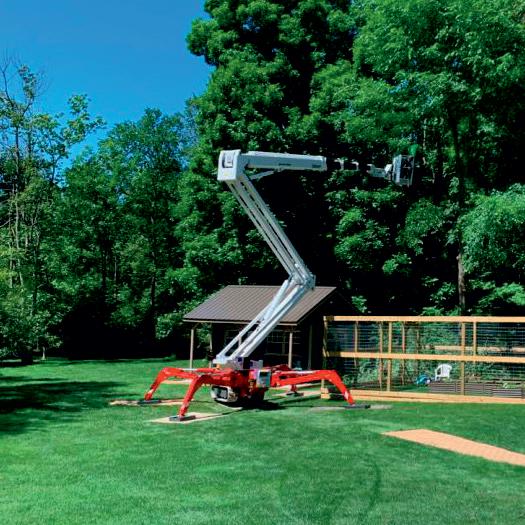
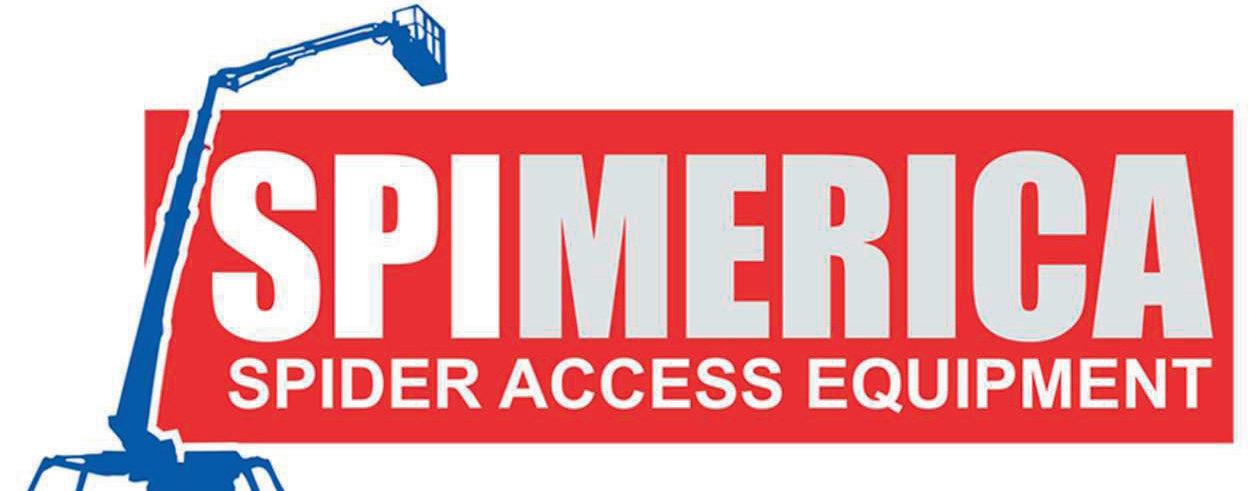
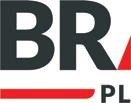
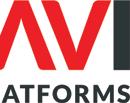





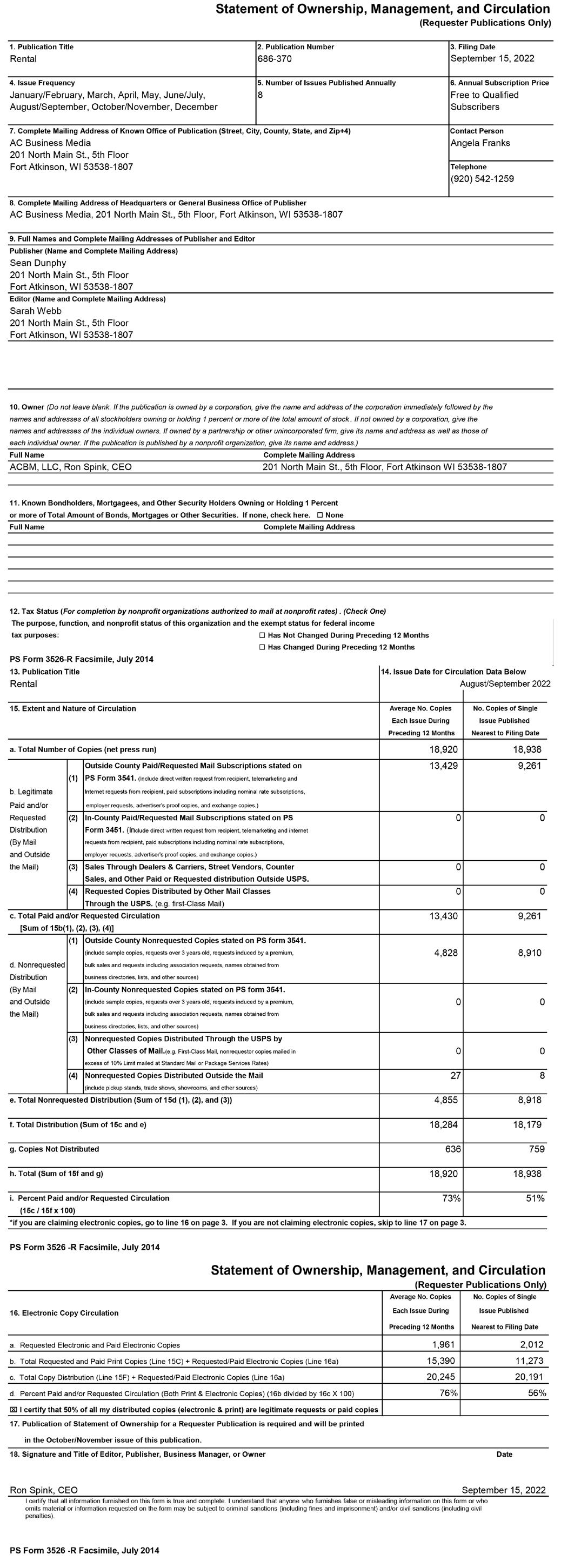


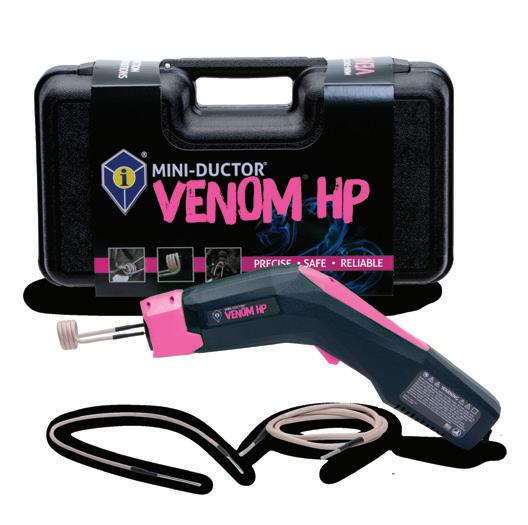
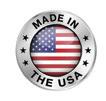
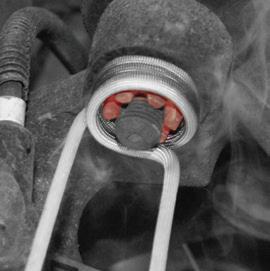
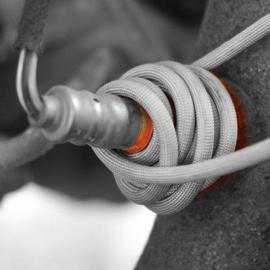
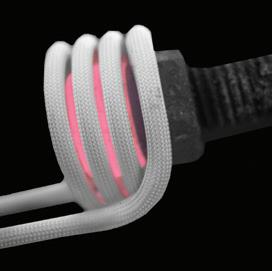






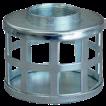








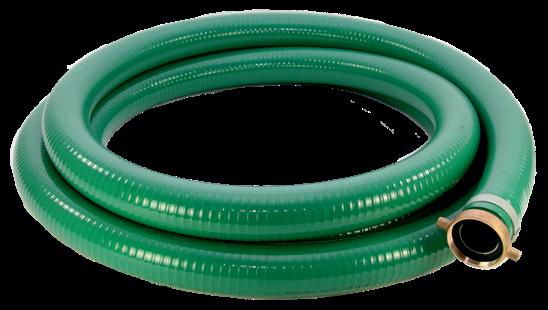
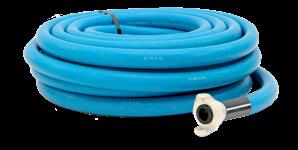
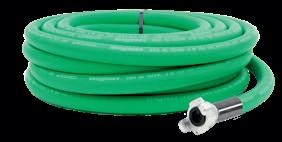
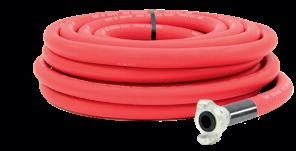
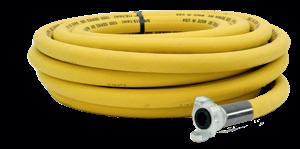
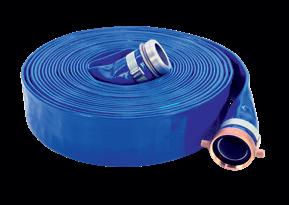
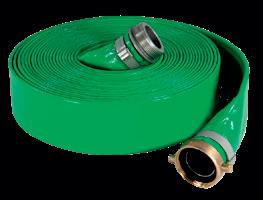
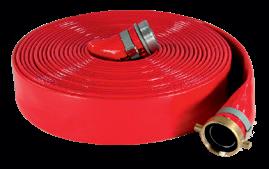
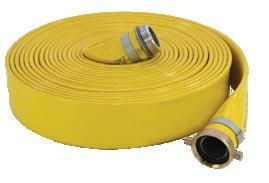
Why rental companies should make it a priority to adjust their rental rates, delivery fees and other charges.
In 1995, a gallon of milk cost $2.50. Today it averages $4.38 per gallon. Rental equipment is certainly not milk, but over the years, the price of everything rises and falls, and rental rates are no exception. Here are a few of my thoughts and opinions about this important topic.
I have assisted hundreds of rental companies to analyze and adjust their rental rates with very positive results. I often assist rental companies that have never had a comprehen sive rental rate analysis and adjustment. So, there can be huge opportunities to receive the return on investment that you deserve. In my professional opinion, most rental companies have not kept pace with ever-increasing costs associated with operating their businesses.

Remember, it isn’t only the increased cost of purchasing the rental equipment that may support changes to rental rates and other fees charged to their customers. There are many other ever-increasing costs, including equipment repair and service costs, shipping the equipment to your company, fuel and vehicles, occupan cy, taxes and, of course, the enormous increase in payroll expenses.
When I assist my custom ers to make changes to their rental, delivery and other charges, it is always a collab orative effort with me working with the owner of the rental company and sometimes with the input of another key indi vidual who has significant customer contact. Combining my expertise of the psychology and science of pricing in rental companies and how to maximize revenue with my custom ers’ intimate knowledge of their customers and local market is highly effective in developing rates that are appropriate and well deserved.
In my opinion, no two rental companies should be charg ing the same rates (unless they are branch locations of one company, and even then, there can be differ ences). Even in the same market areas, there are so many variables that affect rates that there are often significant differences in pric ing from one company to the next. Of the
many hundreds of individual rental companies I have assist ed with this project over the years, the rates have never been the same.
Rental companies that do “across the board” rate increases are making a huge mistake in my opinion. With this prac tice, one runs the risk of “being too high” on some items and “far too low” on other items, so I highly discourage using this approach. Of course, a “too high” rate can cause the frequen cy of rent to drop to a level that negates the planned revenue increase from increasing the rental rate. A “too low” rent al rate can cause a significant loss of the potential to bring in additional revenue.
I highly recommend having a highly experienced rent al business consultant assist with the process of rental rate analysis, adjustment and proper implementation. There is a science behind all three.

Don’t just copy other rental companies’ rates. Don’t compare your rental rates to other rental compa nies’ pricing in other parts of the country or even in your region. Asking “how much do you get for your______” not only serves no good pur pose, but it often can also lead to significant pricing missteps. Again, every rental company should be charging the rates that make the most sense for them.
Your rental company is unique in many ways. Rental rates are very rental company specific. Your market area, your mix of inventory, how you position your company and many other factors are unique.
With the many compelling benefits of analyzing and adjusting your rental rates, delivery fees and other charges, make this one of your company’s priorities.
Milk price for 1995 from TasteOfHome.com. Milk price for 2022 from USDA Retail Milk Prices Report.


